
- Create an account


Flying while Transgender or Non-binary? Here are 9 Travel Tips for How to Go Through the TSA Security Checkpoint Hassle-Free. (Updated for 2023)

Are you like I was? Excited to travel, but worried and not sure what to expect at the airport? As transgender women and gender non-conforming folx, we’re all too aware of the anxiety that can arise as you enter an airport.
This guide is full of things I wish I knew years ago. These simple, proven tips are the culmination of hours of research, customer feedback, and stories from community members and activists. Let’s dive right into some proven ways to make the air travel experience a little easier...
The 9 Ways To Make Trans Air Travel Less Stressful:
- Be prepared: know your rights as a traveler and how to communicate with the TSA
- Consider signing up for TSA Pre-Check
- Allow extra time to go through the TSA security check
- Make sure your airline reservation matches your ID card
- Pack medical supplies within reach in your carry-on in a resealable plastic bag
- Carry documentation for your prescriptions
- Complete and bring a discreet notification card
- Know what to expect from body scanners
- Be prepared for a pat-down
- (BONUS!) The Importance of Planning Your Destination + 3 Trans-friendly Travel Destinations
Quick Note: The Unclockable Tuck Kit is not expressly TSA-approved, nor has it been reviewed by the TSA for approval. The information on this website is not legal advice. You can find our full disclaimer statement here.
#1: Be prepared: know your rights as a traveler and how to communicate with the TSA
First, take a deep sigh of relief: Most of the time, trans people are able to proceed through security without incident.
In fact, The Federal Aviation Act prohibits such discrimination by airlines against passengers. That said, it’s always best to be cautious and to know your rights when traveling.
As a general rule, assume you’ll be required to undergo additional screening. This may not happen, but planning ahead for this "worst-case scenario" can reduce stress in the event that something does go wrong.
This section helps answer some of the most frequently asked questions trans people may have about airport security. It provides steps you can take to prevent issues and how to address problems if they arise.
Here are some pointers for Trans folks communicating with TSA agents:
- Keep Calm, Polite, & Respectful: Trans passengers have the right to be treated with respect, dignity, and discretion. The TSA has to respect your rights. In turn, it’s best for you to assert your rights in a positive and respectful manner. We strongly encourage you not to get in a confrontation with TSA personnel. Things could escalate quickly, and acting aggressively can result in serious consequences, and even criminal charges. This doesn't mean that you can’t assert your rights—just that you should do so in as calm and polite a manner as possible. If you have any problems, calmly request to talk with a supervisor right away.
- Assert Your Right to Privacy: You may request a private screening or speak with a supervisor at any time during the security screening process. If you do move to a private screening area, know that you’re entitled to bring your choice of a witness, be they a friend or travel companion. If an issue arises, state it calmly and request that TSA personnel take appropriate action. If TSA agents are unaware of your rights, you can point to signs with general information such as the right to refuse entry into a full-body scanner, which are often posted throughout the airport security area. If that’s not enough, you can direct them to the Trans Passengers page on the TSA website , which outlines their commitment to treating Transgender people with “respect and courtesy." We’ve also created a PDF of this page that you can download here.
- Stay Calm If Approached: You might be approached while in the terminal, even if you’re past the checkpoint. TSA officers are stationed all around the airport, and some of these roving agents are known as Behavioral Detection Officers (BDOs). These agents walk around looking for various behaviors consistent with those who are trying to conceal criminal activity. If these officers approach you, they may ask questions about your destination and luggage. It is natural to feel anxious if you encounter these officers. Unfortunately, from the perspective of the agent, sometimes such anxiety can make a traveler appear suspicious. When asked questions by BDO agents, give simple answers. Because of the potential for encounters like these to “out” trans people in unsafe ways, remember that it may help to openly share that you’re aware that you might appear anxious or suspicious. If you are a person who is being treated for anxiety, you can opt to discreetly share your condition by presenting a Discreet Notification Card (below), which can be printed at home or carried in a photo on your phone. Always remember that you can ask to speak to a supervisor if you encounter any difficulties.
How to Communicate Discreetly with the TSA
For the purpose of communicating clearly and getting back on your way as fast as possible, consider using a pre-printed Discreet Notification Card to disclose specific personal information like medical conditions, or other considerations quietly with TSA personnel.
Call ahead: If you have specific questions about screening policies, procedures, or what to expect at a checkpoint before a flight, call the TSA Cares helpline at (855) 787-2227. You may request the help of a passenger support specialist, who will assist you when you arrive at the airport.
#2: Consider TSA Pre-Check
The TSA Pre-Check™️ program offers what's known as "expedited screening.” This program gets registered travelers through security quicker, and with less hassle.
Although the program does not guarantee that body scans or pat-downs can be avoided, participants usually walk through a metal sensor instead of a body scanner and experience pat-downs less often. Conveniences like leaving your shoes and belt on are also a plus.
Eligible passengers can register directly with TSA Pre-Check by completing an online application and paying a fee. That fee is $85 at time of writing. Please note that during the approval process, you may need to disclose prior names, and/or your dead-name.
Registering with Pre-Check can be something of a hassle in itself— still, this option may be worth considering if you travel frequently.
#3: Give Yourself Extra Time
Airlines, run mostly by cis folks living inside the binary (#noshade) are often optimistic about the time it takes to get through the airport and onto your flight. For domestic travel, most airlines say that if you're not checking luggage, you want to arrive at the airport 60 minutes before takeoff. If you're checking luggage, they say to arrive with 90 minutes to spare. For international flights, they say you should give yourself two hours. But here's the thing: the TSA actually disagrees with a lot of this. So, what do they recommend?
Your “3-2-1” approach to stressing less in the airport:
- 3 hours before your flight: Arrive at the airport ticket counter to check in
- 2 hours before your flight: Be in line at the airport security checkpoint
- 1 hour before your flight: Be at the gate. (Watch some Netflix or listen to an audiobook if you get bored!)
This may seem like a lot of extra caution, but when you arrive at the gate with enough time to grab snacks and a coffee, you’ll feel like master of the universe.
#4: Make sure your airline reservation matches your ID card
First, I want to acknowledge that not all of us have our documents changed to reflect our gender. I know this can cause a lot of stress, but we’re going to share how to minimize this as much as possible.
Now, I know what you’re thinking…
What If My ID Is Different From My Gender Presentation?
According to Transequality.org:
“All passengers 18 years of age or older are required to provide proof of identity at check-in and at the security checkpoint.
Booking your Flight: TSA rules require that you provide your name, gender, and date of birth when making an airline reservation. The Secure Flight program checks the reservation information against government watch lists. The gender information included in your reservation is used to eliminate false matches with the same or similar names – not to evaluate a person’s gender. To avoid hassles, the name and date of birth included in your reservation should match the government-issued photo ID you will provide at the airport. If your tickets are being booked by someone else, you should make sure that the person booking your tickets uses the information on the government-issued ID you plan to use at the airport.
Going through ID Checkpoint: At the airport, TSA Travel Document Checkers will check as you enter security to ensure that the name on your ID matches your boarding pass. It does not matter whether your current gender presentation matches the gender marker on your ID or your presentation in your ID photo, and TSA officers should not comment on this.”
Bottom Line: when it comes to making reservations, be sure to book your flight with the same name, gender, and birthdate as the ID you plan to travel with.
The bad news: If your current ID has your dead-name on it, that’s the name you have to use when booking your flight.
The good news: It doesn't matter if your current gender presentation matches your gender marker from your ID, or the presentation in your photo!
#5: Pack medical supplies within reach in your carry-on in a resealable plastic bag
For easy access, pack medical items in a toiletry kit, resealable plastic bag, or a hard case. Medical items include medicines, hormones, and syringes. Keeping these items in a separate bag near the opening of your carry-on luggage makes them easier to inspect, and that means you’ll be on your way quicker! (It also ensures you’ll be able to reach them during the flight, if needed)
#6: Carry documentation for your prescriptions
If you travel with medicines or hormones in your carry-on, bring proof of prescription from a doctor. This could be in the form of a pharmacy reciept or a letter from your physician stating the items are medically necessary.
If you’re traveling with syringes, note that you’re required to declare them to TSA personnel at the airport checkpoint so they can be inspected. You can tell the TSA agents directly or use the Discreet Notification Card mentioned earlier.
It’s important to keep prescribed medicines and medical devices with the pharmacy labeling intact. Note: You may be asked to explain the purpose of these items. This is where a letter from your doctor does wonders. Most MDs don’t mind writing a few words, and presenting a letter means you get to avoid an awkward verbal exchange in a crowded airport.
#7: Complete and bring a discreet notification card
How much you disclose to the TSA is up to you. When traveling, I personally find discreet transparency to be the way to go. One option for quietly communicating with TSA personnel is to use a preprinted “Notification Card” to disclose a particular personal item, medical condition, or other information. This card can be printed at home or carried in a photo on your phone.

TSA agents are trained to recognize this card, and to take action to provide the appropriate screening procedures. Above is an example I’ve filled out. Yours can say as little or as much as you’re comfortable with. Download the Notification Card template from the TSA website here
#8: Know what to expect from body scanners
Image credit: trans fusion, the blog of dr. cary gabriel costello, an intersex trans male professor at the university of wisconsin-milwaukee and and advocate for transgender and intersex rights..
Much has been written about the body scanners used at the checkpoint, and the ordeals and delays they’ve caused in the past. The software used in these systems has been revised several times since it’s introduction, but the options given to the operator of the machine are still binary: they require the agent to select from blue-for-boy or pink-for-girl scanning options.
The scanner looks for "anomalies" under the passenger's clothing that are "incongruent" with the operator's selection.
The image above shows what a TSA agent will see when many trans women go through a scanner: an "anomaly" in the groin area, which sets off an alarm.
Does Tucking Help Avoid The "Groin Anomaly" At The Scanner?
Tucking can help. here's how rose’s tuck kit made her return flight much less stressful:.
Ethics statement: Rose traveled safely with Tuck Kit prior to working with Unclockable on this partnership basis. Her story is authentic and represents her actual experience in the airport. Rose’s follow-up video sharing her experience and featuring our Tuck Kit was a paid ad.
Why might tucking help a trans woman avoid the groin anomaly issue? Well, the machine is looking for something down there . . .
When tucked, a trans woman's physiology —in this case the contours of her groin— will better match the pattern for "female". When we say pattern, we mean it will match what the programmer at the TSA encoded into the scanner software, where clearly there was a choice made that defined "female" as a person without a penis. This binary software choice effectively erases trans, intersex, and gender non-conforming people, but that's a topic for another post.
For the real nerds, here's more on the TSA's "Advanced Imaging Technology"
"(AIT) is TSA’s term for devices it uses to scan the contours of the human body to look for things under a person’s clothing that might be dangerous items. All TSA scanners are now equipped with software called Automatic Target Recognition (ATR). ATR analyzes the scan image of the body and displays an outline of a generic person with the location of anything the software identifies as an “anomaly” or "alarm" that TSA agents need to look at more closely. With ATR, according to the TSA, images of a traveler’s actual body are never viewed by humans.
TSA will not disclose details of how ATR detects anomalies, however in some cases, ATR software can register body contours not typical for a person’s gender as anomalies. Foreign objects such as prosthetics, binding garments, or even paper or change left in a pocket will commonly register as anomalies requiring further screening. Often this consists of a limited pat-down of the area(s) where an anomaly was detected, however it can potentially involve a complete pat-down."
You may opt out of AIT scans at any time, but if you do opt out of AIT screening, you will be required to undergo a thorough pat-down.
Source: transequality.org
#9: Be prepared for a pat-down
If the scanner sets off an alarm, you may be asked to step aside for a pat-down. Remember: Per TSA rules, you are able to request to any pat-down conducted in private, and you are legally allowed to bring a companion along.
You can’t be asked to remove your gender-affirming prosthetics or garments. According to the TSA website, trans travelers should never be asked to lift, remove, or raise an article of clothing to reveal or remove a prosthetic item. Ask to speak to a supervisor if a TSA officer asks you to reveal a prosthetic item.
Wearing a wig? If TSA personnel want to do a screening of your wig or hairpiece, you may request that a pat-down be limited to your hairpiece or that you be permitted to pat the area down yourself.
#10: (Bonus!) Plan Your Trip Carefully
Trans woman & YouTube star Gigi Gorgeous (video below) made headlines when she was detained at an airport in Dubai in 2016 for two hours and denied entry to the UAE (United Arab Emirates) for being Transgender. That’s right. In Dubai, trans folx are literally unwelcome. Critics of Gigi are quick to comment that it is “common knowledge” that LGBTQIA+ people in the UAE face legal challenges not experienced by non-LGBT people. In fact, according to Wikipedia, ”all sexual relations outside of heterosexual marriage are criminalized in the UAE.” Suffice it to say that Dubai is definitely not a trans-friendly destination, and clearly, planning ahead can help you avoid a situation like the one Gigi faced.
Where to Go: 3 Trans Friendly Travel Destinations
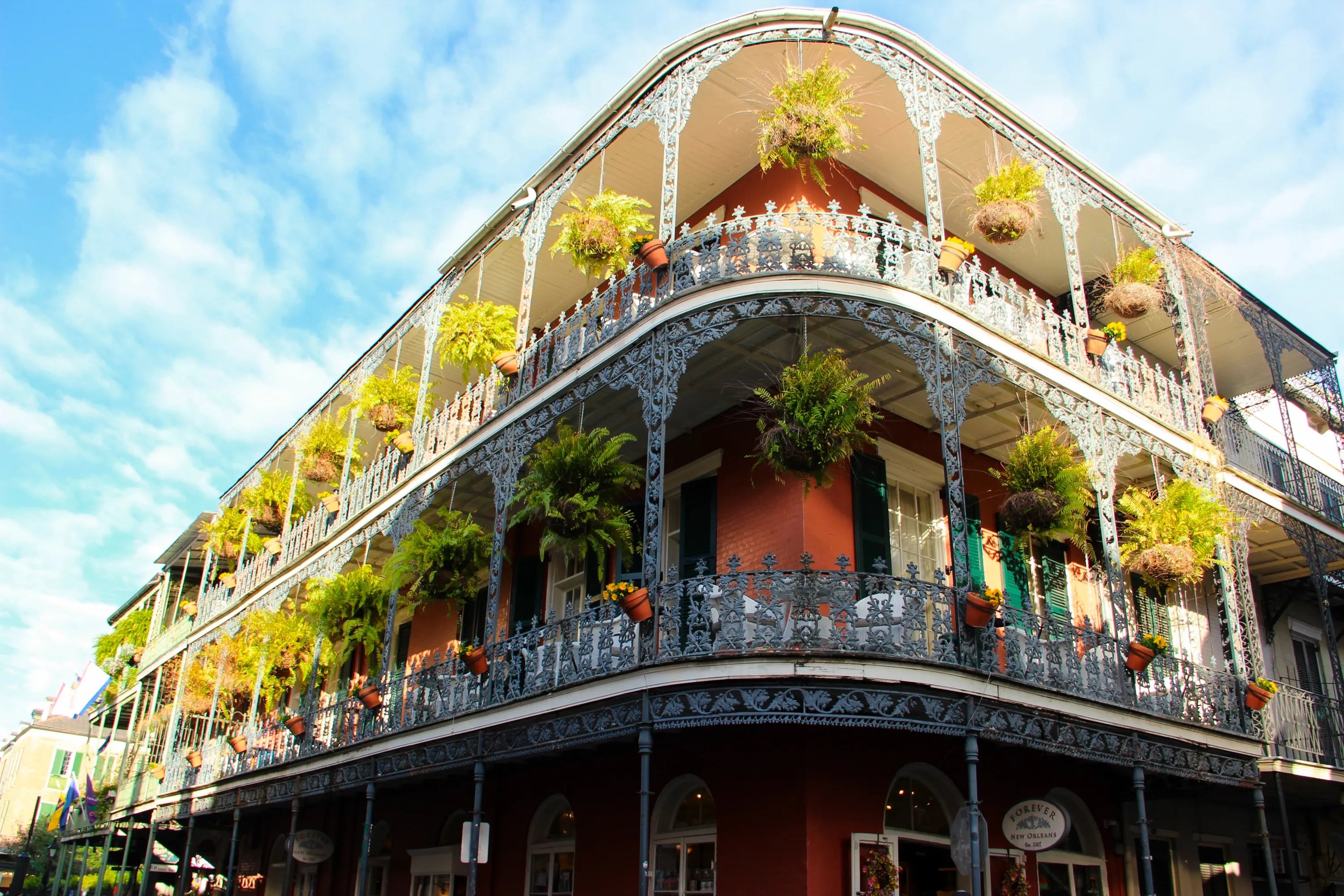
New Orleans, Louisiana
NOLA makes this list because it hosts a number of gay and trans-friendly events throughout the year. This city has a uniquely diverse history: Freed slaves, French, Caribbean, and Spanish immigrants have made NOLA a melting pot that’s less a Southern metropolis than a town wholly its own, inclusive of all. For a more bookish experience, check out the Saints and Sinners literary festival that takes place every year in May.
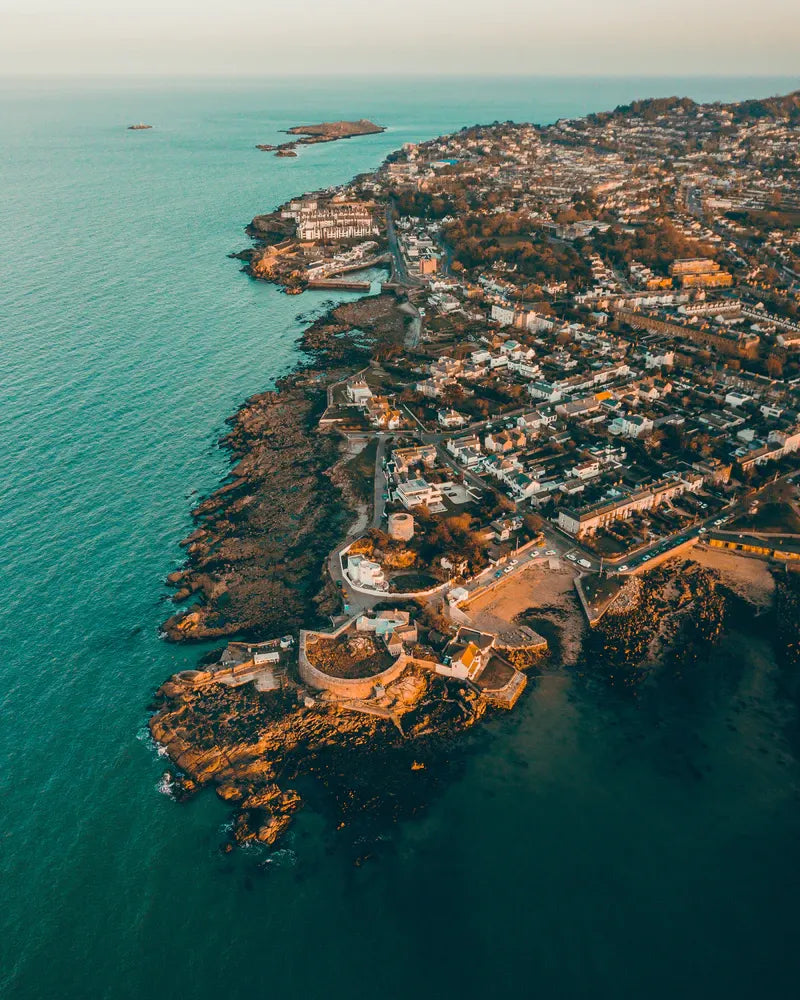
Dublin, Ireland
Dublin is the LGBTQIA+ capital of Ireland. The Irish celebrated marriage equality in late 2015, thanks in part to the work of Rory O’Neill, who fiercely rallied supporters as her drag alter ego, Panti Bliss. Here’s an LGBTQIA+ travel guide to Dublin.

Sydney, Australia
Sydney is home to one of the world's greatest—if not the world's best—Pride festivities, the Sydney Gay and Lesbian Mardi Gras, which takes place annually in February.
Enjoy your flight 🛫
Have a question or a story to share? Or even a travel tip that we didn't mention here? Let us know in the comments below!
Further Reading:
What can i do about discrimination at the airport.
If you experience discrimination at the airport, here's what you can do. From Transequality.org:
- You have the right to file a complaint. Both the TSA and the Department of Homeland Security (DHS) have separate civil rights offices that accept complaints of discriminatory treatment by TSA. You may file a complaint with either office or with both.
- Information and an optional form for filing complaints with the DHS Office for Civil Rights and Civil Liberties can be found here: http://www.dhs.gov/file-civil-rights-complaint . Fill it out and email it to [email protected] , or, if you cannot save the form, email the same information it asks for to that address.
- Information and an optional form for filing complaints with the TSA Office for Civil Rights and Liberty can be found here: http://www.tsa.gov/contact-center/form/civil_rights_liberties . You can submit a complaint by sending the form or an email containing the same information to [email protected] .
- We encourage you to file complaints immediately after the incident, or as soon as you are able, and provide as many details as possible. You should include the airport, date, time, and as much information about the incident and people involved as possible.
- Also consider sending a copy of your complaint to [email protected] to help us better understand the problems facing trans travelers and advocate for improvements.
- You can @AskTSA on Facebook or Twitter , however we do not recommend this as a substitute for filing a formal complaint.
- You may also contact TSA prior to travel through “Talk to TSA” or the TSA Contact Center at 1-866-289- 9673 and [email protected] . Here are some Tips / Suggestions on what to say:
- I experienced an AIT alarm in the [groin/chest] area that was apparently caused by my being transgender.
- I experienced an AIT alarm in the [groin/chest] area that was apparently caused by my being transgender and wearing a chest binder.
- I can imagine no other reason for this alarm to have occured./There was no foreign object there, just my own body.
- Describe the pat down and/or other additional screening you received as a result and how it made you feel.
- While the officers were polite and appeared to be just following procedure, this experience caused by TSA's scanners was not acceptable.
- [If applicable:] This is not the first time this has happened to me./This happens to me regularly.
TSA & Department of Homeland Security Links
Additional Reading: TSA Transgender Passengers page: https://www.tsa.gov/transgender-passengers TSA Security Screening overview: https://www.tsa.gov/travel/security-screening TSA 3-1-1 Liquid Guidelines: http://www.tsa.gov/travel/security-screening/liquids-rule TSA Traveler Notification Card: http://www.tsa.gov/sites/default/files/disability_notification_card_508.pdf TSA Traveling with Children Overview: https://www.tsa.gov/travel/special-procedures/traveling-children TSA Pre-Check Overview: http://www.tsa.gov/precheck/ TSA Contact Information for Advance Travel Questions:
- TSA Cares Hotline (for medical questions): 1-855-787-2227
- TSA Contact Center: 1-866-289-9673 and [email protected]
- “Talk to TSA” webform: https://www.tsa.gov/contact-center/form/information
DHS Civil Rights Complaint Information: http://www.dhs.gov/file-civil-rights-complaint TSA Civil Rights Complaint information: http://www.tsa.gov/contact-center/form/civil_rights_liberties
Sources for this blog post
Disclaimer statement: the content on this post is provided "as is;" no representations are made that the content is error-free. the information provided on this website does not, and is not intended to, constitute legal advice; instead, all information, content, and materials available on this site are for general informational purposes only. information on this website may not constitute the most up-to-date legal or other information. this website contains links to other third-party websites. readers should contact their attorney to obtain advice with respect to any particular legal matter. no reader, user, or browser of this site should act or refrain from acting on the basis of information on this site without first seeking legal advice from counsel in the relevant jurisdiction. only your individual attorney can provide assurances that the information contained herein – and your interpretation of it – is applicable or appropriate to your particular situation. all liability with respect to actions taken or not taken based on the contents of this site are hereby expressly disclaimed..

Ready to give us a try?
Shop Now >
- Share on Facebook
- Share on Twitter
fiona mayfair on March 22, 2023
I work for a major US airline and one of only a few transgender personnel but also act as a liaison between the company and the community. Something that I helped develop for persons who have to use a legal name which may be different than their appearance is to call customer care or see a gate agent and ask for an other special service request for a preferred name to be used.
While your legal name will still be printed and will most likely be paged, the flight attendants and other personnel who have access to those special service requests will see them.
It’s not perfect, but it’s something .
Odette on August 07, 2021
Leave a comment
Please note: comments must be approved before they are published.

Read it at the beach

Feminizing Hair Tips for Trans Women
Update: For Spring/Summer 2024, it's essential to keep your hairstyle fresh and manageable despite the heat and humidity. Opt for lightweight, non-...

Hunter Schafer Shows off Tuck Kit for GQ in Viral Video
Hey fam! We’re totally buzzing over here at Unclockable! 🎉 Our very own Tuck Kit just got the ultimate shoutout from none other than the iconic Hu...

Level up Your Makeup: Top Ten Tutorials for Trans Women
Makeup is a powerful form of self-expression, and it holds a special place in the journey of many trans individuals. Recognizing its significance, ...

Wigs 101 for Transgender Women
Let's face it – hair plays a huge role in self expression. This goes for anyone, but (call me biased), I'd say it applies even more so to trans wom...

The Salon: A Girl's Best Friend
I can say from painful firsthand experience that it's best to get your hair styled by someone who knows what they're doing! After all, hair is one ...
The Unique Anxiety of Traveling While Transgender
By Kam Burns

People tend to look at me funny when I tell them I love flying, but it’s true. I always have. I've gotten my packing process down to a science and airports give me an excuse to put my phone on airplane mode for a few hours and catch up on reading without distraction.
But as I left for a recent work trip, I was unable to ease my travel anxiety. My palms were sweaty, I felt vaguely nauseous, and the closer I got to the airport, the more my heart began to race. It was my first flight since I started my transition, so for the first time in a long time, I had no idea what to expect. Every trans person I know has an airport story, often involving an inadvertent misunderstanding with a TSA agent, others with more intentional malice and discrimination.
As it turned out, my experience ended up being pretty uneventful. When the agent scanning my boarding pass examined my passport, a flicker of recognition crossed her face before she let me go without a word. I went through the body scanner knowing I would probably be fine because I’ve had top surgery, and I was right. I’m one of the lucky ones.
Flying When You’re Trans or Gender Non-Conforming
ProPublica recently reviewed all data that’s publicly available regarding complaints against the TSA and found that five percent of civil rights complaints filed with the TSA between January of 2016 and April of 2019 were from trans and gender-nonconforming individuals, despite the fact that we make up less than one percent of the population. And that was just of the people who chose to report.
The TSA body scanners that are used in standard security protocols in airports were not designed for people with bodies that aren't gender-normative. TSA agents have just a few moments to hit a blue or pink button before a person steps into the machine. If there’s a penis or breasts where the machine thinks there should not be, an alarm goes off.
As of this year, TSA agents are now required to partake in training on how to work with transgender passengers. But resources are limited, so the training simply consists of a 30-minute online program, and the level of turnover in the TSA is high, with an approximate 17 percent attrition rate. Of the 174 people who spoke to ProPublica, one woman reported that after asking to be patted down by a woman, she was refused and instead patted down by two male agents. Others reported being forced to show their genitals to TSA agents. Some felt as though they're assigned agents based on the gender they identify as, while others felt as though how they identified was not respected.
For any trans or gender non-conforming individual , being aware of the potential for any of these possibilities can cause anxiety before one even sets foot in an airport. But there are ways to make the experience a little less stressful without foregoing air travel altogether. And if you’re an ally, there are ways to support your trans and gender non-conforming friends so they feel safer in their travels.
Things You Can Do to Prepare and Feel More At Ease
If you fly frequently, consider getting TSA PreCheck. Your line to get through security will generally be shorter, which will give you more time to deal with any issues that might come up. You’ll have an expedited screening process and the perk of not having to take your shoes off in an airport, according to the TSA website . However, it does cost $85 for a five-year membership , so if that's prohibitive for you for whatever reason, there are other things you can do to ease anxiety.
If you’re a less frequent traveler (or even if you’re not), it’s a good idea to make sure you're packing and preparing correctly for your trip. Make sure you know what you can and cannot take in your carry-on, wear comfortable shoes, and double-check any items you’re unsure of. If you have a medication that requires syringes (like testosterone), have the prescription on hand so you can show an agent if the syringes are flagged.
For those who choose to wear a packer, a binder, or any other restrictive or enhancing garment, know that there’s a chance it will set off the machine. If that happens, respond as directly as possible and in a straightforward way. For example, if you’re wearing a binder, pull the agent aside and say, “This is a chest binder I wear to make my chest appear smaller, because of my gender identity and presentation.” Having a prepared response in advance can alleviate anxiety, and if you can provide an answer with confidence, you may be able to avoid further questioning. If the TSA agent continues to make it difficult for you to move forward, providing concise yet honest answers will also likely give you more success in filing a complaint later.
How to Be Helpful If You're a Cisgender Person Traveling With a Trans Friend or Loved One
If you’re cisgender and traveling with someone who is trans, be mindful they experience things you don't have to deal with or think about. Talk to them before booking travel if you're planning the itinerary, as some airports and airlines have better reputations with trans customers than others. Ask if they would like you to intervene should a case of misgendering come up. Go through security together, if possible, and if they have asked for your help, advocate for them when and where you can. In some cases, there won’t be much you can do (as people are often pulled into separate rooms if security is an issue), but just knowing there is a friend nearby can make things a little easier.
If you or a friend ends up having a negative or unsafe experience, it’s important to know your rights. The National Center for Transgender Equality has a guide on who to talk to and how to file a report in the case of discrimination. There’s even an app called FlyRights that will let you file a report from your phone immediately.

By Aliza Kelly

By Marci Robin

By Devon Abelman
The way transgender people are treated in airports is unfortunately just a symptom of a much larger problem. Unfortunately, lack of awareness around gender is a huge issue, and though it's one that extends outside of the baggage claim, TSA body scanners and airports are designed for a binary society that puts anyone outside of the norm at risk. Luckily, there are people working to make those changes on a more systemic level. But in the meantime, do what you can to take care of yourself and your friends.
Read more stories about gender identity on Allure :
- Why I Marked "F" as the Gender on My License Even Though I'm Nonbinary
- What Reading Tarot Taught Me About Gender
- What It's Like to Be Transgender and Face Dysphoria and Body Dysmorphia at the Same Time
Now, learn the story behind Allure's new clean Best of Beauty seal:
Don't forget to follow Allure on Instagram and Twitter .

Allure Daily Beauty Blast
By signing up you agree to our User Agreement (including the class action waiver and arbitration provisions ), our Privacy Policy & Cookie Statement and to receive marketing and account-related emails from Allure. You can unsubscribe at any time. This site is protected by reCAPTCHA and the Google Privacy Policy and Terms of Service apply.

By Leah Prinzivalli

By Jolene Edgar

By Myranda Mondry

By Nicola Dall'Asen
'I still kind of panic a bit': What transgender travelers want other travelers to know

Transgender Awareness Week comes around once a year, but all year round, transgender travelers remain all too aware of the challenges of #travelingwhiletrans.
Roughly 1.4 million U.S. adults identify as transgender, according to the latest numbers from the Williams Institute at UCLA's School of Law.
While the U.S. recently issued its first gender X passport , many transgender Americans still don't have identification that reflects their identities, some still face invasive or humiliating screenings at airports, and others are misgendered, harassed or worse .
USA TODAY spoke with Kayley Whalen and Ben Haseen , who have both shared some of their experiences on social media, about what they wish other travelers would know.
Whalen describes herself as a transgender advocate, autistic advocate and YouTuber. Haseen describes himself as an openly visible South Asian transgender man and med student. Their responses have been edited for length.
Learn more: Best travel insurance
►'The world is yours, too': 'Real Queer America' author Samantha Allen has a message for LGBTQ travelers
►Words matter: LGBTQ definitions every good ally should know
What have your travel experiences been like?
Whalen : First of all, I understand there are a lot of reasons why a lot of transgender people are afraid to travel. That's why I've made videos and tips about it on YouTube. Right now I'm in Guatemala to learn more about my family history ... but I was afraid to travel for years ... because I didn't have ID documents, (a) passport that matched my gender, that matched who I am as a transgender woman.
I think it's really important for trans people to encourage other trans people to travel and kind of be a supportive community because I think there's a lot of value in traveling the world and learning about other cultures.
When you travel, you realize trans people always existed . ... There (are) very thriving trans communities with a long, rich history in many of the places I've traveled to, including the Philippines and Thailand. And I've really enjoyed getting to know them.
What's it like connecting with other transgender people when you travel?
Whalen: It's been fun. It's inspired me to learn Thai, Vietnamese and Spanish, which I'm working on. But for me, the most valuable thing about meeting trans people in other countries is learning that the gender system we live under in the United States is very artificial, very constructed. Every culture I've traveled in understands gender differently.
►This is America: Gender expression in a socially distanced world
Haseen : Whenever I make plans to go to a new city, I always search for other trans and queer (folks) who are living in that city. I generally get a lot of valuable advice on which places are safe and where I can meet other queer people. Meeting with other trans (folks) really makes traveling more magical because I can quickly make friends and be completely myself in a completely new setting. I don't have to worry about hiding who I am.
What are some positive experiences you’ve had traveling?
Whalen : I think it's really interesting how other cultures let you kind of self-identify and use the pronouns that work for you and don't really judge you in a way I think a lot of Americans are like, "Whoa, pronouns. You're being so politically correct."
I think the other thing that was really cool was just exploring the really vibrant ways that trans people make communities in other countries, whether it's through cabaret shows in Thailand or pageants (elsewhere) in Southeast Asia. I got to do the Miss International Queen pageant (as Miss USA), and it really changed my perspective of beauty pageants as a more kind of radical, activist experience that I never expected.
What are some challenges you've faced traveling?
Whalen: I still kind of panic a bit sometimes in airports. I'm lucky my gender identification matches. And to be honest, I don't like this word too much, but I'm generally able to pass. But I have past triggering experiences of being screened and mistreated. But for the most part, I have been navigating and meeting lots of trans folks and an awesome community.
Haseen : Not only am I trans, but I am also a South Asian Muslim transgender man, so I face a lot of intersections of bias when it comes to traveling. Airports have never really been a safe space for me because of TSA (Transportation Security Administration) policies that can make the security check an anxious process.
As a trans man, I always deal with the uncomfortable experience of being patted down and wondering if the TSA agent has figured out that I am trans and whether there would be repercussions if they were to figure it out, especially if I am in another country where being caught ... can be very dangerous.
►Come explore with us: Sign up for USA TODAY's Travel newsletter
I still haven’t changed my gender marker on my passport, so I always must be discrete when I present it to security and hope that they don't notice the big "F" in my sex category heading. So far no one has ever said anything, but it's a fear that's always in the back of my mind.
I notice, compared to the rest of my friends who go through the security check-in, that I often get more scrutiny when my bags are being checked. I sometimes wonder if it is because of my dark brown skin or (because) I have a beard. One time a woman who was in the line in front of me was joking with an agent that they wouldn't find a bomb in her bags, and I remember thinking how the situation would be completely different if I said anything of that sort of joke in an airport.
How important is it to have safe spaces while traveling?
Haseen: Whenever I travel, I usually take a companion with me. It's to make sure that I am safe and that my companion can advocate for me in case security personnel made it hard for me to stand up for myself if I am being mistreated. Even when I don't travel with a companion, my dad always watches the security line to make sure that I go past the detectors before going back home when he drops me off. It's been hard to travel independently because I always have to factor in discomfort, how to navigate around it.
What kind of tips would you give newly transitioning transgender travelers?
Whalen: The National Center for Transgender Equality has a Know Your Rights guide for traveling well trans, which I highly recommend ...There's a LGBTQ (Travel) Safety survival guide by Man About World as well. (Whalen also shares tips on YouTube .)
Do your research beforehand. It's going to make your experience better in another country if you know about the history and at least the current political situation about LGBT rights.
One of the most rewarding and positive things I've done before I travel is I will contact LGBT transgender organizations in the countries before I even arrive. For example, the Asia Pacific Transgender Network has helped me contact trans organizations all across the Asia Pacific region ... They are an amazing resource.
There are horror stories about trans people getting really badly harassed, and we need to fix that as activists, but by and large, don't be scared by those horror stories. Go in knowing your rights .
Haseen : My biggest advice is to never let anything stop you from living your true self. It might mean sacrificing certain places you have wanted to travel to, but many trans people in the world don't even have the privilege to be themselves. It is our duty to be visible and to fight for the rights of those who cannot.
Always do your research about where you want to go, build a network of trusted colleagues you can be yourself with, keep loved ones informed about where you are periodically. Know the laws about where you are going and how to protect yourself ... It is better to be prepared for anything and (know) how to get legal help when you need it.
►‘Go past Pride’: Trans activists want the Biden administration to address ‘epidemic’ of violence
What would you want other transgender travelers to know?
Whalen: Respect the local culture. Sometimes I've read or seen really indignant LGBT travelers that are like ... "I'm just treated so badly. They're a horrible country. They're a horrible culture."
Going on YouTube or whatever platform and saying, "I hate X country because X country did this to me" is often very racist, colonialist and hurts LGBT activism in that country by portraying them in a negative light when there are activists actively trying to change that culture for the better. If you're upset about being mistreated, talk with local activists and see what you can do to support (them).
►Not a 'two-sides issue': Transgender people exist. Why is there a debate over whether they should have rights?
Haseen : There will always be trans people and allies wherever we go in the world. There will always be a community for us.
In many non-western nations, trans people are even more accepted than they are here in the States. There are beautiful cultures that embrace gender diversity, and it's rooted in their history.
Traveling should not be something that's a fear for us. It is something that we should come to embrace.
What should other travelers to know?
Haseen : If you are traveling with a trans companion, it is important to practice allyship. That comes in the form of protecting their identity and (building) a community of travelers with us. Often, we feel isolated already in our lived experiences so even small acts of kindness and camaraderie while traveling can make a wonderful experience for us. We want to be able to see the wonders of the Earth without bias or judgment and to capture the human experience like everyone else.
What would you change about travel, if you could?
Whalen : I think border crossings and airports are a place of intense personal surveillance. They're a place of racial profiling. There's the term flying while Muslim, traveling while trans because many communities – the Black community, the Muslim community, the trans community, pretty much any people of color – are going to be much more heavily profiled at border crossings and at airports and other ports of entry to a country. And that's just really unfair ... We need to end this violence, policing of marginalized folks.
Haseen : Traveling needs to be safer for gender minorities, and there needs to be international laws that protect trans travelers. There are some places in the world that I would love to travel to but will never have the chance because my life would be in danger if I were to travel there.
You could say that I can change my gender marker and try to blend in, but many trans people don’t have the luxury to medically transition and pass as cisgender to the outside world. And even then, we always face the fear of persecution and even death no matter where we go.
Matador Original Series
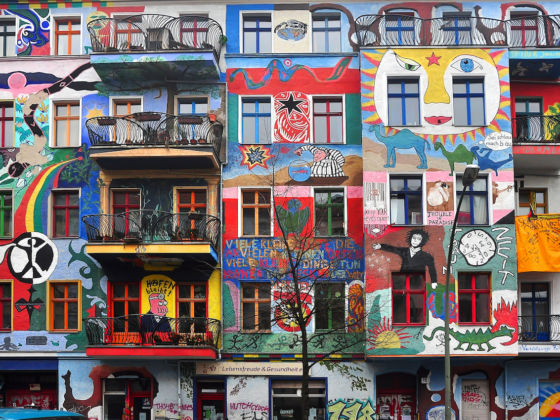
The 14 Best Transgender-Friendly Travel Experiences in Europe
J ust within the past few decades, 22 countries from around the world have signed anti-discrimination laws for transgender people. And, though it may seem like a small number, these laws only point to a bigger effort taking shape in destinations around the world, spurred by the gender identity rights movement that has finally snagged an international stage over the past decade. To help guide transgender travelers organize a truly magical and safe vacation, we’ve crafted a list of the top transgender-friendly destinations in the most LGBTQ-friendly continent in the world — Europe. From the sunny, accepting shores of Mykonos to the political activism-focused lounges of Copenhagen, these are the destinations that guarantee a stress-free, fun environment.
1. Berlin, Germany
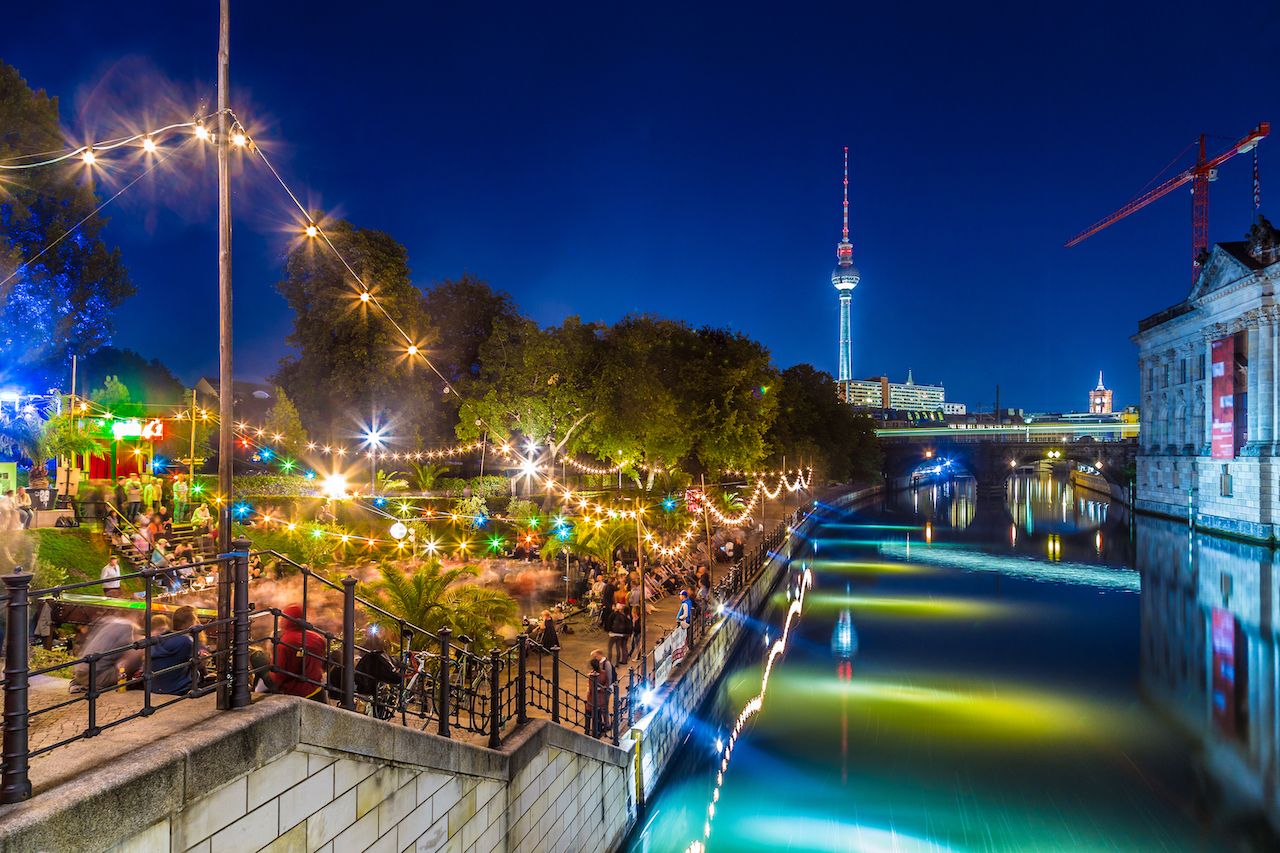
Photo: canadastock /Shutterstock
Considered by many to be one of the most LGBTQ-friendly places in all of Europe and perhaps, in the entire world, the city of Berlin, with its plethora of queer nightlife hubs and accepting culture is the top destination in Europe for those who classify themselves as transgender. The entire city is chock full of LGBTQ bars, restaurants, and shops. Transgender tourists especially come to appreciate the incredible drag scene in the city center — primarily located at The Club , which hosts art exhibitions and drag shows. The city is also home to the world’s first queer museum, the Schwules Museum .
2. Manchester, England
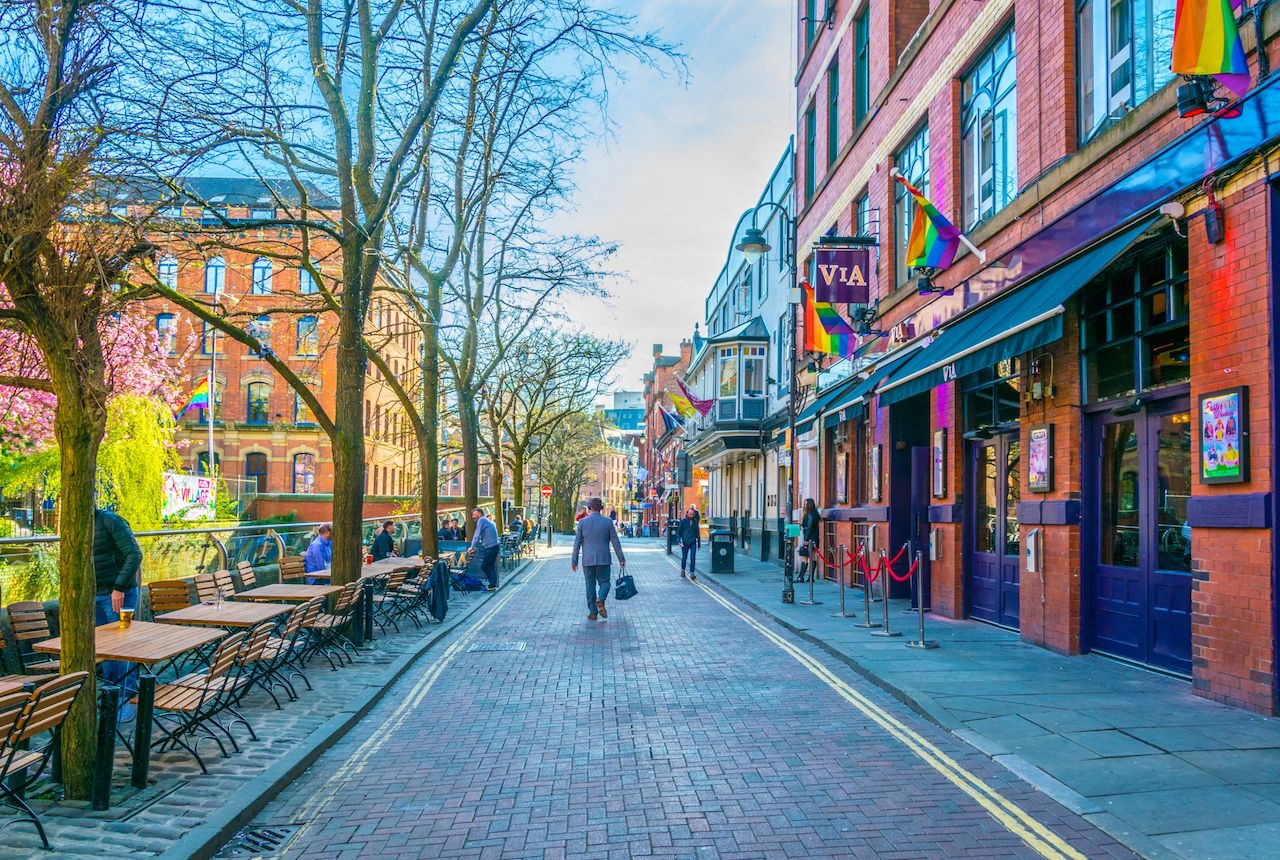
Photo: trabantos /Shutterstock
It would make sense that the same city that Queer As Folk was filmed in would be accepting of all LGBTQ+ lifestyles — and in every sense, Manchester, England, lives up to the queer hype. Whether you’re more interested in dancing the nights away in one of the many clubs and bars in the city (like G-A-Y or Poptastic ), or you’d rather pay homage to the history of the LGBTQ community in Manchester by visiting landmarks like the Alan Turing Memorial or the Transgender Remembrance Memorial, any amount of time spent in this city is sure to feel incredibly special.
3. Amsterdam, Netherlands
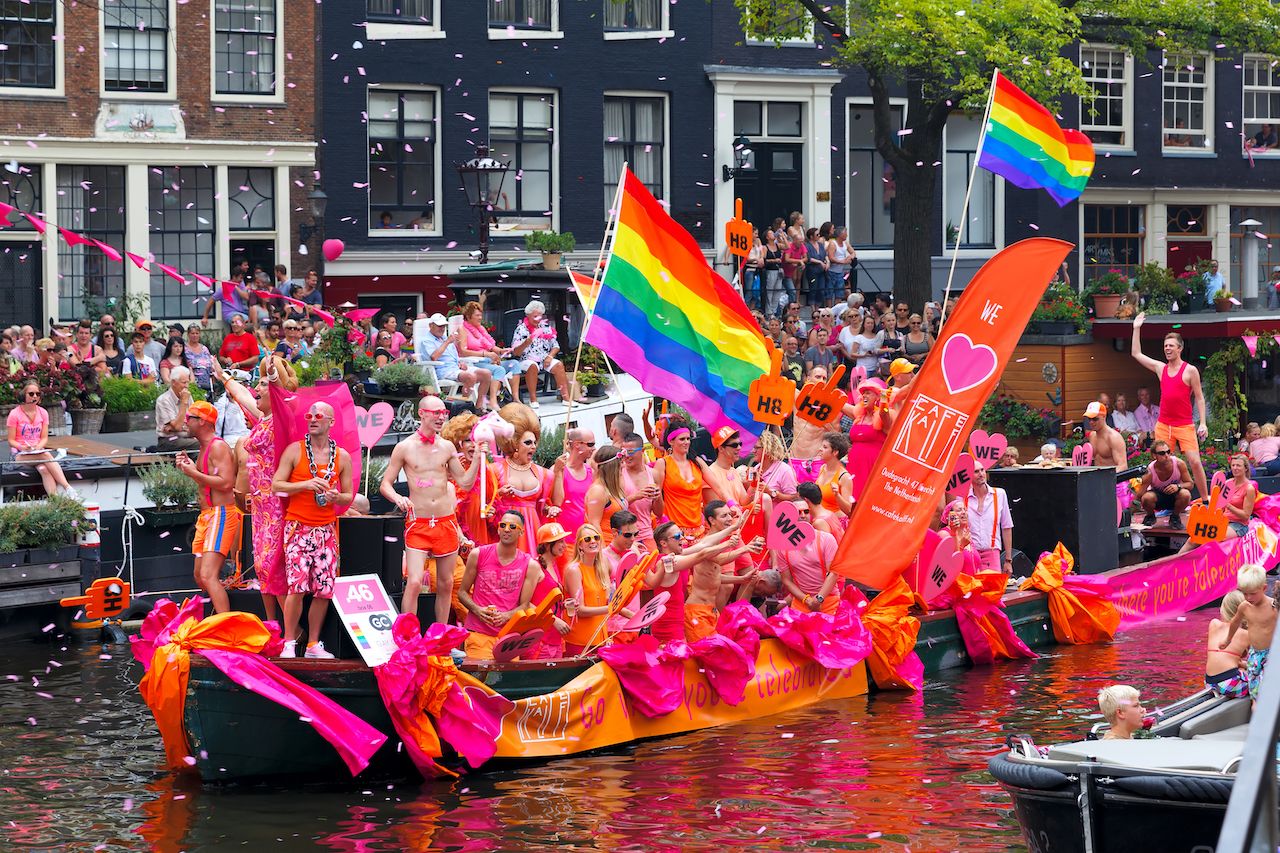
Photo: kavalenkava /Shutterstock
At its very core, Amsterdam is an incredibly accepting city — as is most of the Netherlands. And, when you combine this accepting nature with the many LGBTQ-friendly excursions and events that are constantly taking place around the city, it’s a must-see (and safe) destination for transgender individuals. If you are planning on being there over summer, be sure that you make it to Amsterdam Pride . The parade production runs on boats in the canal instead of the typical floats you’d see at any other Pride parade. If you can’t make it to Pride, then perhaps you can make it to Milkshake , a queer music festival in summer that is designed to be accepting of all.
4. London, England
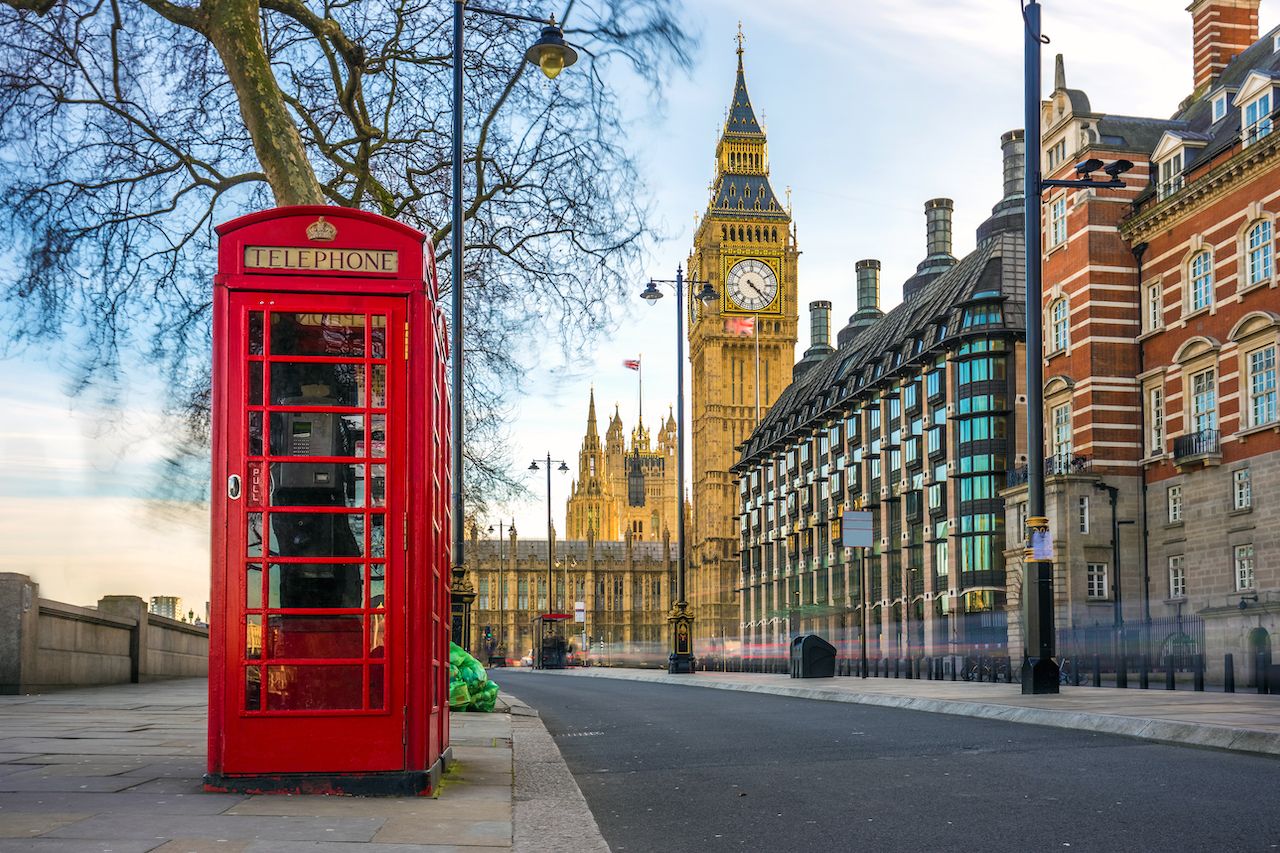
Photo: ZGPhotography /Shutterstock
For those looking to dance and admire art while on vacation, London is the ideal LGBTQ-friendly destination, offering a perfect combination of both at venues like Dalston Superstore , which serves up queer art exhibits and musical performances on the regular — as well as The Glory , a queer and transgender-friendly venue that hosts film screenings, cabaret nights, and performance art on the regular. Aside from these experiences, the city of London also has a plethora of LGBTQ bookstores and sex shops that will allow you to explore your limits while on vacation.
5. Paris, France

Photo: Catarina Belova /Shutterstock
While not all parts of France prove to be accepting of transgender people, the city of love is another story entirely — especially if you visit Paris’ gay district, located by the Hotel de Ville metro in the Le Marais neighborhood. To fully enjoy the LGBTQ scene in Paris, it’s best to start your vacation by taking a nightlife-themed or historical-themed tour of the city through Gay Locals , a local LGBTQ tour agency. That way, you’ll be able to more accurately plan your time in the city — whether that means checking out Oscar Wilde’s grave or grabbing drinks at the queer OPEN Café.
6. Dublin, Ireland
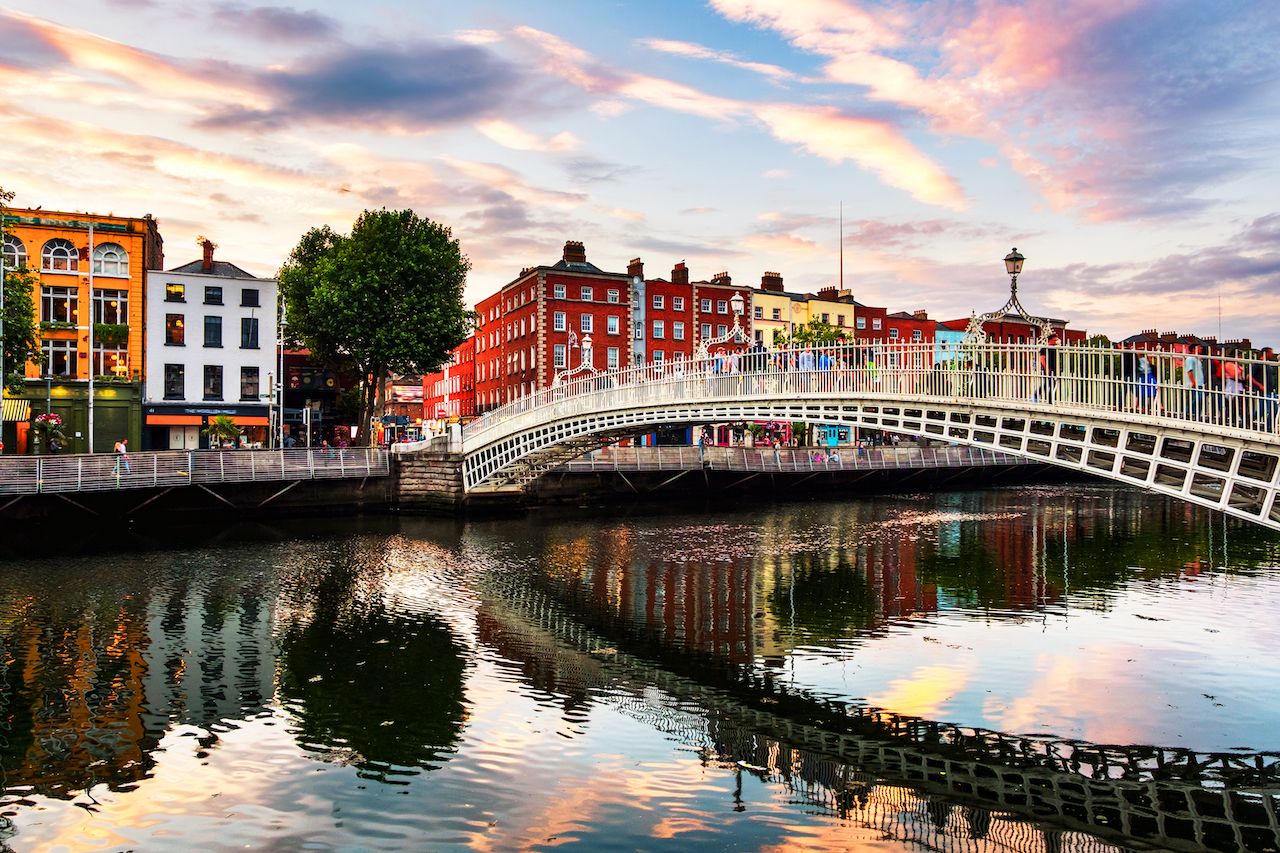
Photo: Madrugada Verde /Shutterstock
Though Ireland has only allowed same-sex marriage since 2015, the city of Dublin has been accepting of all lifestyles (including those of transgender-identifying individuals) for much longer. If you’re a fan of theater, then you’ll enjoy the city’s International Gay Theatre Festival , held every May, boasting some of the best LGBTQ cinema in the entire world. If you prefer watching drag performances, The George is a must-see, a bar crowded most nights with enchanting and famous drag performers. Or, if you’d prefer to hang around a more sophisticated crowd, be sure to check out Pantibar , owned and operated by Ireland’s most famous drag queen, Panti Bliss.
7. Mykonos, Greece
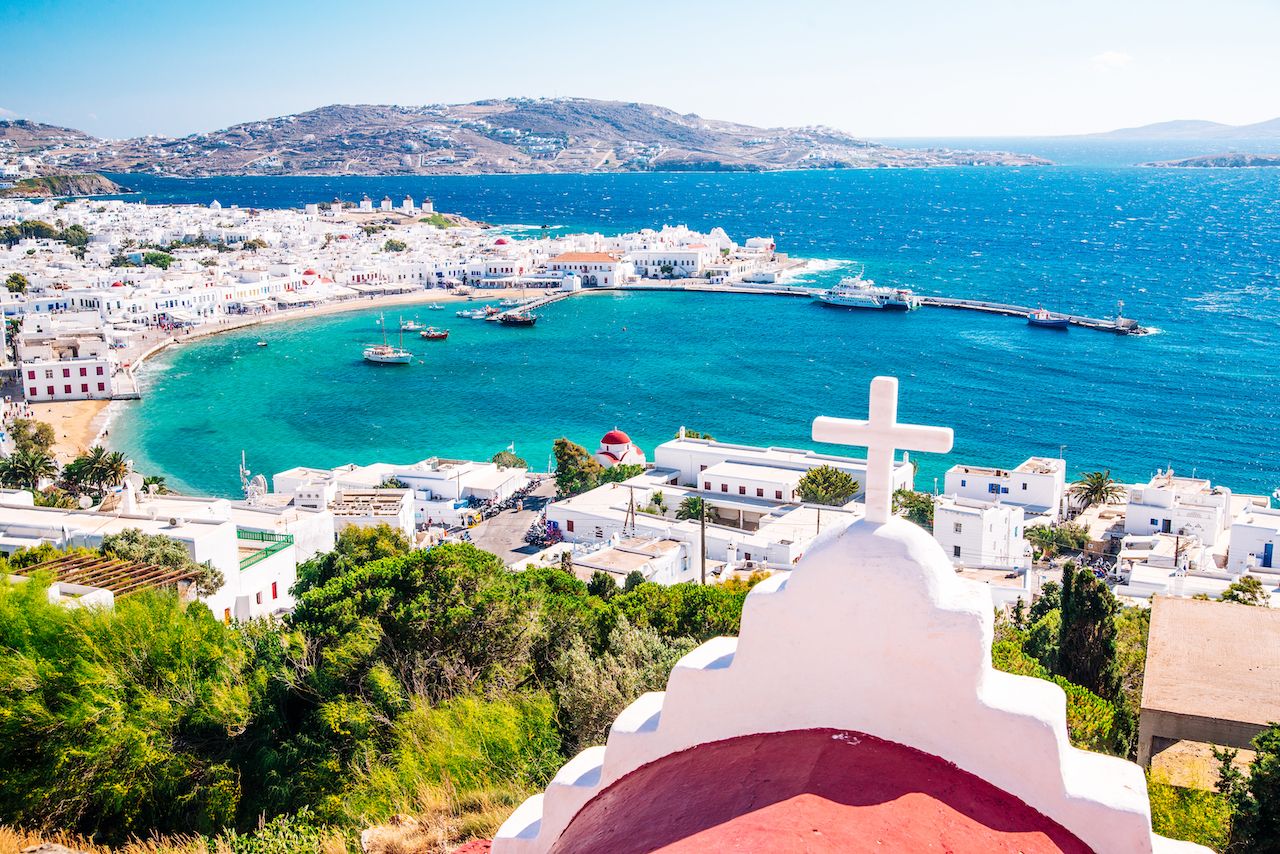
If you’re looking to soak in some sunshine and spectacular views in an accepting and safe place, head to Mykonos, Greece . Especially if you’re looking to meet other LGBTQ-identifying folks, be sure to pay a visit to the island during the XLSIOR Festival , which allows members of the LGBTQ community to meet each other in an accepting environment. If you can’t make it to Mykonos during that week, then instead book your stay at the LGBTQ-friendly Elysium Hotel and spend your nights sipping cocktails at places like JackieO .
8. Sitges and Barcelona, Spain

Photo: Lukasz Szwaj /Shutterstock
As it turns out, two of the most accepting LGBTQ destinations in Europe are only within an hour’s drive of one another. While visiting Barcelona , it’s essential to check out the International Gay and Lesbian Film Festival , typically held during the month of October. Then, in the gothic quarter of the city, you’ll find Antinous , an internationally celebrated LGBTQ bookstore stocked with comics, travel guides, and other oddities that promote LGBTQ culture. A short hour drive from Barcelona is the city of Sitges, which has celebrated nude beaches that are welcoming to everyone in the rainbow.
9. Lisbon, Portugal
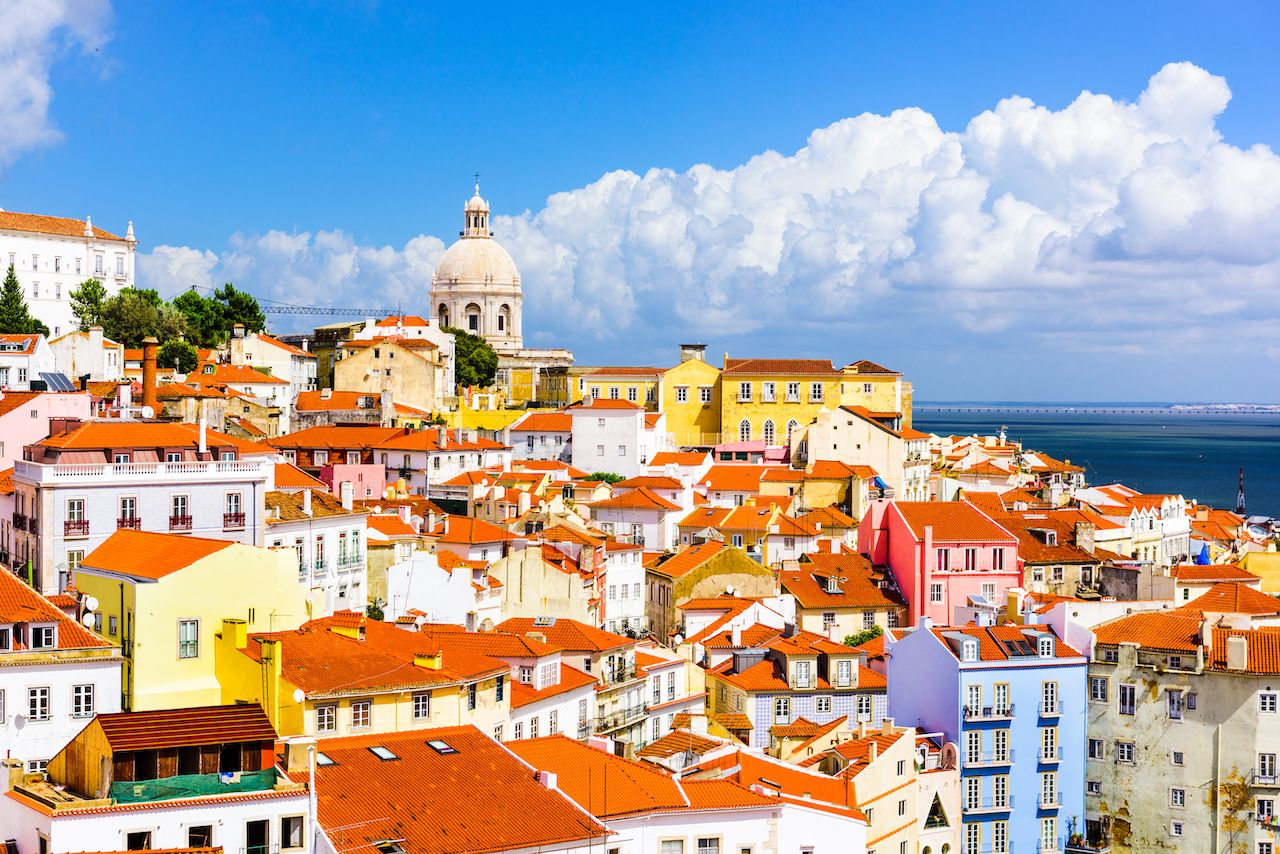
Photo: Sean Pavone /Shutterstock
As far as LGBTQ destinations are concerned, the major cities in Portugal are often overlooked — despite the fact that Lisbon is one of Europe’s most accepting cities on the map. While there, it’s essential that every transgender person visit the Finalmente Club — the first gay club established in the city, in 1976, serving up some of the most iconic drag shows in Europe. Those looking to enjoy all that Lisbon’s nightlife scene has to offer should also pay a visit to Bar 106 , a popular establishment for the transgender community, as the club encourages crossdressing and expressing yourself in whatever way you wish.
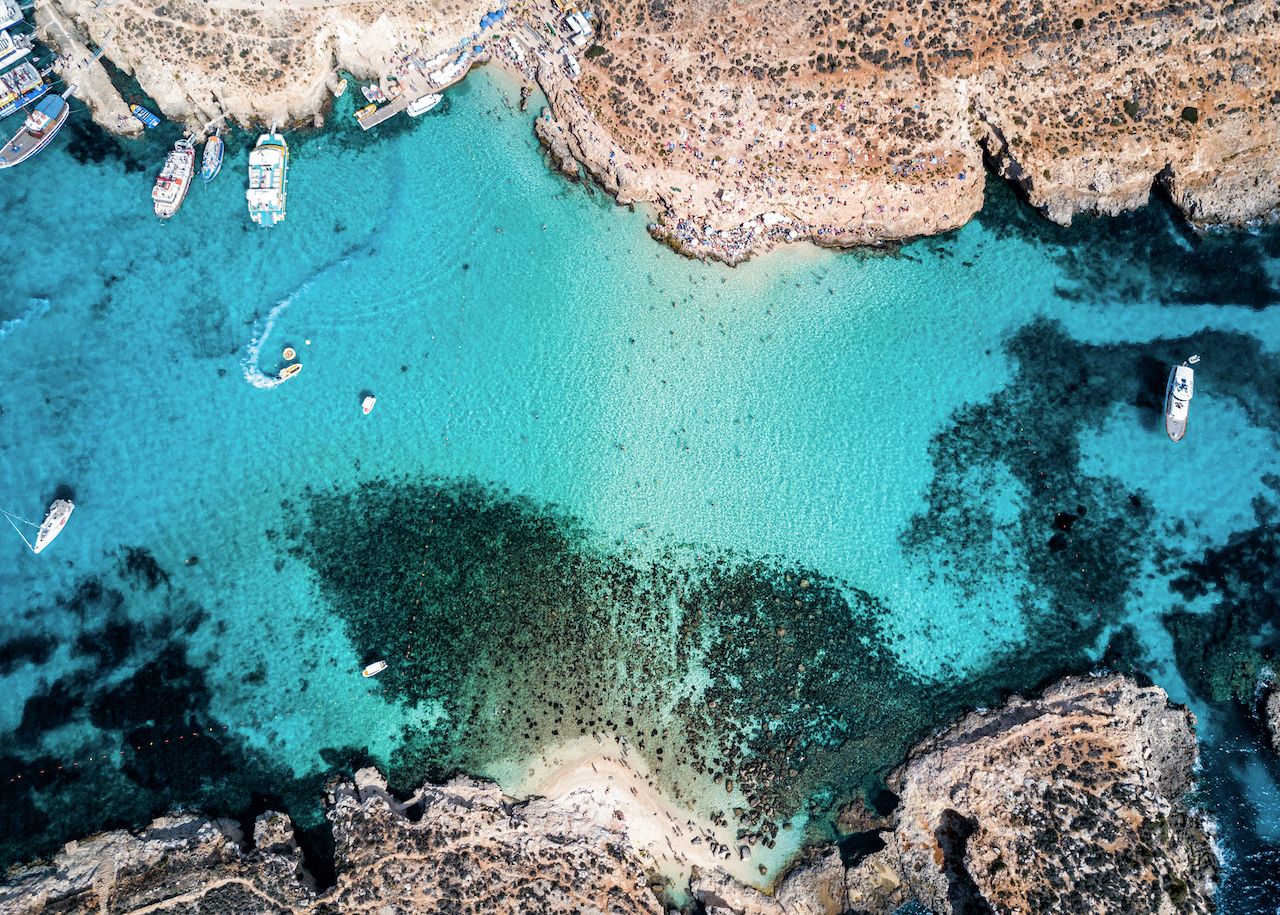
Photo: Nicholas Courtney /Shutterstock
Since 2015, the local transgender community in Malta have been protected under anti-discrimination laws based on gender identity — meaning that yes, this destination is one that proves to be safe and fun for transgender tourists. For drinks and conversation, head to the Michelangelo Club Lounge , a very intimate location that has great dance music and ample space for getting to know the LGBTQ locals. From there, tourists can head to the Birdcage Lounge for cabaret shows, live music, a cocktail bar, and plenty of drag entertainment.
11. Copenhagen, Denmark
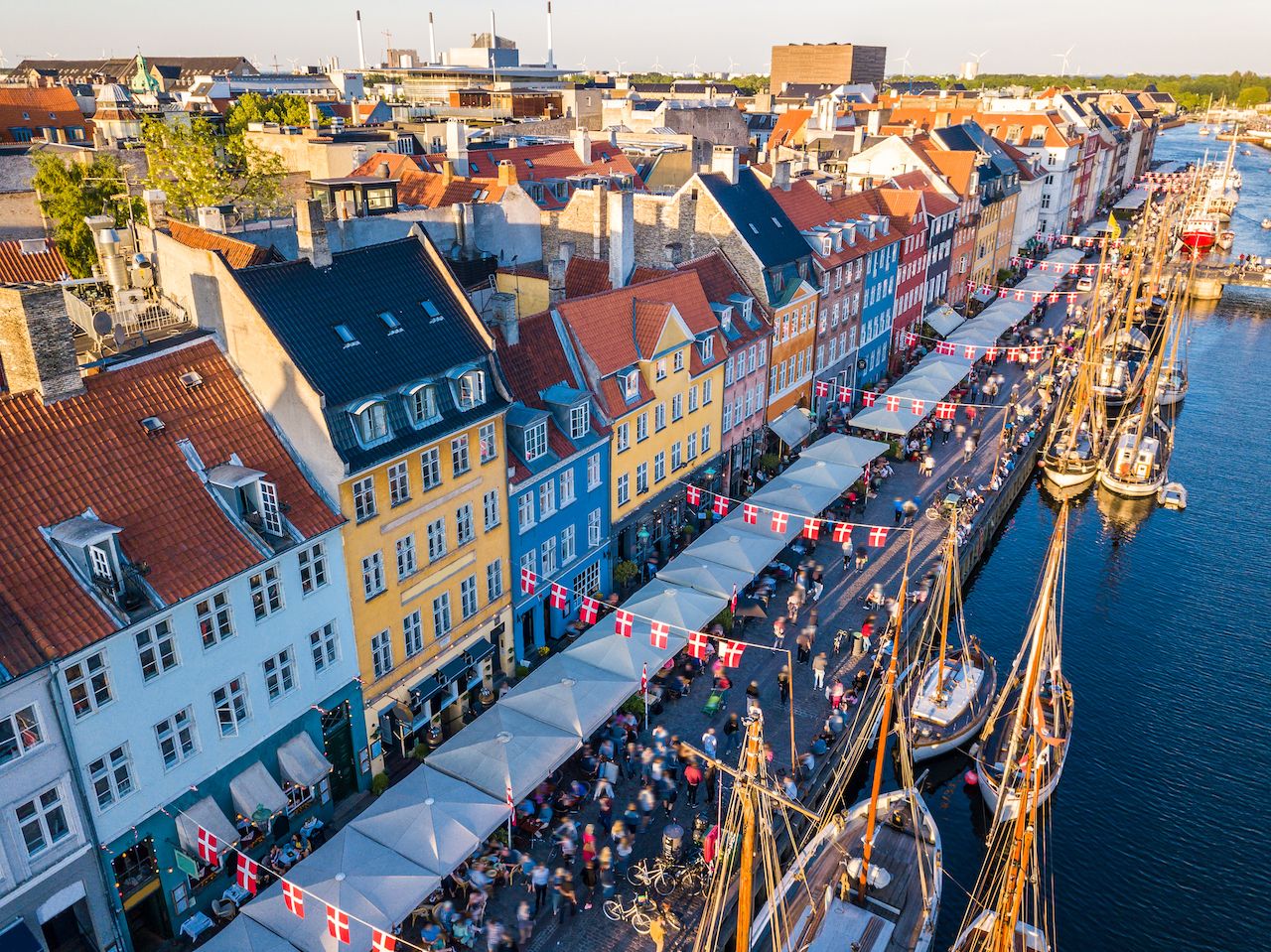
Photo: Kalamurzing /Shutterstock
Especially since Denmark was the first country to approve a number of rights for the LGBTQ community and generally has a more liberal approach to matters that pertain to sex and sexuality, Copenhagen is an essential bucket-list destination for transgender people. To begin with, a must-visit spot, especially for those who identify as transgender, is Warehouse9 , a performance space that focuses on the political issues behind gender identity through burlesque, dance, literature, art, activism, and music. After attending a show at Warehouse 9, head for drinks and conversation at the LGBTQ institution Kvindehuset .
12. Cologne, Germany
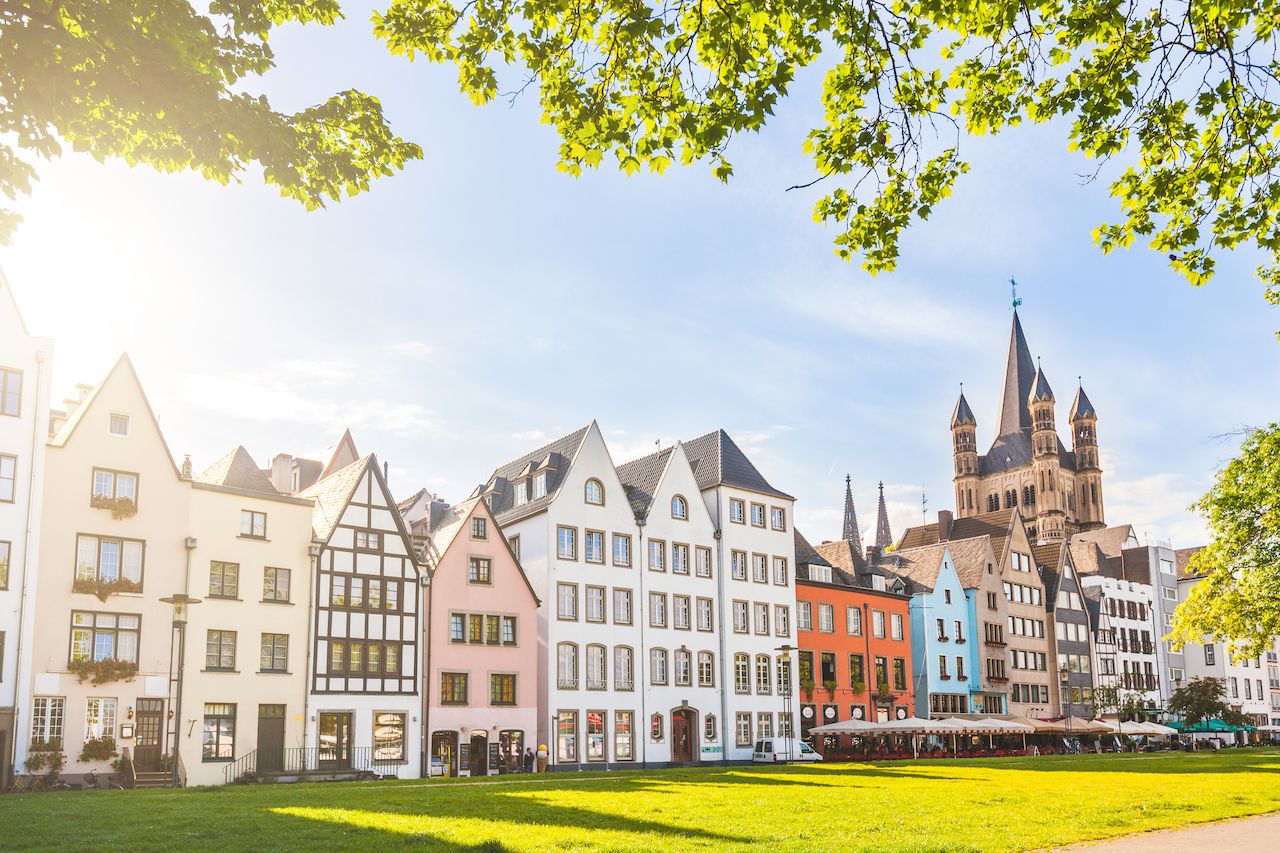
Photo: William Perugin /Shutterstock
Move over, Berlin — Cologne might just be the most LGBTQ-friendly city in all of Germany. More than any other destination on the list, Cologne has the highest number of hotels, stores, bars, and even saunas that specifically cater to the ever-growing LGBTQ scene in the city. Be sure to visit Cologne for its annual Pride Festival , proving to be one of the biggest in Europe.
13. Brighton, England
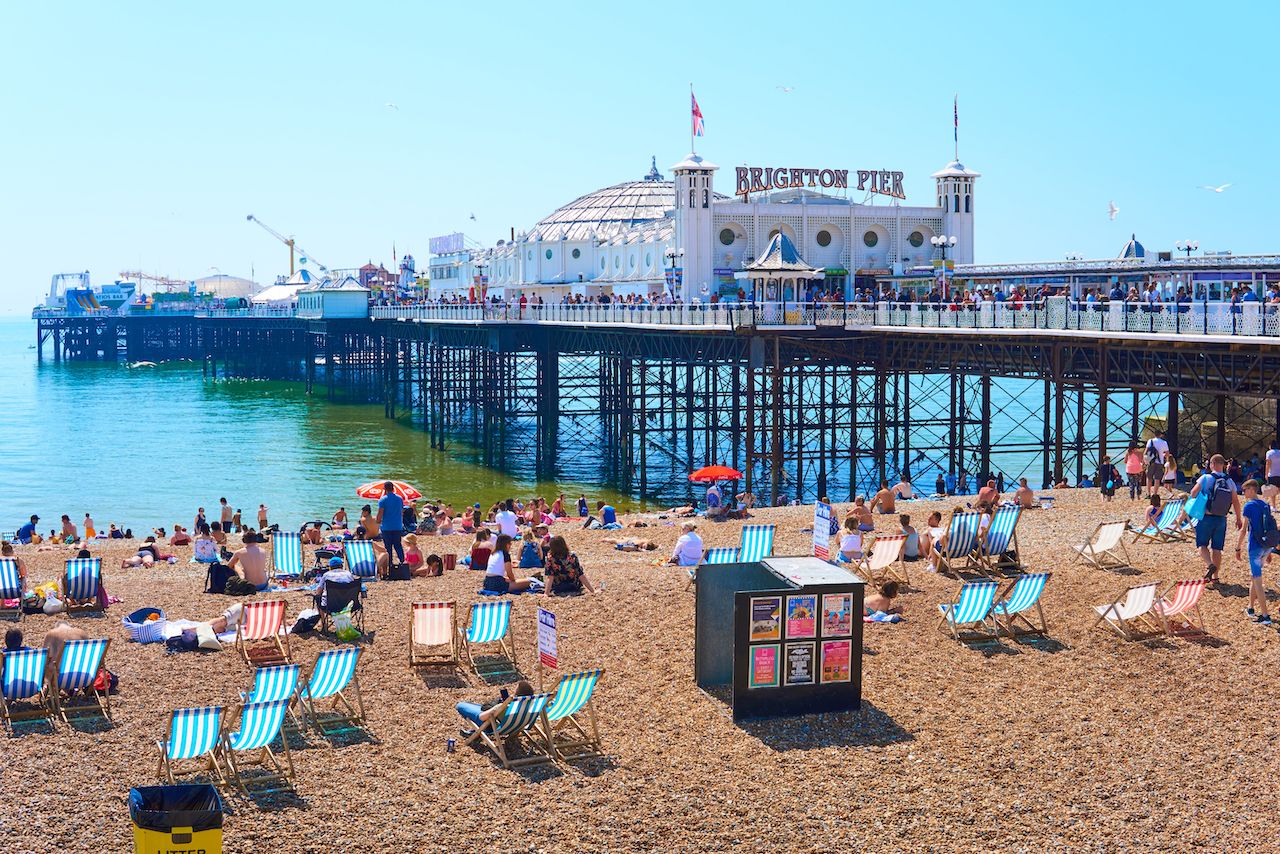
Photo: Michaelasbest /Shutterstock
Also called England’s unofficial “gay capital,” Brighton offers an incredibly accepting environment for every LGBTQ person. No matter where you may fall on the queer rainbow, take the time to embark upon the Piers & Queers Tour , an LGBTQ history tour offered by Only in Brighton. It’s also imperative that transgender tourists pay a visit to Revenge , a bar in Brighton that has served the LGBTQ community in the city for over 20 years, with sprawling premises and themed nights.
14. Stockholm, Sweden
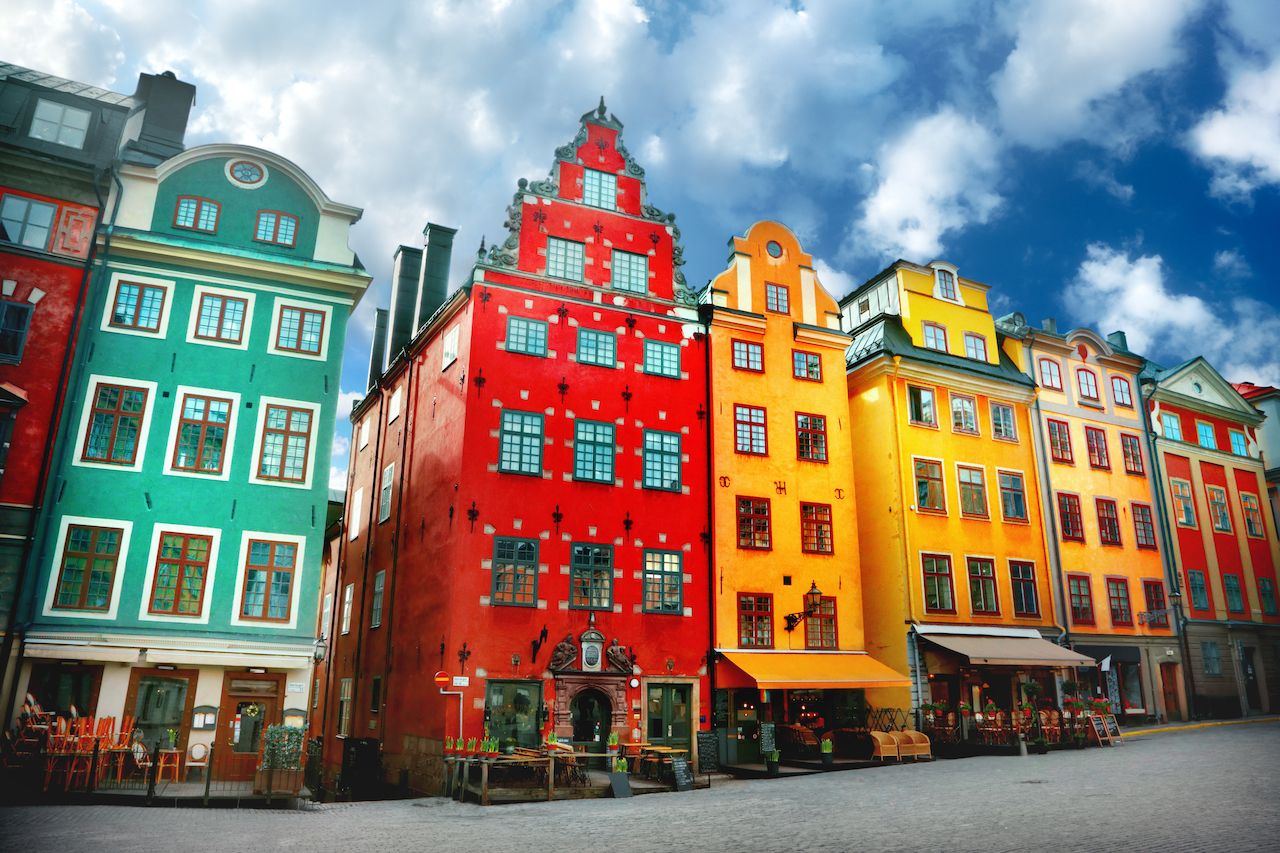
Photo: Adisa /Shutterstock
More like this
Trending now, the 25 dreamiest airbnbs in italy, the 10 best nudist resorts around the world, 8 epic spots where you can experience the northern lights this year, 2 italian airports will scan travelers' faces instead of requiring a passport, how to travel from the southernmost train station in europe to the northernmost in the fastest way possible, discover matador, adventure travel, train travel, national parks, beaches and islands, ski and snow.
Tips for Flying While Trans: The Transgender and Non-binary Travel Guide You Didn’t Know You Needed
For many trans people, airports can be stressful. As air travel returns, so do the experiences of flying while being a transgender, non-binary, or gender non-conforming passenger. We’ve put together this guide for everything you need to know about flying while trans.

We know that the pandemic isn’t #over, but with international travel restrictions easing, mask mandates being lifted state-by-state, and things returning to “normal” (is this normal?), the U.S. government seems eager to move on to the next version of life—pretending like the pandemic is over. This means travel is likely going to pick back up both domestically and internationally. For many of us, this comes with a sigh of relief knowing that we will be able to see family and friends and maybe go on holiday once again. However, this also means that many of us may have to face something that we haven’t experienced in a while—being a trans person in the airport.
You might be asking, “Can I just check myself as a piece of oversized luggage and get this over with?” Traveling as a transgender, gender non-conforming, or otherwise LGBTQ+ person, can come with feelings of anxiety and dread. For those who have transitioned during the pandemic and haven’t flown yet, the thought of navigating airport travel might be particularly nerve-racking. Being gender non-nonconforming in public is difficult enough without the extra added scrutiny of TSA agents, documents, carry-on drama, and body scanners.
The good news is that most trans people are able to travel through airport security without any incident. However, sometimes you will be asked to explain yourself, undergo additional screening, and potentially have unwanted and uncomfortable interactions with airport staff and security. While this can be stressful for most trans people, planning for these experiences can help you prepare for what might happen when you move through an airport. We wrote this guide to help you both know what to expect and what your rights are when it comes to traveling while trans.
What to expect when flying while transgender?
Documents: legal name and gender markers.
While not all transgender people’s documents and identity cards match up or align with our genders, all passengers 18 years of age or older are required to provide proof of identity at check-in and at the security checkpoint. To book a flight, you need to submit your full legal name, date of birth, and gender marker. For domestic flights, the name and gender marker you use should match the name and gender marker on your government-issued photo ID. For international flights, make sure to use the name and gender that matches the information on your passport. If you are undocumented and flying domestically, you will have to show a valid photo ID, but remember this can be a valid passport or an alternative form of identification. This means that if your current ID has your deadname on it, you will have to use that name when booking your flight.
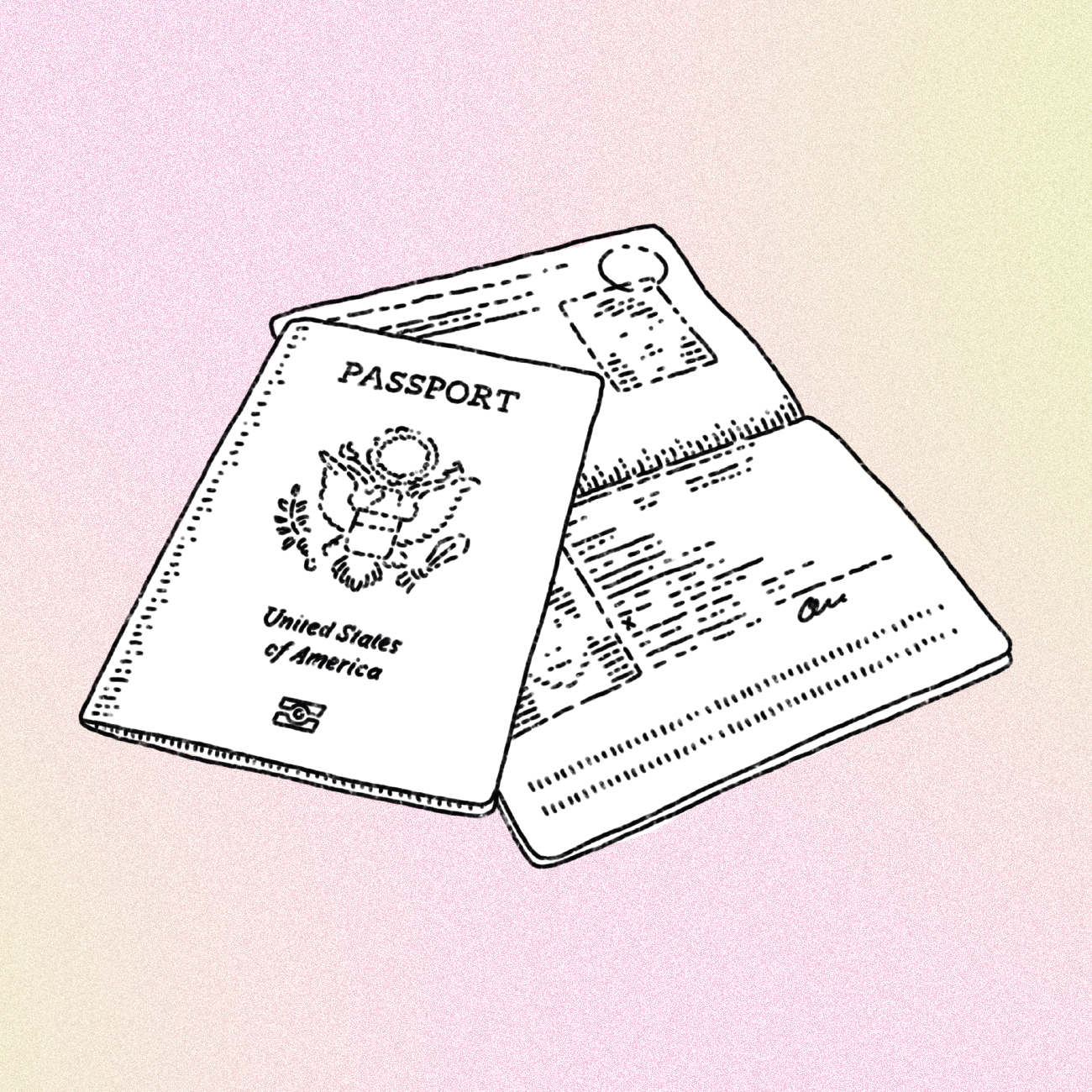
According to Trans Equality : “ The only thing that TSA agents should be looking for is that the name on your ID matches the name on your boarding pass. It does not matter If your current gender presentation matches that gender marker on your ID and TSA agents shouldn’t comment on this.” However, if you no longer look like the picture on your ID, be aware that airport staff or agents may give you a hard time or question you. If possible, try to obtain a new copy of your government-issued ID or passport before you travel. If this isn’t possible, it might be a good idea to obtain a note from a healthcare professional explaining why your appearance has changed so that you don’t have to. If you are a FOLX member, please speak to your clinician about obtaining a letter for travel.
For people who have chosen the gender-neutral marker “X” on their driver’s license or passport, some airlines—including American Airlines, Delta, and United—have added in a third gender option other than ‘male’ or ‘female.’ But do know that even if your driver’s license or your passport has the gender-neutral marker “X”—you might have to choose M or F when booking a flight, especially if you are flying internationally. Regardless of what gender marker is on your documents or boarding pass, unfortunately, TSA agents often make split-second decisions about a passenger’s gender based on visual presentation alone. While this can be painful and unfair, it’s important to prepare yourself for any questions or issues that might arise regarding your documentation and gender presentation.
Is TSA Pre-Check worth it?
For $85, TSA PreCheck™️ allows registered travelers to get through security faster and with less hassle via “expedited screening.” Usually, passengers who register with PreCheck walk through a metal detector instead of a body scanner (although this is not always a guarantee). You are also able to leave on articles of clothing like shoes and belts. Once you apply online , the program gives you PreCheck status for up to five years. If financially accessible to you, this might be a good option if you travel by plane frequently. Note that during the approval process, you might need to disclose your deadname if you have legally changed your name.
If you go through airport security checkpoints without TSA PreCheck, make sure to give yourself plenty of time in case any unexpected issues arise.
Going Through Airport Security- Metal Detectors and Body Scanners
With TSA agents make snap decisions regarding people’s genders every day. In 2019, an investigation by ProPublica found that shortcomings in technology and lack of sufficient training have made many transgender and gender nonconforming travelers particularly vulnerable to invasive searches and privacy violations at airport checkpoints. Body scanners are designed to mark trans bodies as anomalies.

At this moment in time, TSA uses advanced imaging technology in the form of millimeter wave scanners to screen passengers through airport security checkpoints. This creates a system in which the scan of your body will be compared to a binary algorithm, based on two cisgender, able-bodied versions of “man” and “woman.” When the artificial intelligence (AI) comes across a body that does not match the anatomy coded into the system, a yellow box will pop up in the area under suspicion. This is the information that agents will use to search a passenger. We know this doesn’t just start with gender identity either, TSA has a long history of discrimination and harassment against passengers due to race, ethnicity, religion, and disability. These body scanners find “anomalies” in the forms of disabilities, racial characteristics, and other attributes that the system does not recognize as “normal”— like Black women’s hair , for one.
And while the Transportation Security Administration (TSA) has announced that it will begin to roll out new gender-neutral screening processes by developing new AIT screening technology, when these changes will actually take effect remains unknown. It’s important to know that full-body scanners are voluntary and you have the right to refuse to enter one. If you opt-out (or the body scanners detect something), you will be required to go through a pat-down by “an officer that is the same gender as the TSA officer’s assessment of how you present. Alternatively, you may choose to inform the officer of your gender identity and make a request that the pat-down be conducted by an officer of that gender,” according to these TSA guidelines.
What to expect during a pat-down?
You have the right to dress exactly as you want to and in a way that reflects and expresses your gender. However, when traveling by air, some transgender and non-binary people might choose to dress in a way that will minimize unwanted interactions and bias while traveling. Unfortunately, this isn’t a reality or possible for many of us, but know that certain types of clothing including binding materials or prosthetics may cause airport staff to undergo additional screenings. This might also happen if a body scanner picks up on an “anomaly” under your clothes that is incongruent with an operator’s gender selection. If a pat-down is required, know that you are allowed to request this be conducted in private, and you are legally entitled to bring a companion with you as a witness. Per the TSA website, you should never be asked to lift or remove any articles of clothing or to remove a prosthetic item. If this happens to you, please speak to a supervisor if a TSA agent harasses you or violates these guidelines.
If you are a transgender woman or trans femme, you might find that tucking can help you pass through body scanners without the extra scrutiny. If you are a trans man or a transgender person who packs, make sure that your packer is free of any metal pieces. If possible, we recommend not wearing a binder while traveling. If you have to bind, know that binders will usually require you to undergo extra screening and/or a limited pat-down of the chest area. It’s always good to be prepared for a pat-down, in case the scanner happens to set off an alarm. Remember, you cannot be asked to gender your gender-affirming prosthetics or any garments. If you are wearing a wig, you may request for a limited pat-down of the hairpiece or that you be permitted to pat down your own hair yourself.
Carry-on luggage items
Medication and supplies, such as HRT, as well as prosthetics, are allowed through the checkpoint after going through security, however, some trans travelers might feel safer putting these items in checked baggage. Know that gel-filled prosthetic items such as breast forms are not included in the 3oz liquid limit (as they are considered medically necessary for both trans women and trans femmes, as well as cisgender women who have undergone a mastectomy), but their presence may result in extra screening or questioning. If your hormones and supplies such as needles and syringes are in your carry-on, place these items in a separate plastic bag. It’s always a good idea to bring your prescriptions for medications in the form of a pharmacy receipt or letter from a healthcare professional. Know that you have the right to ask for a private screening if your bags need to be opened for any reason. For more detailed information on what to do with traveling with sharps, check out our article on HRT Needle and Syringe Safety.

Carrying condoms, lube, and sex toys is a common occurrence for anyone who wants to experience pleasure or have safe sex anywhere they go. Lots of people travel domestically and abroad with different types of sex toys, safer sex items, and types of birth control without issue. However, you should note that In some countries, traveling with “sexually explicit materials” may be used as evidence of sex work which may result in a passenger being detained. Trans people are often unfairly targeted or harassed, especially for being in possession of sex toys or other items. Make sure you do your homework when traveling abroad and know which borders you might be crossing.
How to communicate with TSA agents
- Know your rights—you have a right to privacy and can always speak with a supervisor at any time during the screening process at airport security checkpoints or check-in. If an issue arises, request that a TSA agent or staff take appropriate action. If the TSA personnel you speak with are unaware of your rights, you can pull up TSA’s Guidance for Transgender, Non-binary, and Gender Non-conforming Passengers on your phone.
- Be polite, respectful, and direct. You have the right to be treated with dignity and respect. Try to stay calm and collected. It can be extremely frustrating and infuriating to navigate transphobia, especially in such a high-stress environment, but try your best to stay level-headed.
- Remember, you should never be asked to lift or remove any articles of clothing or to remove a prosthetic item. This is clearly outlined on the TSA website. If this happens to you, please speak to a supervisor if an agent violates these guidelines.
- Consider carrying a Discreet Notification Card to disclose specific personal information, in the form of a printed version or a photo on your phone. This is a method for communicating discreet specific information to TSA agents. All agents and staff should be trained to recognize this card and take appropriate action during screening procedures. You can also call ahead of your flight. Call the TSA Cares helpline at (855) 787-2227 and request the help of a passenger support specialist, who can assist you when you arrive at the airport.
- Remember to stay calm as possible if approached. You might be approached by a Behavioral Detection Officer (BDO). BDOs are agents who walk around looking for “suspicious behavior” and identify people whose mannerisms and behaviors seem consistent with those trying to conceal criminal activity. If you are approached, it’s natural to feel anxious. Remember to give simple answers to any questions and know that you haven’t done anything wrong. It might be helpful to share why you are particularly anxious, even if that means disclosing your trans or non-binary status to the officer.
How to file a complaint with TSA if you have been discriminated against
If you believe that you were discriminated against or that your screening was inappropriate, you should ask to talk to a supervisor at the checkpoint and ask to make an official complaint. Make sure to provide the name of the TSA agent who conducted your screening or who was otherwise involved. You may also submit your concern to the TSA Contact Center or email or submit a civil rights complaint . The United States Department of Homeland Security also has a Travel Redress Inquiry Program portal through which travelers can seek redress for negative screening experiences.
If possible, you should make a complaint immediately after the incident, or as soon as you are able and provide as many details as possible. You should include the airport, date, time, and as much information about the incident and people involved as possible. Information and an optional form for filing complaints with the DHS Office for Civil Rights and Civil Liberties can be found here . Fill it out and email it to [email protected], or, if you cannot save the form, email the same information it asks for to that address.
Information and an optional form for filing complaints with the TSA Office for Civil Rights and Liberty can be found here . You can submit a complaint by sending the form or an email containing the same information to [email protected] . You may also contact TSA prior to travel through “Talk to TSA” or the TSA Contact Center at 1-866-289- 9673 and [email protected].
For additional information, you can always read through TSA Security Screening .
FOLX Health is the first digital healthcare company designed by and for the LGBTQIA+ community. Our services include virtual primary care , gender-affirming hormone therapy including estrogen and testosterone (HRT), mental health care , sexual and reproductive health care, preventive care , and fertility consultations . FOLX memberships give you access to LGBTQIA+ expert clinicians, peer support, thousands of LGBTQIA+ resources, and more. Whether you’re lesbian, gay, bisexual, transgender, queer, gender non-conforming, or nonbinary, you can find LGBTQIA+-specialized health care that helps you meet your wellness goals. FOLX Health is health care that's queer all year. Get all the benefits of becoming a FOLX member and sign up today !
Sign up for our newsletter
Related articles.

The Psychological Impact of Voice Dysphoria

Building Resilience and Managing Anxiety: A New Course on the FOLX Community Platform

Managing Gender Euphoria on Your Period
We are an independent publisher. Our reporters create honest, accurate, and objective content to help you make decisions. To support our work, we are paid for providing advertising services. Many, but not all, of the offers and clickable hyperlinks (such as a “Next” button) that appear on this site are from companies that compensate us. The compensation we receive and other factors, such as your location, may impact what ads and links appear on our site, and how, where, and in what order ads and links appear. While we strive to provide a wide range of offers, our site does not include information about every product or service that may be available to you. We strive to keep our information accurate and up-to-date, but some information may not be current. So, your actual offer terms from an advertiser may be different than the offer terms on this site. And the advertised offers may be subject to additional terms and conditions of the advertiser. All information is presented without any warranty or guarantee to you.
This page may include: credit card ads that we may be paid for (“advertiser listing”); and general information about credit card products (“editorial content”). Many, but not all, of the offers and clickable hyperlinks (such as a “Apply Now” button or “Learn More” button) that appear on this site are from companies that compensate us. When you click on that hyperlink or button, you may be directed to the credit card issuer’s website where you can review the terms and conditions for your selected offer. Each advertiser is responsible for the accuracy and availability of its ad offer details, but we attempt to verify those offer details. We have partnerships with advertisers such as Brex, Capital One, Chase, Citi, Wells Fargo and Discover. We also include editorial content to educate consumers about financial products and services. Some of that content may also contain ads, including links to advertisers’ sites, and we may be paid on those ads or links.
For more information, please see How we make money .
Traveling while transgender: Tips to stay safe and avoid stress
Signing up for credit cards through partner links earns us a commission. Terms apply to the offers listed on this page. Here’s our full advertising policy: How we make money .
Many people view travel as a time to relax and unwind, yet logistics like planning, getting through the airport , and navigating around an unfamiliar destination can make it a stressful experience as well. And travel comes with plenty of additional challenges for members of the transgender and gender non-conforming communities. You may have difficulty finding inclusive destinations, going through Transportation Security Administration (TSA) screenings at the airport, or presenting documentation when entering foreign countries.
This guide is intended to prepare those who are transgender for the unique challenges that may come up while traveling, and to include tips and resources to assist you along the way.
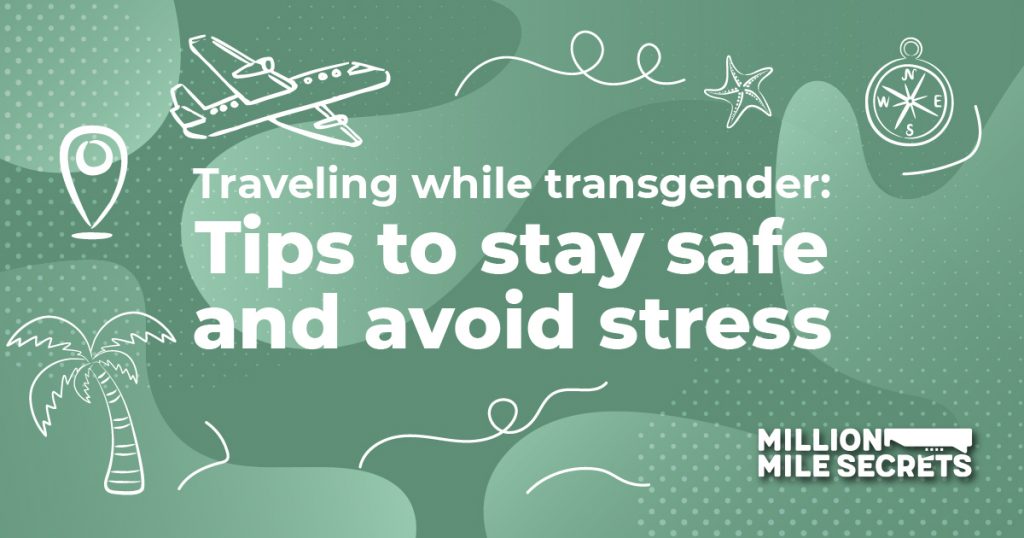
Planning your trip
Choosing a destination.
We’ve identified LGBTQ-friendly travel destinations around the world , which are also good choices for those who are transgender and gender non-conforming. Such stateside destinations include cities like Key West, Florida, Providence, Rhode Island, and Cedar Rapids, Iowa. You can also travel internationally to highly inclusive spots like Puerto Vallarta, Mexico, Toronto, Canada, and Tokyo, Japan. Here are some cities throughout the globe that have a lot to offer the transgender community, in particular:
Fort Lauderdale: One U.S. city that actively welcomes transgender folks is Fort Lauderdale, Florida. The city has been host to the the Southern Comfort Conference , the largest annual trans conference in North America, for several years. Resources you’ll find throughout the city for the transgender community include social groups, drop-in centers, and plenty of safe restrooms for transgender and gender non-conforming individuals .
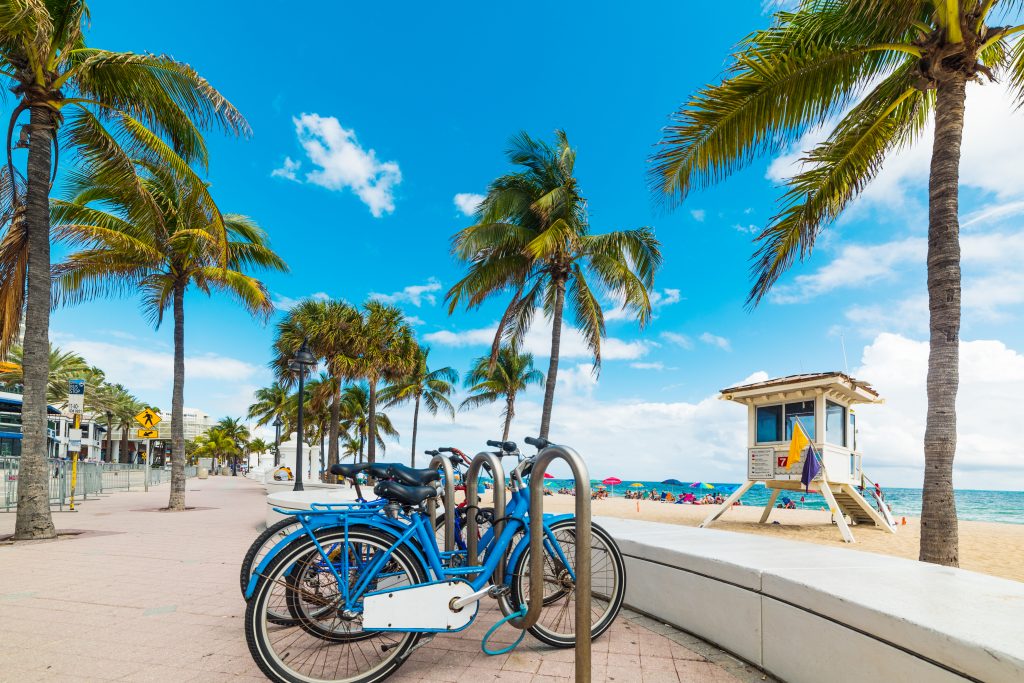
Manchester, England: Commonly referred to as the transgender capital of the North, this city is known for its lively LGBTQ community that includes pubs, night clubs, and hotels. If you’re in the mood for a formal afternoon tea, you can check out Richmond Tea rooms , while the city’s annual Sparkle Weekend — organized by the Sparkle transgender charity — draws people from far and wide for its live music, entertainment, and shopping.
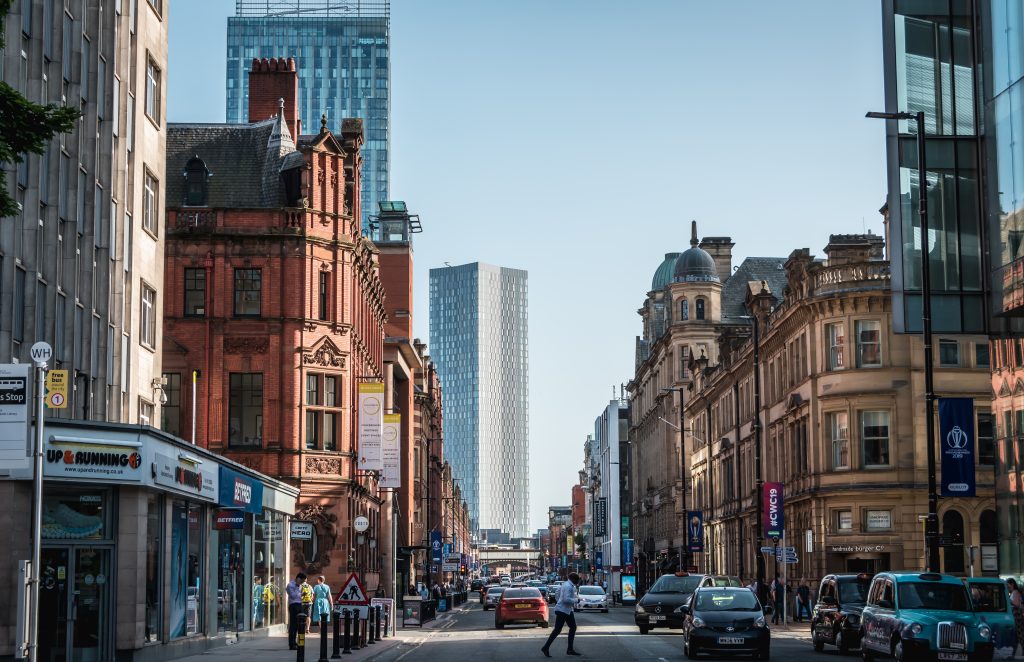
Toronto, Canada: Many head to Canada for the annual Toronto Pride Festival , which takes place every year in June and showcases artwork, motivational speakers, entertainment, and a colorful parade. The event takes place in the city’s Church-Wellesley Village neighborhood, which offers a variety of LGBTQ-owned shops and restaurants, including Woody’s of Queer as Folk fame. What’s more, Toronto is also host to the springtime Inside Out LGBT Film Festival , where LGBTQ films are screened and panel discussions take place.
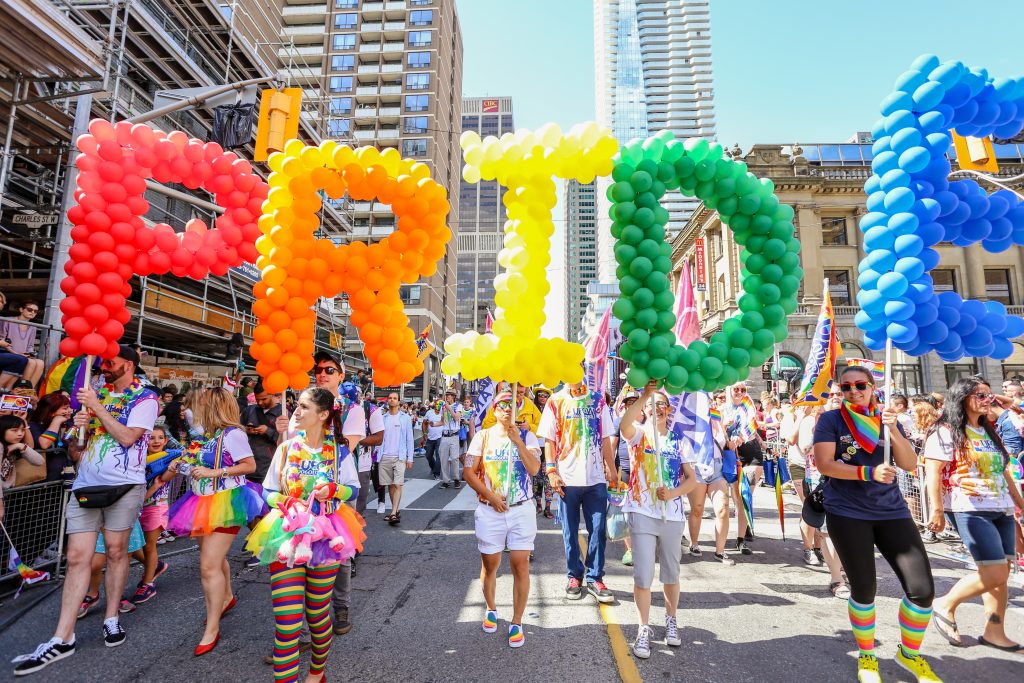
Know the laws: As a good rule of thumb, before traveling internationally, know the laws of the country you plan to visit, advises trans travel blogger Aaron Edwards , who adds that when a country has transgender-friendly laws, that’s generally an accurate reflection of the beliefs of the people who live there.
The U.S. State Department reports that transgender travelers have sometimes encountered difficulties entering foreign countries when the name or gender on their passport no longer correspond to their current identity. It provides forms and instructions for changing or correcting a passport and updating the sex marker on your passport .
Check for COVID-19-related requirements: In addition, in today’s day and age, if you’re considering heading to an international destination, be sure to find out the COVID-19-related requirements for that country. Check out our guide that covers the status of various popular vacation destinations . For instance, some spots require you to present a negative COVID test result taken within the previous three days. While our guide is a good starting resource, always check directly by calling or visiting the website of your intended destination, as rules can change often. You should also check for travel warnings issued by the U.S. State Department .
Locate gender-neutral restrooms: A good thing to know when setting your sights on any travel destination is whether there are safe restrooms for transgender, intersex, and gender non-conforming individuals. Refuge is a website and an app that lists transgender-friendly public restrooms, and users can add new listings for such places whenever they come across them.
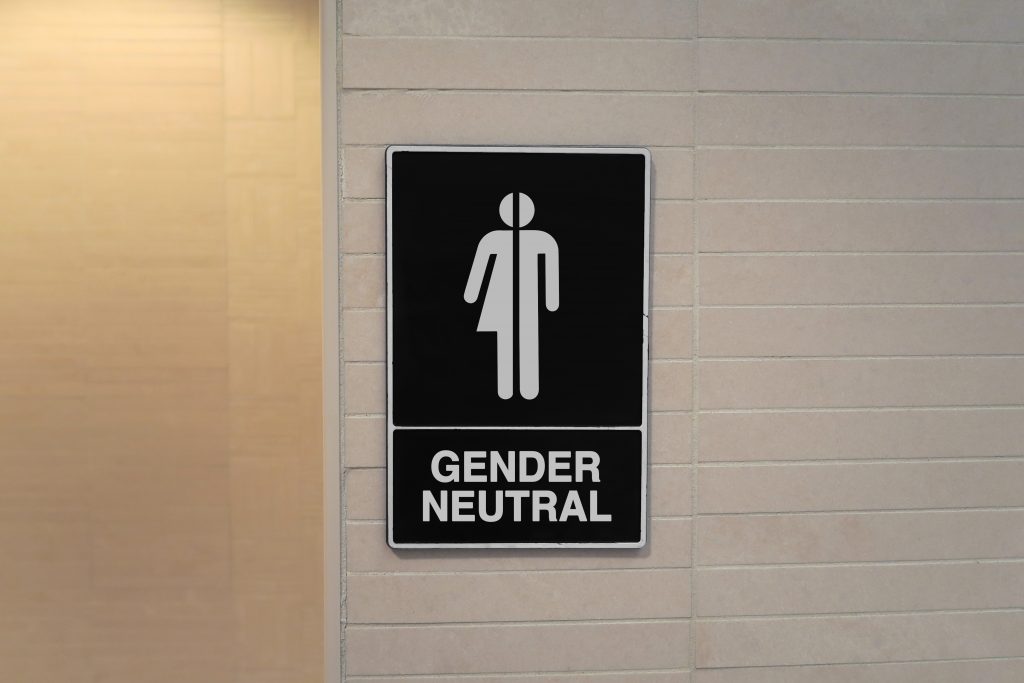
Preparing your documentation
If you’re over the age of 18, you’ll be required to show identification at the airport security checkpoint. Here are some important things to know as a transgender individual to help this process go as smoothly as possible:
Make sure your airline reservation information matches your ID: The name, gender, and birthdate you provide when booking your flight should match those on the ID that you plan to travel with. (It does not matter whether your current gender presentation matches that which is listed on your ID or the photo on the ID.)
The reason this information needs to match is the TSA’s Secure Flight Program checks every person’s reservation information against government watch lists. Information such as the gender provided for each reservation can help eliminate false matches among names that are similar.
Consider signing up for TSA PreCheck: TSA offers an expedited screening program called TSA PreCheck , which enables you to leave your shoes and belt on during airport screening. In addition, while it’s not always the case, those with TSA PreCheck often are allowed to go through a metal detector instead of a body scanner. The cost to you is $85.
If you decide to sign up for TSA PreCheck, do so well enough in advance of your trip. The process includes a brief interview, fingerprinting, and a background check. While approval times may vary, TSA officially says the average time of approval is 2 to 3 weeks. Most individuals, including some members of the MMS team , have received email approval within a couple of days. Once you receive that, you’ll then be mailed a letter containing your new Known Traveler Number, which you can then add into your airline profiles.
Packing your luggage
Whether it’s a carry-on or a checked bag, all luggage will be screened, and it may also be hand-searched by TSA personnel. To potentially save time and avoid extra questions or hassles, here are some good rules of thumb:
Decide whether to pack certain items in your carry-on or a checked bag: While the three-ounce limit in a carry-on for liquids does not apply to medical products like gel-filled prosthetics, you may still prefer to pack items such as these in a checked bag simply to avoid possible extra screening due to their presence. Similarly, you may feel that items such as packers are better off placed in a checked bag than in a carry-on.
If you pack hormones in your carry-on bag that need to be kept cold, you can ask a flight attendant if the bottle can be placed in a refrigerator once you’ve boarded the plane.
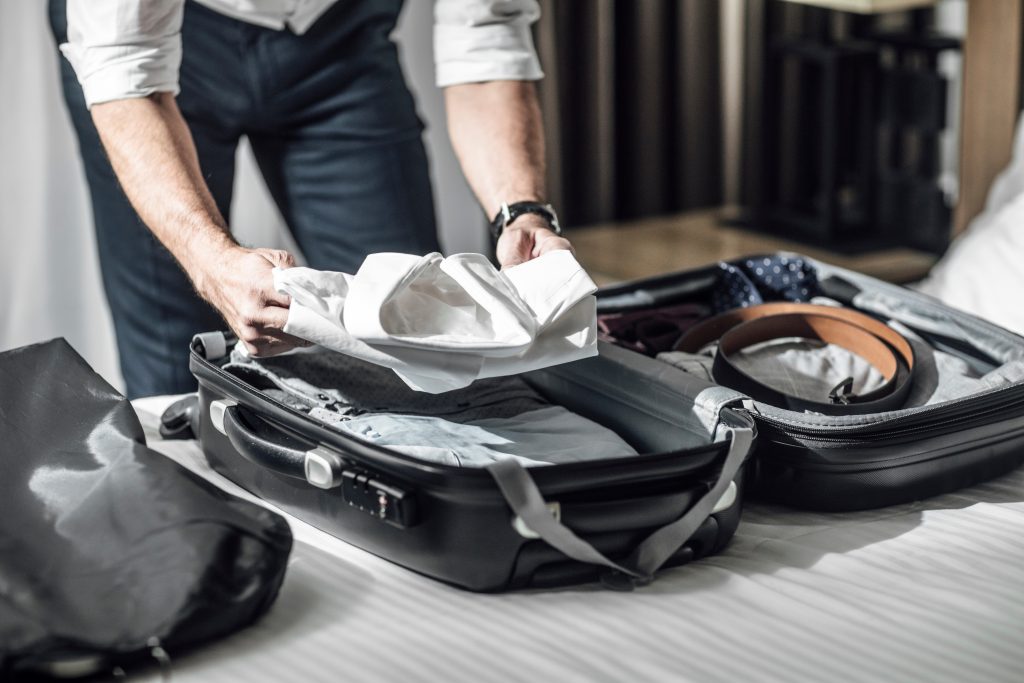
Pack medical supplies in your carry-on in a resealable plastic bag. Items such as medicine and syringes in your carry-on luggage are best off placed in a separate bag and stowed near the opening of your carry-on. This will make them easy to retrieve for inspection.
Carry proof of a doctor’s prescription: If you’ll be putting items like syringes or dilators into your carry-on, bring proof that they have been prescribed by a doctor. This could be in the form of a letter from your physician stating the items are medically necessary.
As for traveling with syringes, TSA allows you to have unused syringes when they’re accompanied by an injectable medication. You are required to declare them to TSA personnel at the airport checkpoint so they can be inspected.
Whenever possible, keep prescribed medications or medical devices in the pharmacy’s packaging with the labeling intact. Be aware in advance that you might be asked to explain the purpose of any such items.
Navigating TSA at the airport
Bring a discreet notification card: While it’s not required, you can choose to download a TSA notification card as a means of discreetly alerting the TSA screener of your status as a transgender person. Alerting screeners up front can potentially spare you from being asked certain questions.
Know what to expect from body scanners: TSA’s Advanced Imaging Technology (AIT) is programmed to detect items underneath a person’s clothing that could be dangerous. Items such as prosthetics and binding garments can end up setting off an alert. In such cases, you’ll likely be subjected to a pat-down in the areas where items have been detected, and it could also result in a full-body pat-down.
If you’re wearing a prosthetic that is red-flagged by the screening technology, it’s in your best interest to remain calm and explain what the item is in a straightforward way. You should not be asked to show or remove the item.
Consider opting out of AIT body screening : If you would rather not have to go through the AIT body scanning process, you can request to undergo a thorough pat-down as an alternative.
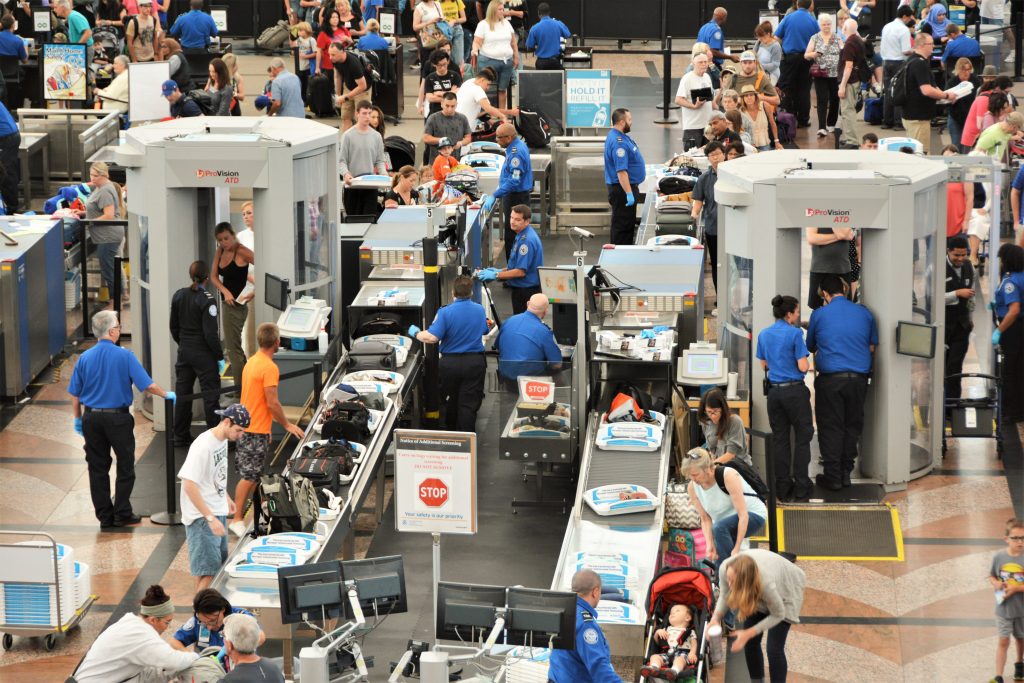
Request a private screening and/or pat-down, if desired: Per TSA rules, if you are subjected to a pat-down, you are able to request to have it conducted in private, and you are legally allowed to bring a companion along. On a related note, if your bags need to be opened so TSA personnel can examine the contents more closely, you do have the right to request a private screening .
How to report issues
Know your rights: You can become familiar with your rights regarding screenings and pat-downs by reviewing the Transgender Passengers page on the TSA website. It states that the TSA is committed to treating all travelers with respect and courtesy, and provides guidance on steps to take prior to arriving at the airport and while at the airport. It also provides multiple ways to contact the TSA.
How to file a formal complaint: If you feel you have been discriminated by TSA personnel at the airport, you have the right to file a formal complaint with the Department of Homeland Security or the TSA . In your complaint, it’s important to provide specific details that include the name of the airport, date and time, and information about the people involved.
Similarly, in the event you want to report an incident of discrimination by airline staff, you can contact the airline directly. Alternatively, you can also file a complaint with the U.S. Department of Transportation .
Bottom line
A bit of advanced preparation and being familiar with your rights can help make your travel process go more smoothly and eliminate stress. This includes identifying transgender-friendly destinations, knowing what to pack and how to pack it, and being familiar with the TSA screening process.
As with many challenges, planning ahead can help you be ready for any difficulties you might face — so you can enjoy vacations that are safe as well as fun and relaxing.
Karen Bennett
Karen Bennett is a writer at Million Mile Secrets and covers points, miles, credit cards and travel. Her writing has appeared in publications like USA Today, The Cheat Sheet, Ezvid Wiki and various local newspapers. She holds degrees in Journalism and English from the University of Illinois and Columbia College Chicago.
More Topics
General Travel
Join the Discussion!
Comments are closed.
You May Also Like

25 Resources for LGBTQ Travelers: Tips for travel inspiration, planning and safety
June 5, 2021 0
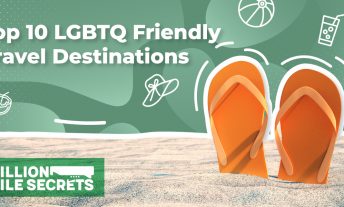
Top 10 LGBTQ friendly travel destinations in the world
May 12, 2021 0
- Search Please fill out this field.
- Manage Your Subscription
- Give a Gift Subscription
- Newsletters
- Sweepstakes
- Travel Tips
These Are the Safest Destinations for LGBTQIA+ Travelers in 2024, According to a Travel Index
The No. 1 spot is a five-way tie between Canada, Malta, New Zealand, Portugal, and Spain.
Matt Kirouac is a travel writer with a passion for national parks. He’s a culinary school graduate and a recent transplant to Oklahoma City after two and a half years of RV living. He covers LGBTQIA+ travel, food, and all things Disney.
:max_bytes(150000):strip_icc():format(webp)/Matt-Kirouac-2000-13dfcb1455be43e4851d0d54a3707303.jpg)
Allard Schager/GETTY IMAGES
For LGBTQIA+ travelers, safety and inclusivity are important factors in vacation plans, and the latest Gay Travel Index once again sheds light on destinations that exceed expectations, fit the bill, or fall short. Since 2012, Spartacus has used a meticulous rubric for grading and ranking countries from the most queer-friendly to the least, providing a reliable metric — for locals and travelers alike — for which countries are improving, and which are getting worse.
The intensive rating system features 18 categories that range from anti-discrimination laws and transgender rights to oppressive religious influence, prosecution, and the death penalty. Zero points are the neutral mark, with points added or deducted based on human rights — or lack thereof. Both positive and negative, points are weighed against the severity of local law or customs. For instance, countries that still punish homosexuality with the death penalty get more deductions than countries that have the death penalty but don’t act on it.
In a five-way tie for first place this year, as the most queer-friendly destinations with 12 points each, are Canada, Malta, New Zealand, Portugal, and Spain, followed closely by Australia, Switzerland, Denmark, Germany, Iceland, Norway, and Uruguay. The U.S. earned a lukewarm ranking of 41, with a total of just four points. On the opposite end, the most hostile countries remain Saudi Arabia, Iran, Chechnya, and Afghanistan, all of which still practice the death penalty for homosexuality.
Notable this year was Norway, rising from 17 to 8, thanks largely to its reversal of conversion therapies . Estonia also leapt up from 15 spots to 32, due to the nation legalizing same-sex marriage . Meanwhile, the United Kingdom tumbled from 9 to 21, losing points for diminished LGBT marketing and hostile locals. The U.S. also lost ground, falling from 35 to 41 due to religious influence and hostile locals. Russia took the biggest plummet, from 177 in 2023 to 205, losing an additional five points for its increased prosecutions of LGBT people.
The index also ranks the 50 states individually, with unique-to-U.S. categories like hate crime laws, gay and trans panic defense, and queer infrastructure, while the censorship category reflects the various “Don’t Say Gay”-style laws across the country. With 14 points, New York earns the No. 1 spot for its LGBT protections, lack of censorship and conversion therapies, and concerted efforts put into LGBT marketing and infrastructure. California, Colorado, Nevada, and Oregon are all tied for second, followed by Washington, Illinois, Massachusetts, New Jersey, and New Mexico. Alabama, Mississippi, Tennessee, and Montana are some of the least queer-friendly states, with Oklahoma in last place for the second year in a row, due to censorship, lack of trans rights, and — as tragically evidenced by the recent murder of non-binary student Nex Benedict — hostile locals.
Related Articles

The 203 Worst (& Safest) Countries for LGBTQ+ Travel in 2023

Instead of relying on hearsay and anecdotes from other travelers, we took a deep look at LGBTQ+ rights, country by country. After 400+ hours of research, we’ve reviewed all countries’ individual laws and gathered data from a variety of trusted international sources to create the definitive “LGBTQ+ Travel Safety Index” that will help you find the safest (and least safe) countries for your next trip abroad.

Our methodology
We ranked 203 countries with available data, and then carefully examined LGBTQ+ rights for each country. We created our LGBTQ+ travel safety index based on a total of ten ranking factors, each pertaining to the health and wellbeing of LGBTQ+ individuals. We worked with academic researcher, Eliot Assoudeh PhD. , to design the methodology and cross-reference all data. We utilized a mixed-methods research design to create the index.
Note on Russia/Ukraine: Russia and Ukraine were included in this study. However, keep in mind that (as in all instances of political unrest), the most marginalized people in society are often targets . Please note that the situation for LGBTQ+ people is constantly evolving in the region.
Positive factors
- Legalized Same-Sex Marriage (0 to +50 Points) — Is same-sex marriage legal and equal under the law in this country? If marriage is not equal, are civil unions legal? If not, does the country legally recognize foreign LGBTQ+ marriages? We ranked the scores for this metric based on how many years same-sex marriage has been legal in this country with the highest possible score being 50 points. Civil unions and other types of partnerships received 25 points or less and were also ranked by the number of years they have been legal. Additionally, if a country only legally recognizes foreign LGBTQ+ marriages then they earned 10 points. Source: Recognition of same-sex relationships – Human Rights Watch , we also cross-referenced with Equaldex: Collaborative LGBTQ Knowledge Base
- LGBTQ+ Worker Protections (0 to +50 Points) — For the people living in that country, are there legal protections against discrimination in the workplace? 50 points were awarded for both sexual orientation and gender protection; 25 points were awarded for sexual orientation protection only. Additionally, if a country only recognizes limited rights for LGBTQ+ worker protections, then they earned 10 points. Source: LGBTQ+ Worker Protections – ILGA
- Legal Protections Against Anti-LGBTQ+ Discrimination (0 to +50 Points) — Are there either constitutional or broad legal protections of LGBTQ+ people in this country? Constitutional protections were awarded 50 points; broad protections were awarded 25 points. Additionally, if a country only recognizes limited protections against discrimination, then they earned 10 points. Source: Anti Discrimination Laws – ILGA
- Criminalization of Hate-Based Violence (0 to +50 Points) — Is anti-LGBTQ+, hate-based, or homophobia-inspired violence considered a hate crime in this country? Is hate-based, anti-LGBTQ+ speech considered hate speech? The existence of hate crime penalties received 50 points; incitement-only punishments received 25 points. Additionally, if a country only has limited criminalization of hate-based violence, then they earned 10 points. Source: Criminalization of Hate-Based Violence – ILGA
- Adoption Recognition (0 to +50 Points) — Is joint adoption and/or second-parent adoption legal in this country for same-sex parents? The recognition of both joint and second-parent adoption received 50 points, while only second-parent adoption recognition received 25 points. Source: Adoption Recognition – ILGA
- Gallup World Poll (0 to +100 points) — In the Gallup poll, individuals were asked, “Is the city or area where you live a good place or not a good place to live for gay and lesbian people?” The percentages represented and used in our metrics include those who said “good place” for that country. We gave this factor a double weighting (maximum 100 points) because it gives a very clear pulse on the general attitude towards LGBTQ+ people by locals in each country. If, for example, a country answered 92% positively to the Gallup question, then they were awarded 92 points. We use the most recently available data available for that country. Source: Gallup World Poll
- Transgender Legal Identity Laws (0 to +50 points) — The degree of legal recognition provided to transgender people varies widely throughout the world. We individually reviewed the laws for each country and asked the following questions. Does the country allow individuals to change their legal gender identity without requiring sex reassignment surgery (SRS) or hormone replacement therapy (HRT)? If so, these countries were awarded 50 points or less depending on the details of the law. Does the country require SRS for people to qualify for legal gender change? If so, these countries received 25 points or less depending on the details of the law. Does the country have no rights for or against people legally changing their gender? If so, these countries received 0 points. Source: We reviewed individual laws of each country and Transgender Rights – Wikipedia
Negative factors
- Illegal LGBTQ+ Relationships and Acts (0 to -100 Points) — Can “sodomy,” “indecent acts,” or “buggery” result in punishments under the law such as physical violence, a fine, or prison time? Any possible death sentences or life-in-prison sentences under the law receive the maximum -100 point penalty. All other punishments were ranked by severity. We gave this factor a negative double weighting because the fact that homosexuality is illegal and can receive the death sentence means that the laws of these countries are extremely unfavorable for LGBTQ+ people. Source: Global Anti-LGBTQ+ Laws – Human Rights Watch
- Propaganda/Morality Laws (0 to -50 Points) — Are there laws sanctioned by the state to prevent the dissemination or publication of information about queer culture? Are there laws affecting the creation of LGBTQ+ advocacy groups and non-governmental organizations (NGOs)? This metric was graded based on the severity of the punishments with -50 points being the worst score. Source: Global Anti-LGBTQ+ Laws – Human Rights Watch
- Transgender Legal Identity Laws (0 to -50 points) — We individually reviewed the laws for each country and asked the following question. Does the country make it illegal for people to change their gender? If so, these countries were given up to negative fifty points depending on the severity of punishment. For example, in Oman, simply imitating the opposite sex gets up to 1 year in prison and this country received the full -50 points. Source: Global Anti-LGBTQ+ Laws – Human Rights Watch
- Transgender murder rates (0 to -100 points) — Countries were awarded zero points if they did not have any recorded transgender murders, but were deducted up to 100 points if transgender murders were reported through the Transgender Murder Monitoring website. Rates are per million citizens and occurred between 2008 and September 2022. Source: Transgender Murder Monitoring – TvT
To measure LGBTQ+ safety abroad, one cannot look only at data on whether or not same-sex marriage is legal and if anti-LGBTQ+ discrimination laws are in place. It also depends on the general attitude of the culture, minutiae of the legal system, and oppression of LGBTQ+ rights. These issues can affect everything, from your ability to show public displays of affection to being able to share a hotel room bed to the capacity at which you can use dating apps without being caught by the local police. A few items on our list, such as adoption recognition and worker protections, may not affect LGBTQ+ travelers directly, but these factors are a good indication of overall attitudes within the culture.
Study Limitations: Due to budget constraints, the methodology used in our index does not sample the actual experiences of LGBTQ tourists who have visited each country. One way we attempted to overcome this weakness was by utilizing the Gallup World Poll as well as looking at each country’s laws and any progress the country’s had in comparison with our previous years’ studies.
What’s changed for LGBTQ+ individuals over the past year?
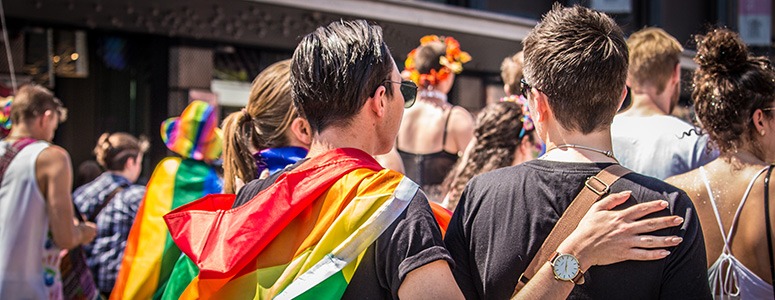
Some of the positive highlights include:
- Cuba legalized same-sex marriage in September 2022.
- While gay marriage is still banned, Japan is making progress toward the acceptance of same-sex marriage, and gay couples can now register a domestic partnership as of November 2022.
- Switzerland legalized same-sex marriage on July 1, 2022.
- Singapore, Antigua and Barbuda, Barbados, Saint Kitts and Nevis decriminalized homosexuality in 2022.
- As of January 31, 2023, same-sex marriage and adoption are fully legal in Slovenia.
- Croatia passed laws expanding the rights of same-sex couples to joint adoption in August 2022.
- In December 2022, the U.S. Virgin Islands increased its discrimination protections for people based on their sexual identity and gender expression.
- New Zealand plans to implement gender self-identification on June 15, 2023.
Unfortunately, not all news was good for LGBTQ+ rights in the past year. Russia passed stricter laws that prohibit LGBTQ+ “ propaganda .” In 2022, Indonesia banned sexual activity outside of marriage to come into effect in three years, but this will target LGBTQ+ people who are not permitted to marry in the country. According to the ACLU , the 2023 legislative session has already seen over 120 bills aimed at restricting the rights of LGBTQ+ people in the United States.
Where are same-sex relationships illegal?

Unfortunately, some countries where it’s illegal to be gay or trans also happen to be popular vacation spots. For instance, it’s illegal to be gay in Jamaica; the “buggery law,” which is leftover from the colonial era, allows for a sentence of up to 10 years in prison, including hard labor. Jamaica was called “ the most homophobic place on Earth ” by Time magazine in 2006. That label has clung to Jamaica ever since, and with good reason. In a 2013 survey of 71 LGBTQ+ people conducted by Human Rights Watch, more than half said they had been victims of homophobic violence. Non-violent discrimination is even more pervasive, with bullying and exclusion faced in education, healthcare, and within local communities. Although there is some light at the end of the tunnel for Jamaica since there are signs that it’s moving toward reform.
Those looking for trans- and gay-travel-safe countries should reconsider popular vacation destinations like Malaysia, Saudi Arabia, Morocco, Myanmar, and Egypt as well as some of the more popular beaches in the Caribbean, like Saint Lucia and Barbados.
Please note: All countries marked with an asterisk* in the below list were former British colonies and their anti-LGBTQ+ laws mostly came into effect under British rule.
(CLICK the country names for more details on their anti-LGBTQ+ laws) Jamaica* LGBTQ+ Travel Safety Index Score: -132
Section 76. Whosoever shall be convicted of the abominable crime of buggery, committed either with’ mankind or with any animal, shall be liable to be imprisoned and kept to hard labour for a term not exceeding ten years.
LGBTQ+ Travel Safety Index Score: -75
Sections 132, 133.
- GROSS INDECENCY
(1) A person who commits an act of gross indecency with another person commits an offence and is liable on conviction on indictment to imprisonment for 10 years or on summary
conviction to 5 years.
(2) Subsection (1) does not apply to an act of gross indecency committed in private between an adult male person and an adult female person, both of whom consent.
(3) For the purposes of subsection (2)
(a) an act shall be deemed not to have been committed in private if it is committed in a public place; and
(b) a person shall be deemed not to consent to the commission of such an act if
(i) the consent is extorted by force, threats or fear of bodily harm or is obtained by false and fraudulent representations as to the nature of the act;
(ii) the consent is induced by the application or administration of any drug, matter or thing with intent to intoxicate or stupefy the person; or
(iii) that person is, and the other party to the act knows or has good reason to believe that the person is suffering from a mental disorder.
(4) In this section “gross indecency” is an act other than sexual intercourse (whether natural or unnatural) by a person involving the use of the genital organs for the purpose of arousing or gratifying sexual desire.
Laws of Saint Lucia Criminal Code Cap.3.01 95 Revision Date: 31 Dec. 2005
(1) A person who commits buggery commits an offence and is liable on conviction on indictment to imprisonment
(a) life, if committed with force and without the consent of the other person;
(b) ten years, in any other case.
(2) Any person who attempts to commit buggery, or commits an assault with intent to commit buggery, commits an offence and is liable to imprisonment for 5 years.
(3) In this section “buggery” means sexual intercourse per anus by a male person with another male person.
Source: Criminal Code, No. 9 of 2004, sections 132, 133.
Article 16. Buggery “(1) A person who commits buggery is guilty of an ofence and liable on conviction to imprisonment for— (a) twenty-fve years, if committed by an adult on a minor; (b) ten years, if committed by an adult on another adult; or (c) fve years, if committed by a minor; and, if the Court thinks it ft, the Court may order that the convicted person be admitted to a psychiatric hospital for treatment. (2) Any person who attempts to commit the ofence of buggery, or is guilty of an assault with the intent to commit the same is guilty of an ofence and liable to imprisonment for four years and, if the Court thinks it ft, the Court may order that the convicted person be admitted to the psychiatric hospital for treatment. (3) In this section “buggery” means sexual intercourse per anum by a male person with a male person or by a male person with a female person.
Source: Sexual Offences Act 1998, article 16. Grenada* LGBTQ+ Travel Safety Index Score: 33
Article 431. If any two persons are guilty of unnatural connexion, or if any person is guilty of unnatural connexion with any animal, every such person shall be liable to imprisonment for ten years.
Source: Criminal Code of 1987, article 431. Saint Vincent and the Grenadines* LGBTQ+ Travel Safety Index Score: -70
Sections 146, 148.
148. Any person, who in public or private, commits an act of gross indecency with another person of the same sex, or procures or attempts to procure another person of the same sex to commit an act of gross indecency with him or her, is guilty of an offence and liable to imprisonment for five years.
146. Any person who commits buggery with any other person; commits buggery with an animal; or permits any person to commit buggery with him or her; is guilty of an offence and liable to imprisonment for ten years.
(Click the country names for more details on their anti-LGBTQ+ laws)
Sections 214, 215, 217. 214. Any person who- (1) has carnal knowledge of any person against the order of nature; or (2) has carnal knowledge of an animal; or (3) permits a male person to have carnal knowledge of him or her against the order of nature; is guilty of a felony, and is liable to imprisonment for fourteen years.
215. Any person who attempts to commit any of the offences defined in the last preceding section is guilty of a felony, and is liable to imprisonment for seven years. The offender cannot be arrested without warrant.
217. Any male person who, whether in public or private, commits any act of gross indecency with another male person, or procures another male person to commit any act of gross indecency with him, or attempts to procure the commission of any such act by any male person with himself or with another male person, whether in public or private, is guilty of a felony, and is liable to imprisonment for three years. The offender cannot be arrested without warrant.
Source: Criminal Code Act (Chapter 77), 1990, sections 214, 215, 217; Same Sex Marriage (Prohibition) Act 2013. Malawi* LGBTQ+ Travel Safety Index Score: -163
Sections 153, 137A. 153. Unnatural offences Any person who— (a) has carnal knowledge of any person against the order of nature; or (b) has carnal knowledge of an animal; or (c) permits a male person to have carnal knowledge of him or her against the order of nature, shall be guilty of a felony and shall be liable to imprisonment for fourteen years, with or without corporal punishment.
Source: Penal Code of 1930 (amended 2010), sections 153, 137A. Oman LGBTQ+ Travel Safety Index Score: -145
Articles 33, 233, 266(d).
266. The penalty shall be imprisonment for a period not less than one month, and not more than one year, and a fine of not less than (100) one hundred Omani riyals, and not more than (300) three hundred Omani riyals, or one of these two penalties for each mention: D – appeared publicly in the appearance of women in his clothing or body.
Source: Omani Penal Code No. 7/1974, articles 33, 223 and Oman Penal Code, Article 266(d) Zambia* LGBTQ+ Travel Safety Index Score: -104
Sections 155, 156. 155. Any person who- (a) has carnal knowledge of any person against the order of nature; or (b) has carnal knowledge of an animal; or (c) permits a male person to have carnal knowledge of him or her against the order of nature; commits a felony and liable, upon conviction, to imprisonment for a term not less than fifteen years and may be liable to imprisonment for life: Provided that where a person- (i) has carnal knowledge of a child against the order of nature; (ii) causes a child to have carnal knowledge of an animal; or (iii) permits a male person to have carnal knowledge of a male or female child against the order of nature; that person commits an offence and is liable, upon conviction, to imprisonment for not less than twenty-five years and may be liable to imprisonment for life. (As amended by No. 26 of 1933 and repealed and replaced by Act No. 15 of 2005) Unnatural offences
156. Any person who attempts to commit any of the offences specified in section one hundred and fifty-five commits a felony and is liable, upon conviction of not less than seven years but not exceeding fourteen years. (As amended by No. 26 of 1933 and repealed and replaced by Act No. 15 of 2005)
Source: Penal Code Act (as amended by Act No. 15 of 2005), sections 155, 156. Tanzania* LGBTQ+ Travel Safety Index Score: -120
Sections 138(a), 154. 138 A. Acts of gross indecency between persons and person who, in public or private commits, or is a party to the commission of, or procures or attempts to procure the commission by any person of, any act of gross indecency with another person, is guilty of an offence and liable on conviction to imprisonment for a term not less than one year and not exceeding five years or to a fine not less than one hundred thousand and not exceeding three hundred thousand shillings; save that where the offence is committed by a person of eighteen years of age or more in respect of any person under eighteen years of age, a pupil of primary school or a student of secondary school the offender shall be liable on conviction to imprisonment for a term not less than ten years, with corporal punishment, and shall also be ordered to pay compensation of an amount determined by the court to the person in respect of whom the offence was committed for any injuries caused to that person.”
154. Unnatural of offences (1)Any person who- (a)has carnal knowledge of any person against the order of nature; or (b)has carnal knowledge of an animal; or (c)permits a male person to have carnal knowledge of him or her against the order of nature.commits an offence, and is liable to imprisonment for life and in any case to imprisonment for a term of not less than thirty years. (2)where the offence under subsection (1) of this section is committed to a child under the age of ten years the offender shall be sentenced to life imprisonment.”
Source: Penal Code of 1945 (as amended by the Sexual Offences Special Provisions Act, 1998), section 138(a), 154. Sudan* LGBTQ+ Travel Safety Index Score: -109
In July 2020, Sudan’s Sovereign Council amended the penal code, removing some crimes from the books and reducing sentences for others, including sodomy. Previously, the death penalty was punishment for individuals accused by committing “homosexual sex” defined by the act of penetration, for the third time. For people found guilty of this offense for the first time, sentences were lashing 100 times or prison up to 5 years. For the second time, the sentence was both punishments combined. Learn more here . Uganda* LGBTQ+ Travel Safety Index Score: -92
Sections 145, 148. 145. Unnatural offences. Any person who— (a) has carnal knowledge of any person against the order of nature; (b) has carnal knowledge of an animal; or (c) permits a male person to have carnal knowledge of him or her against the order of nature, commits an offence and is liable to imprisonment for life.
148. Indecent practices. Any person who, whether in public or in private, commits any act of gross indecency with another person or procures another person to commit any act of gross indecency with him or her or attempts to procure the commission of any such act by any person with himself or herself or with another person, whether in public or in private, commits an offence and is liable to imprisonment for seven years.
Source: Penal Code Act of 1950 (Chapter 120), (as amended), section 145, 148. Egypt* LGBTQ+ Travel Safety Index Score: -96
Article 9(c), Article 1. Article 9: Punishment by imprisonment for a period not less than three months and not exceeding three years and a fine not less than 25 LE and not exceeding 300 LE in the Egyptian administration and not less than 250 Lira and not exceeding 3000 Lira in the Syrian administration or one of these two punishments applies in the following cases: (c) Whoever habitually engages in debauchery or prostitution.
Upon the apprehension of a person in the last category, it is permitted to send him for a medical examination. If it is discovered that he is carrying an infectious venereal disease, it is permitted to detain him in a therapeutic institute until his cure is completed.
It is permitted to determine that the convicted person be placed, upon completion of his sentence, in a special reformatory until the administrative agency orders his release. This judgment is obligatory in cases of recidivism, and the period spent in the reformatory is not allowed to be more than three years. …
Article 1: (a) Whoever incites a person, be they male or female, to engage in debauchery or in prostitution, or assists in this or facilitates it, and similarly whoever employs a person or tempts him or induces him with the intention of engaging in debauchery or prostitution, is to be sentenced to imprisonment for a period not less than one year and not more than three years and a fine between 100 and 300 LE in the Egyptian administration and between 1000 and 3000 Lira in the Syrian administration.
(b) If the person upon whom the crime is perpetrated has not reached the age of twenty-one years, the punishment is imprisonment for a period not less than one year and not more than five years and a fine between 100 and 500 LE in the Egyptian administration and between 1000 and 5000 Lira in the Syrian administration.
Source: Law 10/1961 on the Combating of Prostitution, article 9(c), article 1. Algeria LGBTQ+ Travel Safety Index Score: -75
Art. 338. – All guilty of an act of homosexuality is punished with imprisonment of two (2) months to two (2) years and a fine of five hundred (500) to two thousand (2,000) DA .
If a sponsor is a minor of eighteen years, the penalty in respect of the major can be elevated up to three (3) years’ imprisonment and ten thousand (10,000) DA fine.
Source: 1966 Penal Code, article 338. Morocco LGBTQ+ Travel Safety Index Score: -89
Article 489. Is punished by imprisonment from six months to three years and a fine of 200 to 1,000 dirhams, unless the fact constitutes a more serious offense, whoever commits an immodest or unnatural act with an individual of his sex.
(This has been Google translated from French).
Source: Penal Code of 1962, article 489. Tunisia LGBTQ+ Travel Safety Index Score: -91
Article 230. Sodomy, if it does not enter any of the cases provided for in the preceding articles, is punishable by imprisonment for three years.
Source: Penal Code of 1913 (as modified), article 230. Ethiopia LGBTQ+ Travel Safety Index Score: -93
Articles 629, 630.
Article 629.- Homosexual and other Indecent Acts. Whoever performs with another person of the same sex a homosexual act, or any other indecent act, is punishable with simple imprisonment.
Article 630.- General Aggravation to the Crime. (1) The punishment shall be simple imprisonment for not less than one year, or, in grave cases, rigorous imprisonment not exceeding ten years, where the criminal: a) takes unfair advantage of the material or mental distress of another or of the authority he exercises over another by virtue of his position, office or capacity as guardian, tutor, protector, teacher, master or employer, or by virtue of any other like relationship, to cause such other person to perform or to submit to such an act; or b) makes a profession of such activities within the meaning of the law (Art. 92). (2) The punishment shall be rigorous imprisonment from three years to fifteen years, where: a) the criminal uses violence, intimidation or coercion, trickery or fraud, or takes unfair advantage of the victim’s inability to offer resistance or to defend himself or of his feeble-mindedness or unconsciousness; or b) the criminal subjects his victim to acts of cruelty or sadism, or transmits to him a venereal disease with which he knows himself to be infected; or c) the victim is driven to suicide by distress, shame or despair.
Source: Criminal Code of the Federal Democratic Republic of Ethiopia, Proclamation No. 414/2004, articles 629 and 630. Kenya* LGBTQ+ Travel Safety Index Score: -87
Sections 162, 165.
162. Unnatural offences Any person who— (a) has carnal knowledge of any person against the order of nature; or (b) has carnal knowledge of an animal; or (c) permits a male person to have carnal knowledge of him or her against the order of nature, is guilty of a felony and is liable to imprisonment for fourteen years: Provided that, in the case of an offence under paragraph (a), the offender shall be liable to imprisonment for twenty-one years if— (i) the offence was committed without the consent of the person who was carnally known; or (ii) the offence was committed with that person’s consent but the consent was obtained by force or by means of threats or intimidation of some kind, or by fear of bodily harm, or by means of false representations as to the nature of the act. [Act No. 42 of 1951, s. 6, Act No. 5 of 2003, s. 30.]
165. Indecent practices between males Any male person who, whether in public or private, commits any act of gross indecency with another male person, or procures another male person to commit any act of gross indecency with him, or attempts to procure the commission of any such act by any male person with himself or with another male person, whether in public or private, is guilty of a felony and is liable to imprisonment for five years.
Source: Penal Code of Kenya, Revised Edition 2012 [2010], section 162, 165. Senegal LGBTQ+ Travel Safety Index Score: -67
Article 319 (para. 3). Any indecent assault or attempted without violence on the person of a child of one or the other sex under the age of thirteen, shall be punished by imprisonment for two to five years. Will be punished the maximum penalty, the indecent assault committed everywhere ascendant or any person having authority over the minor victim, even over the age of thirteen.(Law No. 66-16 of February 1, 1966)
Notwithstanding the heavier penalties provided for by the previous paragraphs or Articles 320 and 321 of this Code shall be punished by imprisonment for one to five years and a fine of 100,000 to 1,500,000 francs, anyone who commits an indecent act or act against nature with an individual of his sex. If the act was committed with a minor of 21 years, the maximum penalty will always be.
Source: Penal Code of 1965, article 319 (para. 3). Cameroon* LGBTQ+ Travel Safety Index Score: -54
Article 347 bis. – Homosexuality. Is punished with imprisonment of six months to five years and a fine of 20,000 to 200,000 francs anyone who has sex with someone of their sex. (This has been Google translated from French).
Source: Cameroon Penal Code of 1967, article 347 bis. Zimbabwe* LGBTQ+ Travel Safety Index Score: -52
Section 73. (1) Any male person who, with the consent of another male person, knowingly performs with that other person anal sexual intercourse, or any act involving physical contact other than anal sexual intercourse that would be regarded by a reasonable person to be an indecent act, shall be guilty of sodomy and liable to a fine up to or exceeding level fourteen or imprisonment for a period not exceeding one year or both. (2) Subject to subsection (3), both parties to the performance of an act referred to in subsection (1) may be charged with and convicted of sodomy. (3) For the avoidance of doubt it is declared that the competent charge against a male person who performs anal sexual intercourse with or commits an indecent act upon a young male person— (a) who is below the age of twelve years, shall be aggravated indecent assault or indecent assault, as the case may be; or (b) who is of or above the age of twelve years but below the age of sixteen years and without the consent of such young male person, shall be aggravated indecent assault or indecent assault, as the case may be; or (c) who is of or above the age of twelve years but below the age of sixteen years and with the consent of such young male person, shall be performing an indecent act with a young person.
Source: Criminal Law (Codification and Reform) Act, (Effective 2006), section 73. Ghana* LGBTQ+ Travel Safety Index Score: -49
Section 104. Unnatural Carnal Knowledge. (1) Whoever has unnatural carnal knowledge— (a) of any person of the age of sixteen years or over without his consent shall be guilty of a first degree felony and shall be liable on conviction to imprisonment for a term of not less than five years and not more than twenty-five years; or (b) of any person of sixteen years or over with his consent is guilty of a misdemeanour; or (c) of any animal is guilty of a misdemeanour. (2) Unnatural carnal knowledge is sexual intercourse with a person in an unnatural manner or with an animal.
Source: Criminal Code 1960 (amended 2003), section 104. Eswatini* LGBTQ+ Travel Safety Index Score: -46
Common Law Offense
Same-sex relations are outlawed in Eswatini. Sodomy is criminalized though the sentence is not specified and is regarded as a common law offense.
Source: Common law offense. Togo LGBTQ+ Travel Safety Index Score: -45
Article 88. Will be punished by imprisonment of one to three years and a fine of 100,000 to 500,000 francs anyone who has committed a shameless act or against nature with an individual of his sex. (This has been Google translated from French).
Source: Penal Code of 13 August 1980 (amended 2000), article 88. Namibia LGBTQ+ Travel Safety Index Score: 48
Common Law Offense. Sodomy and “unnatural sexual offences between men,” are illegal in Namibia, though the sentence is not specified and is considered to be a common law offense.
Source: Common Law Offense. Mauritius* LGBTQ+ Travel Safety Index Score: 15
Section 250. Sodomy and Bestiality (1) Any person who is guilty of the crime of sodomy or bestiality shall be liable to penal servitude for a term not exceeding 5 years.
(2) (a) Notwithstanding sections 151 and 152 of the Criminal Procedure Act, where it is averred that the sodomy is committed on a minor or a physically or mentally handicapped person, the person charged shall, on conviction, be liable to imprisonment for a term of not less than 2 years.
(b) Part X of the Criminal Procedure Act and the Probation of Offenders Act shall not apply to a person liable to be sentenced under paragraph (a).
Source: Mauritius Criminal Code of 1838, section 250. Burundi LGBTQ+ Travel Safety Index Score: -45
Subsection 3: Homosexuality
Article 567: Whoever makes sex with the same sex is punished with imprisonment of three months to two years and a fine of fifty thousand to hundred thousand francs or one of these penalties.
Source: Law No. 1/05 of April 22, 2009, on the Revision of the Criminal Code, article 567. Comoros LGBTQ+ Travel Safety Index Score: -56
Article 318: Any indecent assault consummated or attempted on the person of a child of one or the other sex under the age of fifteen will be punished by imprisonment for two to five years. Will be punished with the maximum of the sentence, the indecent assault committed by any ascendant or any person having authority over the minor victim over the age of fifteen. Without prejudice to the more serious penalties provided for in the preceding paragraphs or Articles 320 and 321 of this Code shall be punishable by imprisonment for one to five years and fine of 50,000 to 1,000,000 francs, anyone who has committed a shameless act or against nature with an individual of his sex. If the act was committed with a minor, the maximum of penalty will always be pronounced. (This has been Google translated from French).
Source: Penal Code of the Federal Islamic Republic of Comoros, 1995, article 318. Chad LGBTQ+ Travel Safety Index Score: -58
Article 354: Is punished by imprisonment from three months to two years and a fine of 50,000 to 500,000 FCFA, whoever has sex with the people of his sex. (This has been Google translated from French).
Source: Chad Penal Code 2017 Eritrea LGBTQ+ Travel Safety Index Score: -75
Articles 310, 311. Art. 310. – Homosexual Conduct. (1) A person who performs with a person of the same sex an act corresponding to the sexual act, or any other indecent sexual act, is guilty of homosexual conduct, a Class 7 serious offence, punishable with a definite term of imprisonment of not less than 5 years and not more than 7 years.
Art. 311. – Consent to Sexual Conduct. (3) Consent is no defense to an offence under Article 309 (Incest) or Article 310 (Homosexual Conduct).
Source: Penal Code of 2015, article 310, 311. Gambia* LGBTQ+ Travel Safety Index Score: -139
A “person who has carnal knowledge of any person against the order of nature … or permits any person to have carnal knowledge of him or her against the order of nature” commits a felony known as an unnatural offense and, on conviction, is punishable by a 14-year prison term. (Criminal Code of 1934, § 144, 3 LAWS OF GAMBIA, Cap. 8:01 (rev. ed. 2009).) Acts that constitute “carnal knowledge against the order of nature” include:
(a) carnal knowledge of the person through the anus or the mouth of the person; (b) inserting any object or thing into the vulva or anus of the person for the purpose of simulating sex; and (c) committing any other homosexual act with the person. (Id. § 144.)
Attempt to commit an unnatural offense, which is also a felony, is subject to a seven-year prison term. (Id. § 145.).
The legislation introduces a new offense involving homosexuality known as “aggravated homosexuality,” which is punishable on conviction by life in prison. (Id.) A person commits this offense if he or she engages in a homosexual act and the:
(a) person against whom the offence is committed is below the age of eighteen; (b) offender is a person living with HIV Aids; (c) offender is a parent or guardian of the person against whom the offence is committed; (d) offender is a person in authority over the person against whom the offence is committed; (e) victim of the offence is a person with disability; (f) offender is a serial offender; or (g) offender applies, administers or causes to be administered by any man or woman, any drug, matter or substance with intent to stupefy or overpower him or her, so as to enable any person to have un-lawful carnal connection with any person of the same sex. (Criminal Code (Amendment) Act No. 11 of 2014, § 4, SUPPLEMENT C TO THE GAMBIA GAZETTE No. 15 (Oct. 16, 2014), HUMAN RIGHTS WATCH.)
Source: Gambia Criminal Code (Act No. 25 of 1933), amended 1965; Gambia Criminal Code (Amendment) Act, 2005; Gambia Criminal Code (Amendment) Act, 2014. Guinea LGBTQ+ Travel Safety Index Score: -80
Article 274: Any shameless or unnatural act committed with an individual of his sex or with an animal is punishable by imprisonment from 6 months to 3 years and a fine of 500,000 to 1,000,000 Guinean francs or one of these only two sentences. When the act was committed with a minor under 18, the maximum penalty is always pronounced. When this act has been consummated or attempted with violence, the culprit is sentenced to 5 to 10 years’ imprisonment. (This has been Google translated from French).
Source: Penal Code of the Republic of Guinea, 2016, article 274. Kuwait* LGBTQ+ Travel Safety Index Score: -180
Article 193 and Article 198.
Article 193 If another man becomes a man who has reached the age of twenty-one and that is with his consent, both of them shall be punished by imprisonment for a period not exceeding seven years.
Article 198 Any person who brings a signal or acts of indecent assault in a public place or who is seen or heard by anyone in a public place or resembles the opposite sex in any way shall be punished. Imprisonment for a period not exceeding one year and a fine not exceeding one thousand dinars or one of these two penalties.
(This has been Google translated from Arabic).
Source: Kuwait Penal Code (1960), Law No. 16, article 193. And Kuwait Penal Code, No. 16 of 1960, art. 198. Liberia LGBTQ+ Travel Safety Index Score: -40
Article 14.74 – Voluntary Sodomy. A person who engages in deviate sexual intercourse under circumstance not stated in Section 14.72 or 14.73 has committed a first degree misdemeanor.
Source: Penal Law – Title 26 – Liberian Code of Laws Revised, 1978, article 14.74. Libya* LGBTQ+ Travel Safety Index Score: -150
Articles 407-408.
Article 407 (4) Whoever has intercourse with a person with his consent will be punished with his partner by imprisonment of not more than five years.
Article 408 (4) Whoever commits an indecent act with a person with his consent will be punished with his partner with imprisonment. (ibid., 38)
Source: Libyan Penal Code of 1953, as amended by Law No. 70 (1973), articles 407-408. Mauritania LGBTQ+ Travel Safety Index Score: -96
Articles 306, 308.
ART. 308. Every major Muslim who commits an immodest act or an unnatural act with an individual of his sex shall be punished with death by public stoning. In the case of two women, they will be punished by the penalty provided for in Article 306 (1).
ART. 306. – Anyone who commits public outrage against Islamic modesty and morals or who has violated sacred places or helped to violate them, if this action is not included in crimes carrying Ghissass or Diya, shall be punishable by a correctional sentence of three months to two years’ imprisonment and a fine of 5,000 to 60,000 UM. Every Muslim guilty of the crime of apostasy, either by word or by action in an apparent or obvious manner, will be invited to repent within three days. If he does not repent within this time, he is condemned to death as an apostat, and his property will be confiscated for the benefit of the Treasury. If he repents before the execution of this sentence, the public prosecutor will seize the Supreme Court, for the purpose of his rehabilitation in all his rights, without prejudice to a correctional penalty envisaged with the 1st paragraph of this article. Anyone guilty of the crime of apostasy (Zendagha) will, unless he repents beforehand, be punished with the death penalty. Will be punished with imprisonment from one month to two years, anyone who will be guilty of the crime of indecent assault. Any major Muslim who refuses to pray while recognizing the obligation of the prayer will be asked to fulfill it until the time limit for the completion of the obligatory prayer concerned. If he persists in his refusal until the end of this period, he will be punished with the death penalty. If he does not recognize the obligation of prayer, he will be punished with the penalty for apostasy and his property confiscated for the benefit of the Treasury. He will not benefit from the service consecrated by the Muslim rite.
Source: Penal Code of 1983, articles 306, 308. Sierra Leone* LGBTQ+ Travel Safety Index Score: -63
Section 61. Whosoever shall be convicted of the abominable Crime of Sodomy and Buggery, committed either with Mankind or with any Animal, shall Bestiality. be liable, at the Discretion of the Court, to be kept in Penal Servitude for Life or for any Term not less than Ten Years.
Source: Offences against the Person Act 1861, section 61. Somalia* LGBTQ+ Travel Safety Index Score: -150
Articles 409, 410.
Art. 409. (Homosexuality). – Whoever has carnal intercourse with a person of the same sex shall be punished, where the act does not constitute a more serious crime, with imprisonment [96. P.C.] from three months to three years. Where the act committed is an act of lust different from carnal intercourse, the punishment imposed shall be reduced by one third [119 P.C.].
Art. 410. (Security Measures). – A security measure [161 s. P.C.] may be added to a sentence for the crimes referred to in articles 407, 408, and 409.
Source: Penal Code, Legislative Decree No. 5/1962, articles 409, 410. South Sudan* LGBTQ+ Travel Safety Index Score: -126
Section 248, Section 379.
248. Unnatural Offences. (1) Whoever, has carnal intercourse against the order of nature with any person and whoever allows any person to have such intercourse with him or her commits an offence, and upon conviction, shall be sentenced to imprisonment for a term not exceeding ten years and may also be liable to a fine. (2) If the intercourse referred to in subsection (1), above, is committed without consent, the offender shall be sentenced to imprisonment for a term not exceeding fourteen years and may also be liable to a fine; provided that, a consent given by a person below the age of eighteen years to such intercourse shall not be deemed to be a consent within the meaning of this section. Explanation— Penetration is sufficient to constitute the carnal intercourse necessary to the offence described in this section.
379. Vagabond. (1) The term “vagabond” means— (a) any person who after being convicted as an idle person, commits any of the offences which would render him or her liable to be convicted as such again; (b) any person who is found to be in possession of breaking implements with the intent to commit house trespass; 187 Act 9 Penal Code Act 2008 (c) any suspected person or reputed thief who by night frequents or loiters about any shop, warehouse, dwelling house, dock or wharf with the intent to commit any offence under Chapter XXI of this Act; (d) any person who knowingly lives wholly or in part on the earnings of a prostitute or in any public place solicits or importunes for immoral purposes; and (e) any male person who dresses or is attired in the fashion of a woman in a public place. (2) Whoever is convicted as a vagabond shall be sentenced to imprisonment for a term not exceeding three months or with a fine or with both.
Middle East
LGBTQ+ Travel Safety Index Score: -143
There is no codified penal Law in Saudi Arabia. Sentences are derived from interpretations of Sharia law.
Source: There is no codified penal Law in Saudi Arabia. Sentences are derived from interpretations of Sharia law. Qatar* LGBTQ+ Travel Safety Index Score: -137
Articles 296, 298.
Article (296) One is convicted to no less than a year and no more than three years in prison in case of: 1- Leading a female to commit adultery. 2- Instigating, inducing, seducing a female anyhow to commit adultery or frequenting a brothel in order to commit debauchery whether inside or outside the country. 3- Leading, instigating or seducing a male anyhow for sodomy or dissipation. 4- Inducing or seducing a male or a female anyhow to commit illegal or immoral actions. 5- Bringing, exposing or accepting a male or a female in the purpose of sexual exploitation.
Article (298) Anyone who takes adultery or sodomy as a profession or a living is convicted to no more than ten years in prison. The same penalty is imposed on anyone who exploits a person’s debauchery and dissipation.
Source: Penal Code, Law No. (II) of 2004, articles 296, 298. Sharia law also applies to Muslims. United Arab Emirates (UAE)* LGBTQ+ Travel Safety Index Score: -134
Article 359. Any person who denies the dress of a woman and enters a special place for women shall be punished by imprisonment for a period not exceeding one year and by a fine not exceeding ten thousand dirhams or by one of these penalties. It is forbidden for non-women to enter at that time.
Source: Federal Law No. 7 of 2016, art. 359. Yemen* LGBTQ+ Travel Safety Index Score: -128
Articles 264, 268.
Article (264): Homosexuality is the contact of one man to another through his posterior; both sodomites whether males or females are punished with whipping of one hundred strokes if not married. It is admissible to reprimand it by imprisonment for a period not exceeding one year punishment by stoning to death if married.
Article (268): Lesbianism is intercourse between one female and another. Anyone engaged in this act with another shall be punished with imprisonment for a period not exceeding three years. If the act happens under coercion imprisonment may be expanded to seven years.
Source: Penal Code 1994, articles 264, 268. Iran LGBTQ+ Travel Safety Index Score: -104
Articles 233-41.
Article 233- Livat is defined as penetration of a man’s sex organ (penis), up to the point of circumcision, into another male person’s anus.
Article 234- The hadd punishment for livat shall be the death penalty for the insertive/active party if he has committed livat by using force, coercion, or in cases where he meets the conditions for ihsan; otherwise, he shall be sentenced to one hundred lashes. The hadd punishment for the receptive/passive party, in any case (whether or not he meets the conditions for ihsan) shall be the death penalty.
Note 1- If the insertive/active party is a non-Muslim and the receptive/passive party is a Muslim, the hadd punishment for the insertive/active party shall be the death penalty.
Note 2- Ihsan is defined as a status that a man is married to a permanent and pubescent wife and whilst he has been sane and pubescent has had a vaginal intercourse with the same wife while she was pubescent, and he can have an intercourse with her in the same way [vaginal] whenever he so wishes.
Article 235- Tafkhiz is defined as putting a man’s sex organ (penis) between the thighs or buttocks of another male person.
Note- A penetration [of a penis into another male person’s anus] that does not reach the point of circumcision shall be regarded as tafkhiz.
Article 236- In the case of tafkhiz, the hadd punishment for the active and passive party shall be one hundred lashes and it shall make no difference whether or not the offender meets the conditions of ihsan [mentioned in note 2 of article 234], or whether or not [the offender] has resorted to coercion.
Note- If the active party is a non-Muslim and the passive party is a Muslim, the hadd punishment for the active party shall be the death penalty.
Article 237- Homosexual acts of a male person in cases other than livat and tafkhiz, such as kissing or touching as a result of lust, shall be punishable by thirty-one to seventy-four lashes of ta’zir punishment of the sixth grade.
Note 1- This article shall be equally applicable in the case of a female person.
Note 2- This article shall not be applicable in the cases punishable by a hadd punishment under Shari’a rules.
Article 238- Musaheqeh is defined as where a female person puts her sex organ on the sex organ of another person of the same sex.
Article 239- The hadd punishment for musaheqeh shall be one hundred lashes.
Article 240- Regarding the hadd punishment for musaheqeh, there is no difference between the active or passive parties or between Muslims and non-Muslims, or between a person that meets the conditions for ihsan and a person who does not, and also whether or not [the offender] has resorted to coercion.
Article 241- In the cases of indecent offenses, in the absence of admissible legal evidence and with denial of the accused, any type of investigation and interrogation in order to discover hidden affairs and things concealed from the public eye shall be prohibited. In cases with the possibility of commission of an offense with force, coercion, assault, abduction, or deception, or cases which are considered as commission [of an offense] with resorting to force, this rule shall not be applicable.
Source: Islamic Penal Code of Iran, 2013, articles 233-41. Pakistan* LGBTQ+ Travel Safety Index Score: -89
Section 377 Unnatural offences: Whoever voluntarily has carnal intercourse against the order of nature with any man, woman or animal, shall be punished with imprisonment for life, or with imprisonment of either description for a term which shall not be less than two years nor more than ten years, and shall also be liable to fine.
Explanation: Penetration is sufficient to constitute the carnal intercourse necessary to the offence described in this section.
Source: Pakistan Penal Code (XLV of 1860), section 377 Lebanon LGBTQ+ Travel Safety Index Score: -70
Article 534.
Penal Code 1943, Article 534 Sexual Intercourse Against Nature Article 534 prohibits “sexual intercourse against nature” with a penalty of up to one year imprisonment. This provision has been applied to intercourse between men and between women.
Penal Code 1943, Article 521 Disguising as a Woman Article 521 criminalises gender expression by making it an offence for a man to “disguise himself as a woman”. The penalty for this offence is up to six years imprisonment.
Source: Criminal Code of 1943, article 534. Uzbekistan LGBTQ+ Travel Safety Index Score: -70
Article 120 Besoqolbozlik* (Homosexual Intercourse): Besoqolbozlik, that is, voluntary sexual intercourse of two male individuals – shall be punished with imprisonment up to three years.
The following country does not have sufficient data on the LGBTQ+ community, so it has not been included in our LGBTQ+ Danger Index graphic above. However, same-sex relationships are illegal:
Article 520 Three years imprisonment shall be punished by nature violates the mjamah. (This has been Google translated from Arabic).
The following country lacks adequate information on LGBTQ+ issues, so they have not been included in our LGBTQ+ Danger Index graphic above. However, same-sex relationships are illegal:
Section 152(2).
152.— (2) Any person who:— ( a ) has carnal knowledge of any person against the order of nature; or (6) has carnal knowledge of an animal; or (c) permits a male person to have carnal knowledge of him or her against the order of nature, is guilty of a felony, and is liable to imprisonment for ten years.
Asia/Pacific
Sections 377A, 377B, 377D.
Carnal intercourse against the order of nature 377A. Any person who has sexual connection with another person by the introduction of the penis into the anus or mouth of the other person is said to commit carnal intercourse against the order of nature. Explanation—Penetration is sufficient to constitute the sexual connection necessary to the offence described in this section.
Punishment for committing carnal intercourse against the order of nature 377B. Whoever voluntarily commits carnal intercourse against the order of nature shall be punished with imprisonment for a term which may extend to twenty years, and shall also be punished with whipping.
Outrages on decency 377D. Any person who, in public or private, commits, or abets the commission of, or procures or attempts to procure the commission by any person of, any act of gross indecency with another person, shall be punished with imprisonment for a term which may extend to two years.
Source: Malaysia Penal Code, 2006, section 377A, 377B, 377D. State Sharia (Islamic) laws also apply. Myanmar* LGBTQ+ Travel Safety Index Score: -118
Sections 377. Whoever voluntarily has carnal intercourse against the order of nature with any man, woman or animal shall be punished with transportation for life, or with imprisonment of either description for a term which may extend to ten years, and shall also be liable to fine.
Source: Penal Code of 1860, section 377. Maldives* LGBTQ+ Travel Safety Index Score: -100
Sections 410, 411, 412.
Section 410 – Unlawful Marriage (a) Unlawful Marriage. A person commits an offense if: (8) two persons of the same sex enter into a marriage;
Section 411 – Unlawful Sexual Intercourse (a) Unlawful Intercourse. A person commits an offense if: (1) he engages in sexual intercourse (2) he engages in sexual intercourse with a person of the same sex. (b) Grading. [(d) Additional Punishment Authorized. In addition to the punishment authorized under Chapter 90, to impose the penalty imposed under Islamic Sharia, an additional punishment of 100 lashes is authorized for the offense.]* (f) Definitions. (2) “Same- sex intercourse means”; (A) Insertion by a man his sexual organ or any object into the anus of another man for sexual gratification. Or the insertion into another mans mouth the penis of a man or (B) Insertion of a woman’s organ or any object into the vagina or anus of another woman for sexual gratification. (3) “Lashes” means the symbolic punishment of striking an offender’s back with a short length of rope in a manner not designed to cause bodily injury. A single person must inflict all of the lashes prescribed as punishment, and he may only drive the rope using his wrists; he may not use any other part of his arm or movement in his shoulders, hips, back, legs or torso for that purpose.]9
Section 412 – Unlawful Sexual Contact (a) Unlawful Intercourse. A person commits an offense if: (b) Offense Defined. A person engaging in sexual contact with a person of the same is committing an offense. (c) Prohibition. “prohibited sexual contact” means indecent acts other than the offenses prescribed under Section 411 (a) of this Code, with a person of same sex, or with a person of the opposite sex other than with a person to whom he is married, or with an animal, for obtaining sexual gratification.
Source: Maldives Penal Code, Section 410, 411, 412. Sri Lanka* LGBTQ+ Travel Safety Index Score: -91
Sections 365, 365A.
Article 365. Unnatural ofences [AGAINST THE ORDER OF NATURE] “Whoever voluntarily has carnal intercourse against the order of nature with any man, woman or animal, shall be punished with imprisonment of either description for a term which may extend to ten years […] Explanation – penetration is sufcient to constitute the carnal intercourse necessary to the ofence described in this section.”
Article 365A. Acts of gross indecency between persons [GROSS INDECENCY] “Any person who, in public or private, commits, or is a party to the commission of, or procures or attempts to procure the commission by any person of any act of gross indecency with another person, shall be guilty of an ofence and shall be punished with imprisonment of either description for a term which may extend to two years or with a fne, or with both and where the ofence is committed by a person over eighteen (18) years of age in respect of any person under sixteen (16) years of age shall be punished with rigorous imprisonment for a term not less than 10 years and not exceeding 20 years and with a fne and shall also be ordered to pay compensation of amount determined by court to the person in respect of whom the ofence was committed for the injuries caused to such a person.”
Source: Penal Code (as amended by the Penal Code (Amendment) Act, No. 22 of 1995), articles 365, 365A. Bangladesh* LGBTQ+ Travel Safety Index Score: -9
Section 377: Unnatural offenses. Whoever voluntarily has carnal intercourse against the order of nature with any man, woman or animal, shall be punished with imprisonment for life, or with imprisonment of either description for a term which may extend to ten years, and shall also be liable to fine.
Explanation: Penetration is sufficient to constitute the carnal intercourse necessary to the offense described in this section.
Source: Penal Code 1860, section 377. Bhutan LGBTQ+ Travel Safety Index Score: 16
Section 213, 214
Unnatural sex 213. A defendant shall be guilty of the offence of unnatural sex, if the defendant engages in sodomy or any other sexual conduct that is against the order of nature.
Grading of unnatural sex 214. The offence of unnatural sex shall be a petty misdemeanour.
Source: Penal Code of Bhutan, 2004, Chapter 14: Sexual Offences, Section 213. Brunei* LGBTQ+ Travel Safety Index Score: -200
Article 377
Unnatural offences. 377. Whoever voluntarily has carnal intercourse against the order of nature with any man, woman, or animal, shall be punished with imprisonment for a term which may extend to 10 years, and shall also be liable to fine. [S 12/97] Explanation — Penetration is sufficient to constitute the carnal intercourse necessary to the offence described in this section.
Sections 153, 155.
153. Any person who- (a) commits buggery with another person or with an animal; or (b) permits a male person to commit buggery with him or her, shall be guilty of a felony, and shall be liable to imprisonment for 14 years.
Indecent practices between males: 155. Any male person who, whether in public or private, commits any act of gross indecency with another male person, or procures another male person to commit any act of gross indecency with him, or attempts to procure the commission of any such act by any male person with himself or with another male person, whether in public or private, shall be guilty of a felony, and shall be liable to imprisonment for 5 years.
Source: Kiribati Penal Code, Revised Edition 1977, section 153, 155. Papua New Guinea* LGBTQ+ Travel Safety Index Score: -80
Sections 210, 212.
210. 1. UNNATURAL OFFENCES. (1)A person who– (a) sexually penetrates any person against the order of nature; or (b) sexually penetrates an animal; or (c) permits a male person to sexually penetrates him or her against the order of nature, is guilty of a crime. Penalty: Imprisonment for a term not exceeding 14 years. (2) A person who attempts to commit an offence against Subsection (1) is guilty of a crime. Penalty: imprisonment for a term not exceeding seven years.
212. INDECENT PRACTICES BETWEEN MALES. (1) A male person who, whether in public or private– (a) commits an act of gross indecency with another male person; or (b) procures another male person to commit an act of gross indecency with him; or (c) attempts to procure the commission of any such act by a male person with himself or with another male person, is guilty of a misdemeanour. Penalty: Imprisonment for a term not exceeding three years.
Source: Criminal Code Act 1974, section 210, 212. Samoa* LGBTQ+ Travel Safety Index Score: 48
Section 67: Sodomy. (1) A person who commits sodomy is liable: (a) where the act of sodomy is committed on a female, to imprisonment for a term not exceeding 7 years; or (b) where the act of sodomy is committed on a male, and at the time of the act that male is under the age of 16 years and the offender is of or over the age of 21 years, to imprisonment for a term not exceeding 7 years; or (c) in any other case, to imprisonment for a term not exceeding 5 years. (2) Sodomy is complete upon penetration. (3) It is no defence to a charge under this section that the other party consented
Source: Crimes Act 2013, No. 10, section 67. Solomon Islands* LGBTQ+ Travel Safety Index Score: -85
Sections 160, 162.
160. Any person who- (a) commits buggery with another person or with an animal; or (b) permits a male person to commit buggery with him or her, shall be guilty of a felony, and shall be liable to imprisonment for fourteen years.
162. Any person who, whether in public or private – (a) commits any act of gross indecency with another of the same sex; (b) procures another of the same sex to commit any act of gross indecency; or (c) attempts to procure the commission of any act of gross indecency by persons of the same sex, shall be guilty of a felony and be liable to imprisonment for five years.
Source: Penal Code (Revised Edition 1996), sections 160-162. Tonga* LGBTQ+ Travel Safety Index Score: -155
Sections 136, 139, 142.
136 Sodomy and bestiality. Whoever shall be convicted of the crime of sodomy with another person or bestiality with any animal shall be liable at the discretion of the Court to be imprisoned for any period not exceeding ten years and such animal shall be killed by a public officer. (Substituted by Act 9 of 1987.)
139 Attempted sodomy, indecent assault upon a male. Whoever shall attempt to commit the said abominable crime of sodomy or shall be guilty of an assault with intent to commit the same or of any indecent assault upon any male person shall be liable at the direction of the Court to imprisonment for any term not exceeding 10 years.
142 Whipping for certain offences. Whenever any male person shall be convicted of any offence against sections 106, 107, 115, 118, 121, 122, 125, 132, 136 and 139 of this Act the Court may, in its discretion in lieu of or in addition to any sentence of imprisonment authorised under this Act order the person so convicted to be whipped in accordance with the provisions of section 31 of this Act. (Substituted by Act 9 of 1987.)
LGBTQ+ Travel Safety Index Score: -65
Article 135
(1) Sodomy, that is, sexual intercourse between a man and a man, shall be punishable by imprisonment for up to two years, with or without the obligation to reside in a certain locality for a period of two to five years.
Source: Criminal Code of Turkmenistan
Sections 153, 154, 155
153 Unnatural offences Any person who — (a) commits buggery with another person or with an animal; or (b) permits a male person to commit buggery with him or her, shall be guilty of a felony, and shall be liable to imprisonment for14 years.
154 Attempts to commit unnatural offences and indecent assault Any person who attempts to commit any of the offences specified in the last preceeding section, or who is guilty of any assault with intent to commit the same, or any indecent assault upon any male person shall be guilty of a felony, and shall be liable to imprisonment for 7 years.
155 Indecent practices between males Any male person who, whether in public or private, commits any act of gross indecency with another male person, or procures another male person to commit any act of gross indecency with him, or attempts to procure the commission of any such act by any male person with himself or with another male person, whether in public or private, shall be guilty of a felony, and shall be liable to imprisonment for 5 years.
Source: Tuvalu Penal Code
Sections 154, 155.
154. Indecency between males – (1) Every one is liable to imprisonment for a term not exceeding five years who, bring a male,- (a) Indecently assaults any other male; or (b) Does any indecent act with or upon any other male; or (c) Induces or permits any other male to do any indecent act with or upon him. (2) No boy under the age of fifteen years shall be charged with committing or being a party to an offence against paragraph (b) or paragraph (c) of subsection (1) of this section, unless the other male was under the age of twenty-one years. (3) It is not defence to a charge under this section that the other party consented.
155. Sodomy – (1) Every one who commits sodomy is liable- (a) Where the act of sodomy is committed on a female, to imprisonment for a term not exceeding fourteen years; (b) Where the act of sodomy is committed on a male, and at the time of the act that male is under the age of fifteen years and the offender is of over the age of twenty-one years, to imprisonment for a term not exceeding fourteen years; (c) In any other case, to imprisonment for a term not exceeding seven years. (2) This offence is complete upon penetration. (3) Where sodomy is committed on any person under the age of fifteen years he shall not be charged with being a party to that offence, but he may be charged with being a party to an offence against section 154 of this Act in say case to which that section is applicable. (4) It is no defence to a charge under this section that the other party consented.
South America
(Click the country name for more details on their anti-LGBTQ+ laws)
Articles 352, 354.
352. Any male person who, in public or private, commits, or is a party to the commission, or procures or attempts to procure the commission, by any male person, of any act of gross indecency with any other male person shall be guilty of a misdemeanour and liable to imprisonment for two years.
354. Everyone who commits buggery, either with a human being or with any other living creature, shall be guilty of felony and liable to imprisonment for life.
The homophobic legacy of the British Empire
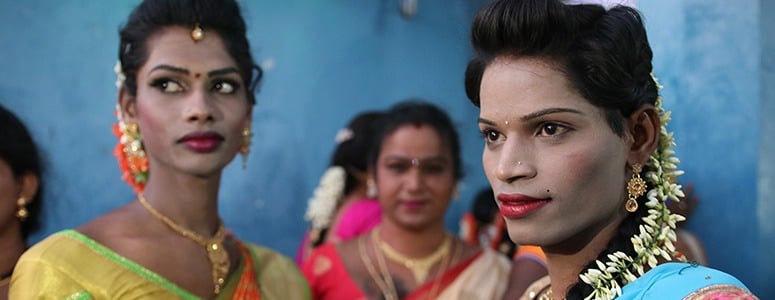
As noted, an asterisk next to the country names in the above list means that it was a former British colony. A whopping 44 of the 66 countries that have illegal same-sex relationships were once part of the British Empire. That is over 66%! This isn’t a coincidence. In almost all cases, the laws outlawing consensual gay sex were put into place under British rule and were left in place following independence.
India is an example country that has only in 2018 managed to annul Section 377, a British colonial-era law prohibiting “unnatural acts,” in order to legalize consensual gay sex. Ancient Indian literature such as the Mahabharata and Ramayana have many references to LGBTQ+ heroes including transgender warriors and two queens who made love in order for one queen to get pregnant with an heir for their kingdom. Long story short, this points to the fact that it was likely the British influence that largely led to Indian homophobia in the first place.
With this being said, all these countries have the choice and ability to update their laws. And in most cases, these former British colonies have been fully independent for half a century or more and have chosen not to change these antiquated laws. Long story short, the British influence may have brought the “sodomy” laws in the first place but the local attitudes and customs have decided to keep them .
Which are the top 50 LGBTQ+ safe countries for travelers?
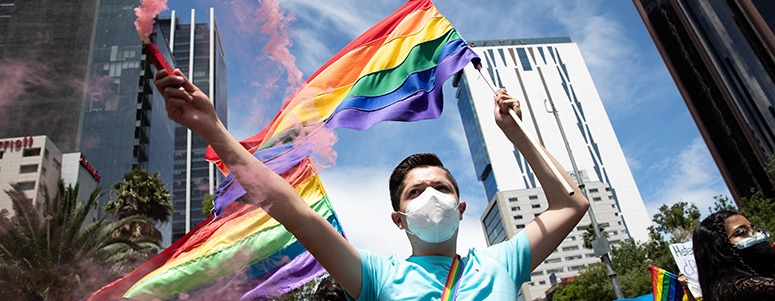
- Netherlands
- United Kingdom
- Switzerland
- South Africa
- New Zealand
- United States
- Virgin Islands
- Puerto Rico
- Czech Republic
One country might surprise you for not ranking higher on our list: the United States. One reason for that is, of course, that there is a great deal of variation in gay rights depending on the state you’re in . There are also no constitutional or broad protections for LGBTQ+ rights under federal law in the U.S. Also, in some states, LGBTQ+ youth do not have access to helpful information, with these so-called “no-promo homo” laws counting in the “propaganda/morality” category. The U.S. might have come far, but it has a long way to go in terms of LGBTQ+ rights, especially for young transgender people .
How many countries have legalized gay marriage?
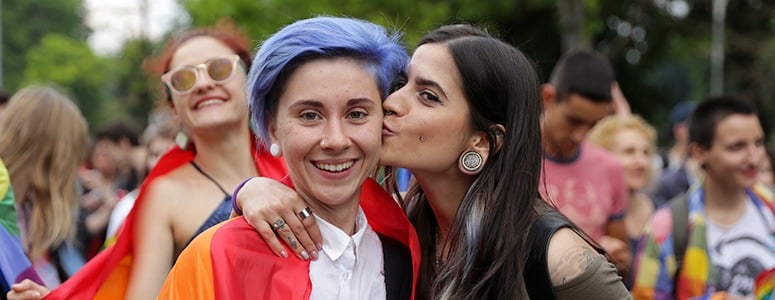
As of now, 30 countries (plus Guam, Virgin Islands, and Puerto Rico) have marriage equality, with Switzerland joining in July 2022. 15 countries recognize civil unions or partnerships. 9 countries do not allow marriage equality for their citizens but formally recognize foreign marriages.
Countries with marriage equality laws are often great spots for LGBT+ vacations, but be aware that gay travel to rural or fundamentalist communities can be problematic in almost any country — definitely don’t make assumptions when visiting smaller towns and communities.
Global transgender murder rates
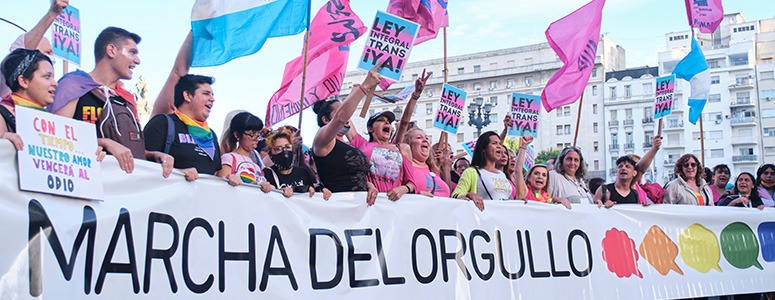
TvT (Transrespect versus Transphobia) Worldwide tracks the instances of transgender people who have been murdered around the world. As of this publishing, over 4,000 trans murders have been tracked during the past 13 years with 1,645 of those crimes taking place in Brazil alone.
Countries with the highest rates of transgender murders (per million residents):
- Honduras – 11.80
- El Salvador – 9.30
- Brazil – 8.25
- Puerto Rico – 5.64
- Belize – 5.12
- Guyana – 5.11
- Mexico – 5.09
- Colombia – 4.63
- Venezuela – 4.59
- Dominican Republic – 4.38
- Uruguay – 4.04
- Guatemala – 3.92
- Ecuador – 3.28
- Argentina – 2.52
- Fiji – 2.25
Why are 14 of these 15 countries with the highest trans murder rates located in Central and South America?
The majority of reported trans murders are currently happening within Central and South America. But why is transgender murder such a frequent occurrence in Latin America? One article from Equal Times posits that a heavily patriarchal society combined with high transgender rates of sex work may be contributing factors. As many transgender individuals are shunned by their families, they turn to sex work to survive, which carries an additional risk to their safety. It is estimated that an extremely high number of transgender individuals are living in poverty , and only an estimated 25% of trans women will complete secondary school in Latin America.
The ostracization of individuals from their families and communities is considered another major factor in the high rates of violence and murder against LGBTQ+ people within Latin America. Additionally, police are often not a source of safety, and governmental protections are not in place to support those most vulnerable.
Learn more about the plight of trans people in Latin America:
- Fighting transfemicide in the Americas
- Brazil continues to be the country with the largest number of trans people killed
- Transgender immigrants who fled Latin America still face uncertainty in the US
- Three lives, one message: Stop killing Mexico’s transgender women
What other countries might be a problem for LGBTQ+ international travelers?
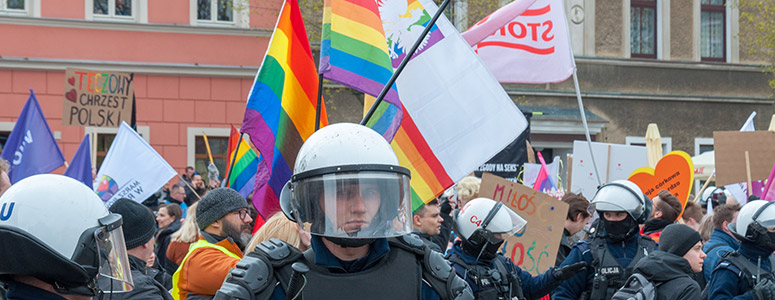
114 of the 203 countries offer at least some form of legal protection for LGBTQ+ people, but 82 of the 202 countries penalize either sexual acts, being trans, or the dissemination of information about LGBTQ+ rights. Many countries have confusing or inconsistent legislation, allowing for protections among some of the LGBTQ+ community while penalizing or harming others. This creates a grey area where it’s not quite safe to be out but not immediately threatening.
One of those countries is Japan . While LGBTQ+ representation in Japanese media has mostly been positive, and the Japanese public has consistently polled in favor of same-sex marriage, there’s a long way to go as far as legislation outside of the major cities.
But the conversation about danger is a little bit different than the question of which countries do not allow gay marriage. Japan is rarely dangerous, with 35% of locals saying Japan is a “good place” for gay people to live, while Russia frequently polls at only 9%. Countries like Armenia (at 4%), Kyrgyzstan (7%), and Mongolia (17%) all may be bad places to go as well, despite not having any formal anti-LGBTQ+ legislation that could harm travelers.
Beyond gay-marriage-illegal countries, here are some real problem places among the list of most-visited countries in the world:
- China — China’s relationship to LGBTQ+ culture is dubious to say the least. Homosexuality is no longer considered a mental disorder as of 2001, and the consensus is that homosexuality is legal and that most locals won’t care so long as you find the right bar to hang out in. At the same time, groups and events have frequently been banned, and censorship laws have frequently been used to ban LGBTQ+ content online in China. LGBTQ+ travel is possible, but only with caution and thorough research into the specific cities you’ll be visiting.
- Russia — Russia has gained increasing international infamy for the way the government treats its LGBTQ+ citizens. Activists have died or gone missing, and individuals who followed Russian gay marriage laws to the letter have been forced to flee the country . That’s ignoring the purges and torture happening in Chechnya . Rights have regressed in recent years, and travel isn’t advised, despite homosexuality being legal on paper.
- Indonesia — LGBTQ+ rights are increasingly considered to be a “moral threat” in Indonesia, with a law against pornography being used for any non-pornographic, pro-LGBTQ+ content. Meanwhile, the HIV/AIDS epidemic has only gotten worse as a result of this persecution. While it’s not illegal in the country, homosexuality could result in public humiliation and arrests nevertheless . This has become more perilous with the 2022 legislation passed that will outlaw all sex outside of marriage.
Iraq , Mozambique , and Bahrain are also examples of countries where same-sex relations are not illegal in the traditional sense but expression of LGBTQ+ sexuality has been suppressed and may still be considered “indecency” with legal consequences, depending on the circumstance.
If the country you want to visit is in one of those grey areas, consider reading more about it, talking to fellow travelers, or doing a bit more research before booking a flight.
If you don’t know whether or not the country you’re visiting will be safe, check the U.S. State Department’s write-ups for LGBTQ+ travelers . The Human Rights Watch’s country profiles are a good place to find information, too.
37 safety tips shared by four LGBTQ+ travel experts

As one can plainly see, LGBTQ+ travel safety varies a great deal, from relative comfort to the real possibility of danger. We looked at the specific legal status of rights abroad as well as polling information to create our LGBTQ+ travel index, but the on-the-street experience can be much more nuanced. Because anti-LGBTQ+ crime and harassment is rarely reported, especially not on an international scale, it’s hard to find data to inform travelers of what walking the streets might be like. Beyond our list, ask other queer people and allies there before you go. Make an online friend, do your research, and take your time.
Want to get tips from our four LGBTQ+ travel experts?
Keep reading!
8 tips from a trans travel expert
Aaron Edwards, an FTM trans travel blogger, shares the following helpful tips on staying safe while traveling.
1. Remember to bring all your documents

2. Research your destination thoroughly
Read up on local laws regarding LGBTQ+ people. Some places are much more restrictive than others and it is better to know your rights and not need them than to be stuck in a jail cell somewhere.
3. Knowing your next bathroom stop is must
Always know where your next bathroom stop will be or have a backup bathroom plan in case you are not comfortable with the situation.
4. Some destinations are best to avoid and travel insurance is worth it
Do your research and know which locations are best to avoid. I also recommend getting a good travel insurance plan no matter what your destination is because you never know when you might need it.

5. Have a letter from your doctor handy at the airport
If you are on HRT (hormone replacement therapy), always try to bring a doctor’s note to keep with your medication in your bag in case you have issues with airport security.
6. You will probably be questioned
Brace yourself to be questioned. A lot of cultures are known for their bluntness. Even people who pass extremely well can get stopped and asked questions based on documents, appearance, etc.
7. If possible, travel with a friend or a group
When in doubt, be with people. There is safety in numbers, especially if they are your friends and people who will stand up for you if it is needed. This applies whether you’re on a camping trip , staying at Airbnbs or at regular hotels.
8. Network via LGBTQ+ Facebook groups
Join transgender or LGBTQ+ related Facebook groups. It is an easy way to find other trans people who LIVE where you are traveling. They can give you their personal experiences, ideas of places to go, or even offer to hang out with you and give you a local tour.
12 travel safety tips from a gay couple
Derek and Mike are an American couple living in Europe and are the authors of Robe Trotting . They have written the following useful tips.
1. Check out Misterbnb

2. Bring copies of your important documents
All travelers should carry backup copies of their passport and other personal information, but there are some extra considerations that LGBTQ+ travelers should consider. It isn’t fun to think about, but Healthcare Power of Attorney and Hospital Visitation Authorization documents are essential. This is because domestic partnership and same-sex marriage laws differ widely around the world. We carry these documents on a flash drive and our attorney has prepared laminated wallet-sized Hospital Visitation Authorizations. This is something we hope to never use, but we feel better having when we travel. A neck wallet can be a great way to carry your most important documents including your passport etc.
3. Know your rights
Transgender and gender non-conforming travelers face higher levels of marginalization than other “LGB” travelers. For trans and gender non-conforming travelers, it’s important to know your rights, especially in airports. There are legal protections in the EU, UK, and USA to protect trans and gender non-conforming air travelers. Do some additional research when traveling outside of America, the UK, and Europe. In this travel zone, here are a few tips and expectations.
4. Select the gender that appears on your Government ID
When booking tickets, indicate the gender that appears on your government-issued identification. Sometimes this is different than the gender you present, but the legal requirement is only for the names on your ID and travel documents to match. You should never be questioned or forced to further prove your gender based on your gender presentation.
5. Pat-downs are based on the gender you present, not your ID
If a security pat-down is required, it must be completed by security personnel of the same sex as the passenger. In a pat-down situation, it will be based on the gender that the passenger presents and not their government-issued ID.
6. Body scanners don’t actually show your body
For trans and non-binary travelers worried about body scanners, the countries mentioned do not display the actual scan of your body to security personnel. In fact, all passenger images are displayed as generic body forms on the screens visible to staff. The screen does identify areas that should be screened more closely, but it uses a generic body form. For example, there would be a highlighted box around the midsection of the form if a traveler forgets to remove their belt. It does not show any details of the body or anatomy.
7. Wearing a prosthetic device or binder can lead to further questioning
Trans and non-binary travelers should be prepared for additional questioning if wearing prosthetic devices or binders. These travelers are not required to show, remove or lift clothing to reveal these devices. Simply answer any questions in a straight-forward manner and speak to a supervisor if any of those described situations should arise.
8. Consider LGBTQ+ tours
We all find safety in numbers, so consider LGBTQ+ tours that will specialize in gay travel. Similarly, consider booking a traditional tour company where you will have a local guide who is familiar with customs, speaks the language, and can advise you on how to stay safe while exploring the world. Many tour companies display their credentials in serving the LGBTQ+ community on their websites. You can also contact their customer service staff with additional concerns or specific questions on travel to certain destinations.
9. Know the local laws in the country you plan to visit
Do some research on the laws that exist in each country you plan to visit. Specifically, look up how often they’re enforced and when the laws were written. For example in Africa, many laws are left-over colonial-era codes that were put in place by other powers and are not enforced or are selectively enforced. For example, Morocco only sporadically enforces its anti-LGBTQ+ law and does not enforce it in resort towns like Marrakech . It’s mostly a law that still exists because of Islamic morality. Morocco even has an LGBTQ+ rights group and is largely viewed as tolerant. Some nations, like Uganda, are actively creating and expanding laws that target the LGBTQ+ community with penalties of death. Make a distinction between countries like Morocco and Uganda when considering your travels.
10. Remember to enjoy the local historic sites and cuisines
Focus on what you can do, and not what you can’t. Many countries will have a less visible LGBTQ+ community and social scene. Sometimes, this can be a blessing in disguise because it frees up your trip for other meaningful activities. Travel should be more than gay bars and nightclubs. Focus on what you can do like touring historic sites, visiting museums and trying new cuisines. It can be tough for a couple to resist public displays of affection, but no laws will be able to keep you from building travel memories, and you can make it up with extra private displays of affection.
11. Be careful with the location feature of dating apps
On gay apps like Grindr and Scruff, turn off the location feature. Even in countries where your rights are protected, gay-bashing can be an issue. In the Ukraine, for example, the “how far away” location feature is disabled nation-wide because of past incidents. Still, there is a thriving gay culture and plenty of gay locals. Always exercise caution and meet strangers in public spaces.
12. Always be culturally aware
Be culturally aware when you’re traveling anywhere. In many nations, public displays of affection from any couple, same or differing sex, are a taboo. Comply with these customs without feeling singled out. It may still be upsetting, but know that different-sex couples are also conforming their behavior to local norms. Similarly, some conservative destinations will have different norms on appearance and dress. It can be triggering to change your appearance, clothing, mannerisms, and behavior if you are LGBTQ+. Previous life experiences like bullying can bring up tough emotions but know that it’s most often local customs and not bigotry that require cultural conformity. I realize that for some individuals that will be easier than for others. My advice comes from a point of privilege as a masculine cis-gendered male, but I truly feel that certain sacrifices are worth it to travel.
9 safety tips from a traveling lesbian couple
Meg Ten Eyck is the creator of EveryQueer.com which is a website dedicated to inspiring and equipping LGBTQ+ travelers to live a life of adventures. She shared the following tips.
1. Cisgender people will most likely have fewer issues

2. Respect local customs
Be aware of local gender expectations. Are women supposed to be covered, wear headscarves or avoid certain activities? Try to respect local customs and blend in as much as possible.
3. Have someone you trust know your itinerary
Be sure to leave your itinerary and contact information with someone you trust. It’s always a good idea to have someone back home who has an idea of what you’re up to and where you plan on heading. It doesn’t have to be a minute-to-minute breakdown, contact information of hotels and flight numbers will work just fine.
4. Find LGBTQ+ friendly businesses before you leave
Consider using the International Gay and Lesbian Travel Association as a resource for finding LGBTQ+ owned and affirming businesses in countries where you may have more concerns. Knowing that a business is owned by LGBTQ+ people or specifically seeks out LGBTQ+ accreditation may offer some peace of mind.
5. Be careful with PDA’s in certain countries
Be mindful of public displays of affection, in some locations like Russia or Morocco, mundane actions like holding hands, requesting a double bed at a hotel, casual touching, and kissing can be considered public displays. In some countries these actions are illegal and the consequences can be anything from a fine to imprisonment to being punishable by death. Not to be overly sensationalist here, there are lots of people who have traveled in anti-LGBTQ+ countries and have been just fine. There are also people who have not. It’s a case-by-case situation.
6. Be sure that sex toys are legal
In some countries, traveling with sexually explicit material can be used as evidence of sex work which may result in you being detained while traveling. Transgender and gender-nonconforming people are often unfairly targeted, be aware that in recent years there have been a few instances where people have used sex toys to victimize LGBTQ+ travelers. One couple was the victim of an alleged hate crime by TSA agents and another couple was arrested in Malaysia for being in possession of a sex toy. Keep in mind that traveling with these items into some countries is illegal. Be very cautious and do your homework before crossing borders with anything you think could be questionable.
7. Consider who you disclose your identity to
Consider who you disclose your identity to while you are traveling in countries that are not as LGBTQ-affirming as your home country.
8. Walk with confidence
Appear confident while walking in public areas. The more afraid and buckled over you look, the more of a target you’ll appear to be.
9. Invest in your personal safety
When in doubt invest in personal safety, if taking the more expensive cab ride over the bus ride seems like the safer option for you, do it.
8 tips from a gay travel expert
Andrew Dobson runs Dobbernationloves , an LGBTQ+ travel blog based in Toronto and shares these very helpful tips on international travel safety.
1. Take precautions with dating apps
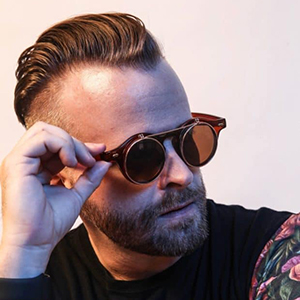
2. Use the geo search to research your destination prior to leaving home
Use the geo-search feature on dating apps like Scruff and Grindr before you depart for your trip. You can ask locals about what the most popular gay bars and businesses are before you even arrive. Many destinations have suffered from gay bar closures so weekly or monthly LGBTQ+ parties are the norm and locals are always in the know.
3. Connect with the locals before you arrive
Use gay dating apps to connect with locals before you arrive and you’ll find friendly folks keen to show a tourist around. This is particularly helpful if you’re visiting a country like Germany where bartenders may not speak English.
4. Keep spots you discover confidential in sensitive destinations
If you’re visiting places like Egypt or Jordan where the LGBTQ+ community is largely underground for safety reasons, be sure to keep the spots you discover confidential to protect the local LGBTQ+ community. Posting about a popular gay coffee shop hangout in Cairo on TripAdvisor, for example, is a no-no.
5. Negative LGBTQ+ laws may not reflect tourist areas
Remember that just because a country’s government may have negative LGBTQ+ policies, doesn’t mean it isn’t a great gay holiday destination. The Maldives, for example, has laws in place for locals but during our visit to the Four Seasons Maldives, a majority of the guests at the resort were gay couples. Research the hotel and resort brands you’re planning on staying with before you book to ensure they are LGBTQ+ friendly.
6. Certain regions may be very LGBTQ+ friendly within a conservative country
Indonesia is the largest known as a conservative Muslim country but ironically the island of Bali is considered to be one of the best LGBTQ+ destinations in Asia. There can be significant tolerance differences based on each region you visit. Many hotels host luxurious gay honeymoons in Bali
7. Do your research on festival dates
Research the annual LGBTQ+ festivals to determine when the destination is likely to offer the most fun on holiday. In North America, we’re familiar with Pride parades but in Europe, the annual festival is referred to as CSD Celebrations or Christopher Street Day. LGBTQ+ festivals vary based on the culture of a place and its people. North American and Europe are known for flashy parades and all-night parties, where some smaller towns or more reserved countries focus on political protest, poetry readings or events centered around theatre and film.
Contact your hotel ahead of time
If you’re traveling with a same-sex friend or partner we always suggest contacting your hotel in advance to confirm what sort of bedding they offer. In some countries, two men will always be booked into a room with separate beds. In other countries, they’re happy to provide one bed for two men but you’d have to specify that in advance as they’ll automatically assume you’re traveling friends.
Why we wrote this article & did this study
Lyric grew up in Hollywood surrounded by actors, producers, and what she thought was a very open and accepting community for LGBTQ+ individuals. It wasn’t until she was 13 when she overheard her Uncle explaining that he was concerned he would be fired from an acting job if they found out he was gay, that she realized even one of the most liberal US communities was still plagued with homophobia.
Since then, LGBTQ+ rights have been at the forefront of Lyric’s awareness. She wondered how safe the US was for the LGBTQ+ community vs the rest of the world after hearing stories from other travelers. We then decided to dive deep into the subject and what we found was shocking.
So many questions entered our minds. For example, “Is it safe to travel to countries where the death penalty or life imprisonment is still a sentence for being openly gay?”
As travel journalists, we wanted to help the LGBTQ+ community educate themselves on the very complex and layered world of staying safe during international travel. But also, to try to bring more awareness to the often horrific treatment of LGBTQ+ people in many parts of the world. And hopefully, this will bring about change, acceptance, and love for all people regardless of their orientation.
How can you help bring about change?
Are you an ally and upset by this information? Here are two obvious ways you can help:
1. Share this article. Bringing awareness to a problem is the first step to fixing it. Share it on social media, send it to your loved ones and anyone you think should see it.
2. Consider donating to organizations that are making a difference. For example, the International Lesbian, Gay, Bisexual, Trans, and Intersex Association or Human Rights Watch are organizations working to help find and report these issues and to help make the whole world — not just a piece of it — safer for LGBTQ+ people.
- Recognition of same-sex relationships 2020 – Human Rights Watch
- LGBTQ+ Worker Protections 2020 – ILGA
- Anti Discrimination Laws 2020 – ILGA
- Criminalization of Hate-Based Violence 2020 – ILGA
- Adoption Recognition 2020 – ILGA
- Gallup World Poll (2020 Data)
- Transgender Rights – Wikipedia
- Transgender Murder Monitoring – TvT
- Global Anti-LGBTQ+ Laws 2020 – Human Rights Watch
- Equaldex: The Collaborative LGBT Rights Knowledge Base
You may also like…
We believe knowing what to pack for any trip can improve your enjoyment and safety while abroad. Below are some of our most popular packing lists (shown alphabetically):
Africa | Alaska | Arizona | Aruba | Baby Travel Gear | Bahamas | Beach | Belize | Cabo San Lucas | Camping | Cancun | Colorado | Cruise | Day Hike | Disney | Dominican Republic | Dubai | Flight | Florida | Glacier NP | Grand Canyon NP | Hawaii | Jamaica | Kauai | Key West | Las Vegas | Maui | Miami | Moab | New York | Puerto Vallarta | Punta Cana | Theme Park Trip | Two Week Trip | Yellowstone NP | Yosemite NP | Zion NP
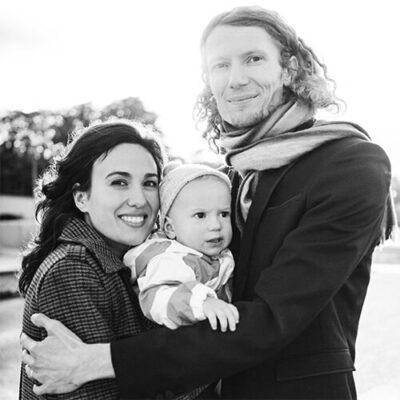
We’ll never email more than once per month.
- Things to do
Explore > Company > News > Traveling While Transgender in 2020
Traveling While Transgender in 2020
UPDATE: This article was refreshed in June, 2020 with new information on updated TSA regulations, US state-licensed, non-binary identities, and more. A new link to the Orbitz LGBTQ Welcoming Hotels hub page was also added in February, 2021.
Mark Twain once famously said, “ Travel is fatal to prejudice, bigotry, and narrow-mindedness, and many of our people need it sorely on these accounts. Broad, wholesome, charitable views of men and things cannot be acquired by vegetating in one little corner of the earth all one’s lifetime. ”
By public acclaim, the evidence for this appears to be true, or at least it is so for those who have the wealth, privilege and social position to travel.
“Travel is fatal to prejudice” – Mark Twain
But what about those who are outside of the social mainstream, especially those whose gender identity might not match their original birth certificate designation or even the physical features of their face and/or body? For them, the enlightenment and joy of travel presents a host of difficult obstacles that most gender normative people have never considered.
As an American transgender woman myself who has traveled, both before and after transitioning, I’d like to share some of the experiences we face so that you, as a potential ally to our community, may both better understand and help to make our voyages as enjoyable as yours.
Transgender traveler concerns
Public travel today is a far more complicated experience than it was in the past. The needs for heightened security on public transportation, especially in the air and at sea, has led to very strict, invasive security measures that are an unpleasant annoyance for most folks, but can be profoundly humiliating to the trans community. We face such issues as:
1. TSA Advanced Imaging Technology (AIT) body scans that reveal our bodies in which many of us have so much shame
2. Aggressive, invasive and intimate TSA pat-down searches
3. Going through TSA checks with body prosthetics
4. Traveling with prescription hormone medications (especially injection supplies)
5. Traveling before our ID has been updated for name and gender
6. Getting misgendered (sometimes intentionally) by airline and hotel staff or TSA officers
7. Being forced to sit for an extended period of time next to someone who is overtly transphobic
8. Public humiliation or overt outing by TSA officers, travel services staff or hotel front desk staff
9. International (or domestic) travel to destinations where transgender people are not socially or legally accepted in their identified gender, especially when the travel is required for work
It doesn’t begin and end at the airport, either. Even taking road trips by car can be a source of deep worry over issues such as:
1. Traveling to/through a place that is hostile to trans people (by legislation or culture, both inside the US and international)
2. Having to visit public rest stops, stores, restaurants, and gas stations in unfriendly areas on road trips
3. Facing confrontations for using the public restroom of the gender in which we identify while traveling
4. Visiting potentially unwelcoming rural areas vs. the anonymity of large urban areas
5. Going to public swimming pools, saunas or into public changing rooms
6. Being confronted with verbal abuse and, all too often, unthinkable physical violence by intolerant, local people
7. Traveling for a variety of transgender surgeries where, on the return trip, we will appear/be different than when we departed
For the trans community, all these issues and more are significant obstacles to be prepared for, dealt with, and overcome, one at a time, over and over. You simply cannot know how much mental and emotional energy it takes for trans people to get ourselves ready to leave our safe space and venture out into the unknown. It can be excruciatingly hard.
How to cope as a trans traveler
But trans people need not abandon the personally enriching experiences of travel in their lives. While the safe world is quite a bit smaller for us, there are still places we can go and things we can do to both protect ourselves and our civil rights as traveling citizens.
1. Know your rights!
Review the TSA Transgender Policies webpage and install the FlyRights app on your mobile device.
2. Consider applying for TSA PreCheck membership
The TSA PreCheck application process runs a thorough background check on all applicants. As a result, the level of trust TSA has in TSA PreCheck-identified passengers is greatly elevated, and reportedly this benefits the process of transgender passengers passing through airport security with less hassle due to lessened scrutiny at the security gate. There is a cost for this, however. For a 5-year membership, it’s $85. The Trusted Traveler program includes TSA PreCheck and other pre-screening programs that can be bundled together to help assist international travelers shorten their wait to see Customs officers.
3. Remain positive, gracious and respectful while working with TSA officers
Be so at all times in your interactions. Calmly answer all reasonable questions directly. Never shout or threaten a TSA officer. Jokes are highly discouraged as well. The goal is to get through the security screening process safely and quickly with minimal hassle, then be on your way. If necessary, calmly ask for a supervisor if the interactions with TSA officers become unreasonable.
4. Consider self-identifying to the TSA as transgender
You may consider privately self-identifying as trans to a TSA officer before going through their millimeter wave advanced imaging technology screening booth (they choose between separate, binary-gender image screening settings and “unexpected anomalies” may raise a red flag, resulting in a more thorough, body pat-down search )
5. Opt-out of body scanning
You can opt-out of the AIT body screening and ask instead for a pat-down search.
6. Carry a TSA Notification Card
Consider carrying a TSA Notification Card if you carry prescribed, injection medications or wear a prosthesis .
7. Ask for a pat-down in private
If you are selected for a pat-down search, you can ask for it to be done in a private screening area with a witness or companion of your choosing.
8. Ask for a same-gender officer as you identify for a pat-down
You can ask for a TSA officer of the same gender as your gender identity to perform the pat-down search.
9. Let TSA know if you are wearing prosthetics
You may wish to self-identify if you are wearing prosthetics prior to a screening or pat-down. If you are asked to either show a prosthetic or a body part, or lift, raise or remove any clothing, ask for a supervisor. Note that if the prosthetic alarms in the screening, the TSA requires that you conduct a self-pat-down followed by an explosives test of your hands. If those results are positive, a more thorough pat-down will be conducted, but still under the same rules as above.
10. Politely correct accidental misgenderings
Politely correct a person who initially misgendered you by mistake. If you are repeatedly misgendered or are shown disrespect, calmly ask for a supervisor.
11. Ask for a TSA Supervisor
If need be, calmly ask to speak to a TSA supervisor at any time.
12. Ask for a private luggage check screening
If your carry-on baggage is selected to be opened, you may ask for a private screening.
13. Bundle all prescription medications & supplies in one bag
If you are packing prescription medications , including hypodermic needles and hormones, inside your carry-on bag, TSA regulations require you put them all together in a separate bag, preferably in their original packaging with prescription labels.
14. Gender presentation is not relevant to your ability to travel
How you present, gender-wise, is not relevant to your ability to travel. The only thing that is relevant is matching your ID documents’ name and gender marker to your reservations. The TSA cannot reject you for your gender presentation.
15. Update your ID photo
If necessary, consider updating your government photo ID with a current photo if you haven’t had a legal name change.
16. Update your legal IDs if you have legally changed your name
If you have legally changed your name and/or gender designation, follow up by updating your driver’s license, passport, and TSA PreCheck card with new personal identity data. Note that many US states have now begun enabling their citizens to select alternative gender designations to the binary options of female and male, and more are planning to follow suit. Also, at the time of this post update, a bill has been brought before the US Congress proposing that the US State Department allow alternative gender markers on US passports.
17. Make travel reservations using your legal name
Make your flight reservations in the name based on the legal ID documents you will bring to the airport for your flight. They must match, as required per law.
18. Make travel reservations using the gender marker on the ID you’ll use
Like with your name, you’ll need to make your flight reservations using the gender marker based on the legal ID documents you will bring to the airport for your flight. They must match. Note that per the TSA, there are several forms of identification you can use. This includes your REAL ID , a secure, state-issued identification (in some cases known as an enhanced driver’s license or EDL). But as noted in an earlier question above, some US States offer alternative gender markers beyond the binary, while US passports are still (as of this post update) only offered in binary gender markers. In addition, some airlines also accept alternative gender markers. So here’s the key to making this complex system work:
- Domestic only travel. If you are flying within the US only, you can use the gender marker listed on your REAL ID to book your flight. Present your REAL ID at airport security for your ID. The new deadline date for getting a REAL ID is October 1, 2021, so if you don’t get your driver’s license upgraded to a REAL ID/EDL by that time or you don’t bring another approved form of ID with you to the airport, you will not be allowed to get through security!
- International travel. If you are going to cross any international border, even Canada or Mexico, on your trip, you will be required to use your passport instead of a REAL ID, and thus be required to book your flight using the gender marker on your passport. Even if you have a US connection in the same trip, it’s still part of the international flight trip, and the passport supersedes the REAL ID.
19. Consider carrying medical letter for HRT & gender
You may opt to carry a copy of your medical letter for prescription hormone replacement therapy (HRT) and gender designation.
20. Consider bringing a medical letter for other medical supplies
If you are bringing dilators or syringes in a carry-on, it may be helpful to bring a letter of medical necessity.
21. Consider carrying your name change court document
You may also consider carrying a copy of your name change court order document. You might also consider carrying your old ID just in case.
22. How to file a complaint for mistreatment
If need be, you can file a civil rights complaint with the TSA and/or DHS immediately after the incident or as soon as possible afterward.
23. Stay at known LGBTQIA-friendly hotels
Stay at hotels and resorts that are explicitly LGBTQ friendly. Orbitz has a huge number of them in our lodging inventory, one of the largest LGBTQ-Welcoming hotel inventories in the travel industry , and that list continues to grow weekly.
24. Travel to known safe destinations for LGBTQIA people
Consider traveling to known LGBTQIA-safe country destinations , or known LGBTQIA-safe cities in North America .
For additional details, check out Know Your Rights: Airport Security by the National Center for Transgender Equality .
Advice for service workers who interact with trans travelers
So much of the above puts the onus on trans people to be compliant with and aware of the regulatory rules and laws as well as standing up for our rights against discrimination. However, for transgender allies and just kind-hearted people who work in government jobs in TSA, Customs, and law enforcement, as well as workers in the travel and hospitality industries, there are things you can do as well to help make our travel experience be so much easier. This includes:
- Be discreet about bringing public attention to someone who may be transgender.
- Avoid using gendered salutations, such as “sir”, “ma’am”, “Mr.”, “Ms.”, “gentleman” and “lady”, in your speech, especially if there is any possibility of perceived ambiguity in the person’s gender expression.
- Discreetly ask the traveler how they want to be identified (including their personal pronouns , name, salutations, etc.).
- Never ask a transgender person deeply personal questions about surgery, genitalia, medications, their “real” name, or anything else not relevant to their travel.
- For TSA: Proactively provide options to the traveler on who can do a pat-down search if one is needed.
- Treat transgender people with the same respect and dignity as you would any other person.
Ultimately, transgender travelers are just travelers. We travel because we have to be somewhere else and have to use public transportation facilities and services to get there. Along the way, we may have to visit the bathroom. This is no different than anyone else. If you show us the same respect and dignity that you expect from us, everything will be so much easier for everyone involved.
Travel can be such a positive, even life-changing, experience. In a perfect world, transgender travelers, like everyone else, would share another one of Mark Twain’s musings resulting from the amazing experience of travel: “ There is no unhappiness like the misery of sighting land (and work) again after a cheerful, careless voyage. ”
More Articles With Company
Must-see LGBTQ-friendly destinations for every kind of traveler
From Nova Scotia to Phnom Penh, in quaint small towns and big cities alike, these places support and welcome travelers with pride.

As longtime travelers, we do love a lively drag show or a Pride parade, but we also want to go beyond the obvious to discover cute small towns, safari adventures, and pockets around the world that offer more well-rounded experiences—while still being able to be our true selves. That’s what led us to write the National Geographic book Out in the World, a travel guide that supports LGBTQIA+ travelers, and our allies, in meaningful ways—including queer-owned and welcoming businesses, and memorable activities where everyone feels like part of a community.
Here are 10 exciting destinations (plus our lodging tips in each), from surprising small towns and exciting big cities, to romantic beaches and wild national parks.
Great Barrier Reef, Australia

Located off the coast of Queensland, Australia , the world’s largest reef system is home to 1,600 species of fish, 134 species of sharks and rays, 30 species of whales and dolphins, and 700 species of hard and soft coral.
If you’re interested in snorkeling, book a day tour with Wavelength Reef Cruises , an eco-certified company that offers smaller group excursions and is owned by local marine biologists. The company visits popular reefs such as Tongue, Opal, and St. Crispin (we spotted dolphins and whales en route), with the skipper picking the best spot based on the day’s conditions. Other companies, such as Quicksilver Cruises , offer excursions where you can choose between scuba diving and snorkeling.
LGBTQIA+ lowdown: Cairns and Port Douglas, gateways to the Great Barrier Reef, are very queer friendly.
Where to stay: The adults-only Pink Flamingo Resort in Port Douglas offers colorful private villas (with an outdoor shower and hammock). Turtle Cove is an adults-only beachfront resort (with clothing-optional sections) for LGBTQIA+ people and allies in Wangetti (about 30 minutes from Port Douglas). The queer-owned Gunnadoo Holiday , with views of the Coral Sea, is near the Daintree Rainforest in Rocky Point.
New York City, New York
New York City ’s history, especially in Greenwich Village, can be explored via Christopher Street Tours, which gives the inside scoop on historic sites and LGBTQIA+ pioneers. We could spend all day people-watching in Washington Square Park, but so many other great sites are nearby: the Stonewall Inn, a historic landmark where the 1969 riots helped launch the gay rights movement ; Marie’s Crisis Café , a classic LGBTQIA+ piano bar (dating back to 1929), where you can belt out show tunes; and Henrietta Hudson for lesbian karaoke and dancing. And don’t overlook the Museum of the City of New York, which details the city’s history and has a moving exhibit on progress for LGBTQIA+ rights.
LGBTQIA+ lowdown: NYC has the largest queer population in the United States and is an essential location of the LGBTQIA+ rights movement in the country.
Phnom Penh, Cambodia

In Cambodia , same-sex activity is legal and same-sex relationships are widely accepted, especially in major cities. The buzzing capital Phnom Penh has a small LGBTQIA+ scene with a few bars and restaurants central to the community.
For drinks, head to Blue Chilli, the longest running LGBTQIA+ bar in the country, with drag shows, dancing, and cocktails. At Space Hair Salon and Bar , you can get your hair done and your drinks poured in one place; the Pride of Phnom Penh is a bijou music bar with LGBTQIA+ crowds; and the Toolbox is “geared” toward gay men.
LGBTQIA+ lowdown: Pride week is typically in May. When in temples, make sure to wear appropriate clothing that covers your shoulders (shawls are not permitted in some places). Just as in some other areas of Asia, public displays of affection are not especially encouraged (for any type of couple).
Where to stay: Arthur & Paul is a spa boutique hotel for men only. Mad Monkey Hostel has dorms and private rooms, plus a beer garden, restaurant, and pool. It also hosts Pride events and gives back to the community through clean water projects and beach cleanups. Palace Gate Hotel & Resort is on the riverfront with sophisticated rooms and a lush pool area.
Rio de Janeiro, Brazil

Rio , in eastern Brazil , is world renowned for its Carnival celebration but its beaches, mountains, and other natural spaces beckon year-round. Start at Ipanema Beach, a hot spot for the queer community and one of the cleanest beaches in the city (here you’ll find Rua Farme de Amoedo, a famous LGBTQIA+ street with some of the city’s best queer nightlife). Also check out Copacabana Beach, which also has a lively queer crowd, music, restaurants, and bars. Or visit Praiade Abricó beach, the city’s only nudist option.
LGBTQIA+ lowdown: Rio is the queer mecca of Brazil, priding itself on initiatives like vocational training courses for trans people, anti-bullying projects to support queer students, and legislation outlawing discrimination in the city’s nightclubs.
Where to stay: Praia Ipanema Hotel has modern rooms and balconies with sweeping views of the beach. MGallery Santa Teresa Hotel is a luxury boutique hotel on a historic coffee farm dating back to the 1850s. It boasts a spa and Michelin-listed restaurant. Or try LaSuite by Dussol , a minimalist and modern hotel with views of the beach, the landmark Christ the Redeemer statue, and the Cagarras Islands.
Cape Winelands, South Africa

In addition to hundreds of wineries (including some of the oldest outside of Europe), the Cape Winelands, South Africa , offers expansive estates and historic towns only an hour away from Cape Town . Award-winning Cabernet Sauvignon, Chenin Blanc, and Pinotage are among the varietals at M’hudi Wines , the first entirely Black-owned wine tourism farm in South Africa.
Between Cape Town and the Cape Winelands area, don’t miss Steenberg Farm , the first winery in South Africa to join the International LGBTQ+Travel Association (IGLTA). Established in 1682, Steenberg Farm has some of the country’s best winery views and Sauvignon Blanc. While touring the wineries, let someone else do the driving with Vine Hopper (Stellenbosch) or the fun Franschhoek Wine Tram .
LGBTQIA+ lowdown: South Africa amended its constitution in 1996 to ban discrimination based on sexual orientation (the first country to do so) and legalized same-sex marriage in 2006. Still, there are ongoing incidents of racism and homophobia, so visit with caution.
Where to stay: Maison Chablis Guest House is a quaint and inviting country house, with a pool. Queer-owned Holden Manz Wine Estate is a hidden gem where you can enjoy some Merlot or Syrah, and wine and dine in the Franschhoek Kitchen. Sugarbird Manor at Protea Heights Farm has serene views and an amazing infinity pool amid vineyards.
Nova Scotia, Canada
Nova Scotia is known for its rugged coastline, rolling hills, world-famous lobster, outdoor hiking and cycling, lighthouses, and the world’s highest tides. In 2023, it hosted the North American Indigenous Games , bringing together 756 nations to compete and connect through sports across 21 venues.
LGBTQIA+ lowdown: Nova Scotia is a queer-welcoming destination with Canada’s largest population of trans and nonbinary people and extensive protections for queer people. It also has a wide array of services, including First Love Yourself, Gender Creative Kids Canada, and Nova Scotia Rainbow Action Project.
Where to stay: The Pebble Bed & Breakfast has charming rooms overlooking Northwest Arm, an inlet with bright blue waters for boating and fishing. The Wellshire Bed and Breakfast in Lunenburg is in the historic Old Town with a well-tended garden and pond. The Halifax Marriott Harbourfront Hotel is eco-certified and has picturesque views of the water, plus an indoor pool and fitness center.
Eureka Springs, Arkansas
A mountain town famous for its mineral springs and Victorian architecture, Eureka Springs, Arkansas , may not be the first place you think of as a queer-friendly destination, but with more than 30 percent of its population identifying as LGBTQIA+, the town is a leader in southern hospitality.
Millions come for the Great Passion Play, the “Christ of the Ozarks” statue, and Thorncrown Chapel , an architectural gem with 425 windows. According to architect E. Fay Jones, it’s a place to “think your best thoughts.” In downtown Eureka Springs, stroll the Historic Loop, a 3.5-mile (5.6 km) walking tour with 300 Victorian-era buildings. Don’t miss the rainbow steps on North Main Street for a Pride photo spot.
LGBTQIA+ lowdown: Nicknamed the “gay capital of the Ozarks,” Eureka Springs has long advocated for equality. Before the United States legalized same-sex marriage in 2015, Eureka Springs residents formed domestic partnership registries, and the town enacted laws banning discrimination based on sexual orientation or gender expression.
Where to stay: Gay-owned options include Magnetic Valley Resort, an all-male (including trans men) retreat in a serene setting, and the pet-friendly Wanderoo Lodge , which has a bar, restaurant, and the town’s largest swimming pool.
Barcelona, Spain
Northern Spain’s only coastal city, Barcelona has it all: history, art, Gaudí-designed landmarks , gastronomy, and Instagrammable sites at every turn. Trendy neighborhood, Eixample, known by the locals as Gaixample for its large LGBTQIA+ community, is great for craft beer bars, art galleries, high-end stores, modernist buildings, and the Arc de Triomf, designed as the entrance to the 1888 Barcelona World Fair. You should also visit the Gaudí houses: Casa Batlló (“House of Inspiration”) and La Pedrera Casa Milà, Gaudí’s last private residence project (completed in 1912), for immersive hologram experiences. Mar Bella Beach (with a clothing-optional section) is popular with the LGBTQIA+ community.
LGBTQIA+ lowdown: Barcelona, the Catalan capital, is particularly welcoming to the spectrum of the queer community, with multiple LGBTQIA+ events, queer-friendly districts, and inclusive hangouts.
Where to stay: Kimpton Vividora in the Gothic Quarter is a pet-friendly favorite with a pool. Hotel Ohla , in the same area, is known for the 1,000 ceramic eyes on its facade and its Michelin-starred restaurant. The hetero-friendly Axel Hotel in Gaixample is also quite popular with the LGBTQIA+ community and houses Sky Bar, which features a fan of feathers representing diversity

Cologne, Germany
Few places do Christmas markets better than Germany , and the progressive university town of Cologne is no exception. Each market offers a chance to sip warm glühwein, browse handmade arts and crafts, take in ornate decorations, and sample Wiener schnitzel. The biggest and most famous Christkindlmarkt can be found in front Cologne Cathedral, where a giant Christmas tree and pretty overhead string lights set a jolly atmosphere. In the (holiday) spirit of inclusiveness, don’t miss Heavenue , a queer Christmas market featuring sexy St. Nick, live shows, and stalls bursting with color.
LGBTQIA+ lowdown: Cologne competes with Berlin for the most queer-friendly city in Germany. You’ll find one of Europe’s biggest Pride festivals, two distinct LGBTQIA+ neighborhoods (Rudolfplatz-Schaafenstrasse in the west and Heumarkt-Mathiasstrasse in the east), and lots of queer spaces.
Where to stay: The Excelsior Hotel Ernst am Dom is a five-star luxury option steps from the Cologne Cathedral. Maison Marsil is a family-owned boutique hotel with lots of character in the heart of the city.
Los Cabos, Mexico
On the southern tip of Mexico’s Baja California peninsula, the Los Cabos region includes the popular towns of Cabo San Lucas and San José del Cabo, connected by the Corridor: 20 miles (32 km) of walkable beaches, golf courses, resorts, and great spots for snorkeling and fishing.
Visit Cabo San Lucas’s popular Medano Beach, crammed with oceanfront hotels and plenty of places to sip margaritas all day. Just across from the beach, you’ll see the landmark El Arco, a three-story limestone arch where the Pacific Ocean meets the Sea of Cortez. Take a water taxi to Lovers Beach, a beautiful swimmable spot on the Sea of Cortez side of the arch.
LGBTQIA+ lowdown: Cabo San Lucas is particularly welcoming, hosting an annual LGBTQIA+Pride march. It’s also home to many inclusive resorts and businesses.
Where to stay: ME Cabo on Medano Beach puts you near all the action; walk to town or sit by the pool with views of the sea and El Arco, then join the parties along the busy beach strip at night. It also holds the Queer Destinations Committed distinction, an internationally recognized standard of inclusivity for the LGBTQIA+ community.
Related Topics
- LGBT-FRIENDLY TRAVEL
- ADVENTURE TRAVEL
- ROMANTIC DESTINATIONS
- CULTURAL TOURISM
- FOOD TOURISM
- BEACH ACTIVITIES
You May Also Like

They inspire us and teach us about the world: Meet our 2024 Travelers of the Year

A guide to Brighton, Britain's most progressive seaside resort
For hungry minds.

The essential guide to Switzerland

10 unmissable LGBTQ+ events in Latin America

A break in Llandudno, a vintage Welsh beachside resort with enduring appeal

What's new in Indian Ocean destinations, from hotels to activities

This medieval village is one of the buzziest places to ski
- Environment
- Perpetual Planet
History & Culture
- History & Culture
- History Magazine
- Mind, Body, Wonder
- Terms of Use
- Privacy Policy
- Your US State Privacy Rights
- Children's Online Privacy Policy
- Interest-Based Ads
- About Nielsen Measurement
- Do Not Sell or Share My Personal Information
- Nat Geo Home
- Attend a Live Event
- Book a Trip
- Inspire Your Kids
- Shop Nat Geo
- Visit the D.C. Museum
- Learn About Our Impact
- Support Our Mission
- Advertise With Us
- Customer Service
- Renew Subscription
- Manage Your Subscription
- Work at Nat Geo
- Sign Up for Our Newsletters
- Contribute to Protect the Planet
Copyright © 1996-2015 National Geographic Society Copyright © 2015-2024 National Geographic Partners, LLC. All rights reserved
- About Us History Jobs, Fellowships & Internships Annual & Financial Reports Racial Justice at NCTE Contact Us
- Support NCTE
- Get Updates
- Press Tips for Journalists Releases
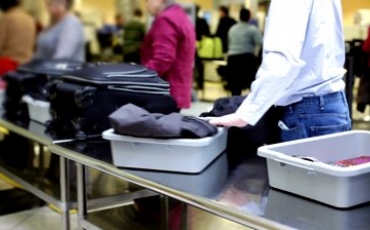
Many Americans have been disturbed by decisions of the Transportation Security Agency (TSA) to implement airport screening procedures that are far more intrusive than anything previously seen in the United States. These techniques—which often include aggressive body searches of passengers—present especially serious concerns for transgender people, who can be outed against their will or face bias and harassment. These screening procedures can be especially traumatic for transgender children. In the National Transgender Discrimination Survey —which includes data collected before these more intrusive techniques were introduced—nearly one in five transgender travelers reported having been harassed or disrespected by airport security screeners or other airport workers.
In 2011, the TSA began phasing in new screening technology that replaces electronic viewing of images of passengers’ unclothed bodies with automated detection of potentially hazardous objects. This technology mitigates some privacy concerns but has not changed the frequent use of intrusive pat-downs. NCTE continues to hear troubling stories from transgender travelers about their treatment by TSA, as well as by officials at U.S. border crossings. While NCTE continues to work with TSA to promote better staff training, respond to individual complaints, and educate the trans traveling public, the agency’s lack of transparency and persistent use of invasive and unproven security procedures are a continuing cause for concern.
NCTE Resources
From the blog, victory biden administration delivers major policy reforms for transgender people.
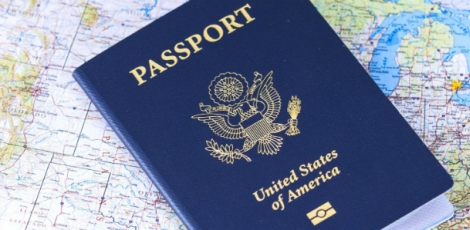
The Biden -Harris A dministration announced today it is implementing policy changes that we've been advocating for since NCTE was founded. Here are changes trans people will see to passports, TSA, social security, and more.
US State Department Issues First Passport with Gender ‘X’ Marker, Removing an Anti-Trans Barrier
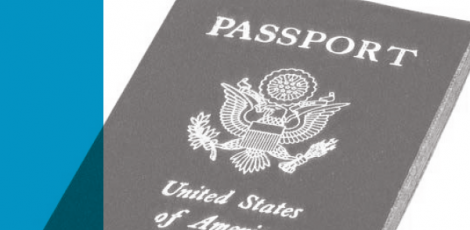
The Biden-Harris administration is keeping its promise to reform the US passport system to ensure transgender people have accurate travel documents.
Priorities for the Biden Presidential Administration
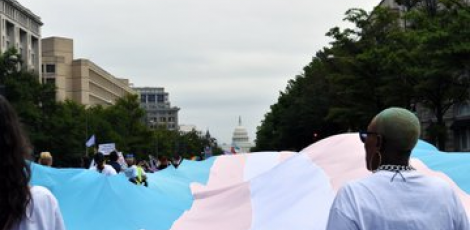
Joe Biden is the president our country needs.
Join Our Mailing List

- International edition
- Australia edition
- Europe edition
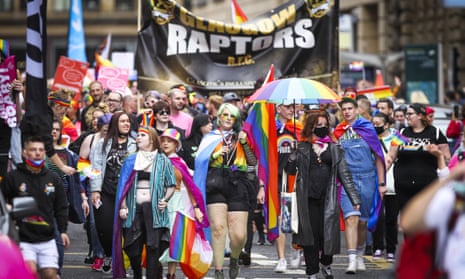
UK review of gender recognition list risks ‘trans travel ban’
Campaigners condemn government plan to update list of countries whose GR certificates are automatically recognised
Rishi Sunak has been told he risks “re-toxifying” his government’s record on LGBTQ+ rights and introducing “an effective trans travel ban” after the equalities minister announced a review of countries whose process for changing gender on legal documents is recognised by the UK.
Kemi Badenoch notified the Commons on Monday of plans to update the list of approved countries and territories whose systems for gender recognition allow individuals with certificates obtained there to use the fast-track process when seeking a gender recognition certificate (GRC) in the UK.
She suggested that recognition would be withdrawn from places “where there is a clear indication that the country now no longer has a system at least as rigorous as those in the Gender Recognition Act 2004”.
In recent years a number of countries have simplified the process by which transgender individuals can legally change their birth certificates, with some introducing a process known as self-declaration, which was recently approved amid some controversy by the Scottish parliament. People with certificates from countries excluded from the list have to apply for a UK certificate separately.
The move comes as the deadline approaches for Westminster officials to decide whether to deploy the “nuclear option” of prohibiting Holyrood’s gender recognition bill from going for royal assent, after Scotland became the first part of the UK to introduce a self-identification system just before the Christmas recess.
The UK’s Scotland secretary, Alister Jack, said he could invoke section 35 of the Scotland Act, which in effect gives him a veto on laws he believes have an impact on constitutionally reserved matters – a decision that could set the stage for a bitter constitutional clash.
Responding to Badenoch’s announcement, Nancy Kelley, the chief executive of Stonewall, and Colin Macfarlane, the LGBTQ+ rights campaign’s Scotland director, said: “Ending reciprocal recognition of gender recognition certificates from countries that support trans people changing their legal gender using a self-determination model is a disgraceful low for the UK government’s approach to LGBTQ+ rights.
“This comes as the UK government considers challenging the Scottish government’s mandate to implement the gender recognition reform bill, a bill that was passed with overwhelming cross-party support from MSPs in December 2022.
“Trans people from countries like Canada, Australia and New Zealand have had their gender recognition certificates respected by the UK for years. Seeking to end this system is an extraordinary move, not based on evidence or experience, that will effectively serve as a ‘trans travel ban’.”
Kelley and Macfarlane said these combined moves also sent the message “that the UK government sees trans people as a threat to be contained, not citizens to be respected”, adding that “20 years on from the repeal of section 28, the prime minister risks re-toxifying his party’s brand by repeating historic mistakes”.
A Cabinet Office spokesperson said transgender people “have not and will not be banned” from entering the UK. “The Government is merely ensuring that individuals who can access the UK’s fast-track gender recognition system, are from countries with at least equal checks and balances to the UK.”
The fast-track overseas route means that an applicant with legal gender recognition from an approved country does not, for example, need to provide medical reports when applying for a GRC in the UK.
The spokesperson added that the update was not retrospective: “No one is going to move from having recognition in the UK now to not having it. If you’ve got a GRC, you still will have one.”
In late December, the Scottish government hailed a “historic day for equality” after MSPs approved plans to make it easier and less intrusive for individuals to legally change their gender, extending the new system of self-identification to 16- and 17-year-olds for the first time.
after newsletter promotion
The final vote followed an unprecedented two days of acrimonious and often emotional debate as members worked across parties and past midnight on more than 150 amendments to address concerns about abusive males potentially taking advantage of the new system, and its impact on UK equality law.
The gender recognition reform (Scotland) bill removes the need for a psychiatric diagnosis of gender dysphoria in order to obtain a GRC.
The Scottish government has said any attempt by the UK government to veto the law would be “vigorously contested”.
Later on Tuesday, the Welsh first minister, Mark Drakeford, said that he planned to approach the UK government for the powers to introduce a gender recognition bill similar to that passed at Holyrood.
Drakeford told the Senedd he has spoken to Sturgeon about the bill and was “surprised” by the UK government’s reaction. “They are threatening to use a power that has never been used in the whole history of devolution,” he said.
- Transgender
- LGBTQ+ rights
- Human rights
- Scottish politics
- Conservatives
Most viewed

An official website of the United States government
Here’s how you know
Official websites use .gov A .gov website belongs to an official government organization in the United States.
Secure .gov websites use HTTPS A lock ( Lock A locked padlock ) or https:// means you’ve safely connected to the .gov website. Share sensitive information only on official, secure websites.
Gender Diversity
TSA recognizes the concerns that some members of the transgender/non-binary/gender nonconforming traveling public have with screening technology and certain security screening procedures, and is committed to ensuring all passengers are treated with respect and dignity. Screening is conducted without regard to a person's race, color, sex, gender, gender identity, national origin, religion or disability.
Prior to the Airport
Tsa precheck®.
The TSA PreCheck® program application has been updated to include an additional gender marker option to better serve non-binary and gender non-conforming passengers.
TSA allows TSA PreCheck® applicants to select their gender based on self-attestation, regardless of the sex assigned at birth. If you are a member of the TSA PreCheck® Application Program, you may call (855) 347-8371 weekdays between 8 a.m. and 10 p.m. ET to request a gender data update. You may also submit your inquiry online .
This new gender marker option will not impact the security screening process. Security screening is conducted without discrimination against passengers based on their race, color, sex, gender, gender identity, national origin, religion or disability.
Updating your gender on other identification documents is not required to enroll in TSA PreCheck® screening. You will receive TSA PreCheck® security screening even if your current gender differs from the gender provided upon enrollment in TSA PreCheck®, as long as the name, Known Traveler Number (KTN), and date of birth on your reservation matches their record with TSA. For more information, please visit TSA PreCheck Frequently Asked Questions .
Making Your Air Travel Reservations
When making a reservation, please use the same name and date of birth indicated on your government-issued ID. We also encourage you to provide the gender indicated on your government-issued ID. TSA recommends that passengers contact air carrier customer service if the gender marker on their government-issued ID is not offered in the air carrier’s reservation system. TSA continues to work closely with our domestic air-carrier partners to promote the use and acceptance of the “X” gender marker. Some major domestic air carriers already offer “X” or undisclosed gender options in their travel reservation systems, please check with your air carrier when making your reservation. Read additional information about identification .
Contacting TSA in Advance
Prior to a flight, you may contact the TSA Cares helpline at (855) 787-2227 with questions about screening policies and procedures, as well as what to expect as you proceed through the security checkpoint. You may request the assistance of a Passenger Support Specialist , who will provide assistance through the security screening process.
While at the Airport
Travel document checker.
At the checkpoint, present your government-issued identification and boarding pass to the TSA officer who will ensure the identification and boarding pass are authentic with the exact name shown on each document. If the name shown on the identification document does not exactly match the name on the boarding pass, you may need to go to your airline ticket counter for a new boarding pass.
TSA has updated its checkpoint procedures to remove gender considerations when validating a passenger’s identification at airport security checkpoints. When passengers appear at the travel document checker podium for identity verification, gender information is not considered. Go to Security Screening Identification for more information.
Inform the TSA Officer
For carry-on baggage - inform the TSA officer if you have medically necessary liquids, medications and/or medical equipment, and separate them from other belongings before screening begins. If a bag must be opened by an officer to resolve an alarm, you may ask that the bag be opened and inspected in private.
Physical Screening Procedures
You will be screened by Advanced Image Technology (AIT), a walk through metal detector (WTMD), and/or a pat-down procedure.
AIT Technology Enhancements and Screening Procedures
In June 2023, TSA implemented a gender-neutral algorithm for the AIT, which decreased the false alarm rate by 50%. This change benefits everyone, including transgender, non-binary, and gender nonconforming passengers by reducing the number of pat downs for TSA officers and the traveling public. Ask to speak with a supervisor if concerns come up during screening.
If there is a screening alarm by technology, or you opt-out of screening by technology, a pat-down is required and is conducted by an officer of the same gender as the officer’s assessment of how you present. Alternatively, you may choose to inform the officer of your gender identity and make a request that the pat-down be conducted by an officer of that gender.
Screening can be conducted in the checkpoint area, or you may request to have a pat-down in private. You can request that your traveling companion accompany you to private screening. You are not required to remove or lift any article of clothing to reveal sensitive body areas. You may be asked to adjust loose fitting clothing by the officer performing the pat-down. For additional information about the pat-down, see Security Screening .
To File a Complaint
If your screening experience did not meet your expectations, speak with a supervisor at the checkpoint. You may also submit your concern to the TSA Contact Center .

California is offering drivers $400 gift cards to test its alternative to the gas tax
C alifornia officials are still trying to figure out how to pay for road repairs and maintenance in the not-so-distant future, when electric vehicles dominate the roadways and gas tax revenue dries up.
So they're offering drivers up to $400 to test a couple of alternatives for six months, starting in August. The pilot program is open to drivers of all vehicle types, gasoline-powered or otherwise.
Road improvements are financed mainly through the state's comparatively high excise tax on fuels (about 58 cents a gallon for gasoline and 44 cents a gallon for diesel). Approximately 80% of highway and road repairs are funded by the state gas tax, according to the California Department of Transportation.
But that important revenue stream is expected to nosedive in the coming years as the transition to more electric and hybrid vehicles quickens, especially with a ban on the sale of new gas-powered vehicles set to take effect in 2035.
So state transportation officials are looking for drivers to participate in what will likely be the final test on a new system aimed at replacing the gas tax with a more reliable funding source based on the number of miles you drive, not how many gallons your car guzzles.
“What’s happening right now as we see this growth in different types of vehicles ... we're seeing this increasing unfairness in what people are paying,” said Lauren Prehoda, manager of CalTrans' Road Charge Program . While owners of electric vehicles pay a yearly fee to help pay for road repairs, it's about a third of the roughly $300 that Californians pay on average through the gas tax, according to the program.
Prehoda said the latest pilot program — the fourth focused on this issue — will test two payment models: a flat per-mile rate or an individualized rate based on a vehicle's fuel efficiency.
“This time it's unique because in the past we haven’t actually collected money," Prehoda said. She said they are focused on testing the collection process, but will be looking to ensure the process is easy for drivers, reliable for the state and equitable for all Californians.
Prehoda expects this will be the final test of the process before policymakers determine how it will be implemented.
“As a state we’ve been looking at this for 10 years now," she said. The first pilot program kicked off in 2016 , when transportation officials tested the feasibility of such a new revenue stream, looking into a variety of ways for drivers to report mileage. Officials have since looked at how such a new tax could disproportionately affect rural and tribal communities and how private and public roads are used.
The latest study is looking for about 800 participants statewide who will begin paying the mileage-based travel fee every month, but also receive a credit for the gas taxes or EV registration fees they paid to ensure they aren't double-taxed. Participants can also earn up to $400 in gift cards. Interested Californians can sign up online .
“This is your opportunity to figure this out together with us; to solve an issue that the state of California has," Prehoda said, adding that the failure to maintain roads causes costly wear and tear on the vehicles using them. "We all need good roads to get around."
This story originally appeared in Los Angeles Times .


Elektrostal
City in moscow oblast, russia / from wikipedia, the free encyclopedia, dear wikiwand ai, let's keep it short by simply answering these key questions:.
Can you list the top facts and stats about Elektrostal?
Summarize this article for a 10 year old
Mobile Menu Overlay
The White House 1600 Pennsylvania Ave NW Washington, DC 20500
A Proclamation on Mother’s Day, 2024
Today, we show gratitude to moms and mother-figures for loving their children unconditionally; raising them with care, courage, and grit; and leading by the power of their example.
On my desk in the Oval Office, I have a picture of my mother, Catherine Eugenia “Jean” Finnegan, in Grant Park on the night that President Barack Obama and I won the 2008 election. That night, my mother walked on stage, took my and President Obama’s hands, and said, “Come on honey, it’s going to be okay.” That was my mother — fearless, caring, and ready to lend anyone the bravery that always resided in her heart. She taught my siblings and me that courage was the greatest virtue, instilled in us the belief that everyone is your equal, and inspired us to lead lives defined by honor and integrity.
I have also seen the way that my wife, First Lady Jill Biden, has put her whole heart into being a wonderful mother and grandmother. She brings our family so much joy and is the source of so many of our best memories. She has also guided our family forward through the most difficult times, always finding the strength to hold us together. Every day, she shares her heart with the students she teaches full time and so many others who find inspiration in her leadership, kindness, and wisdom.
Across the country, mothers are raising their children, caring for their families, and making history. Mothers are leaders in every field — from Main Street to Wall Street, they are driving innovation and strengthening our economy. They are the health care heroes, service members, and public servants, who sacrifice so much for all of us. They are the artists, journalists, engineers, and scientists creating new possibilities. They serve at the highest levels of my Administration, working hard to open the doors of opportunity wider for the next generation.
Moms do so much for all of us, and my Administration has their backs. During the pandemic, I signed the American Rescue Plan, which helped keep the doors open for 225,000 child care providers so families could go to work while their children were cared for. At the same time, we expanded the Child Tax Credit, giving moms and families some breathing room — which helped slash child poverty rates in half during my first year in office. My Administration is also making sure that the good-paying jobs from our once-in-a-generation investments in infrastructure and clean energy go to women, who have been underrepresented in these sectors for too long. I also signed legislation to ensure employers make reasonable accommodations for pregnant and nursing mothers, who deserve to have job security and common-sense workplace protections — such as breaks to drink water, eat, rest, or use the restroom. These protections help ensure that pregnant workers and new moms do not have to choose between their job and their health.
My Administration is working to make sure that mothers have access to the health care they need. With the leadership of Vice President Kamala Harris, we released a Blueprint for Addressing the Maternal Health Crisis, which outlines actions the Federal Government will take to combat maternal mortality and improve maternal health. Further, the American Rescue Plan also gave States the option to provide a full year of postpartum coverage to women on Medicaid, increasing it from just 60 days previously. Now, 46 States, Washington, D.C., and the United States Virgin Islands provide a full year of this critical care.
This Mother’s Day, may we all show gratitude to our mothers, who are our rocks, believing in us so that we may believe in ourselves. May we pray for those who have lost their mothers and miss their comfort each day and for the mothers who have lost a child — a piece of their soul. May we wholeheartedly support the countless mothers across the country who work tirelessly to make the American Dream real for their children and families.
The Congress, by joint resolution approved May 8, 1914 (38 Stat. 770), has designated the second Sunday in May each year as “Mother’s Day” and requested the President to call for its appropriate observance.
NOW, THEREFORE, I, JOSEPH R. BIDEN JR., President of the United States of America, do hereby proclaim May 12, 2024, as Mother’s Day. I urge all Americans to express their love, respect, and gratitude to mothers everywhere. I call upon all citizens to observe this day with appropriate programs, ceremonies, and activities.
IN WITNESS WHEREOF, I have hereunto set my hand this tenth day of May, in the year of our Lord two thousand twenty-four, and of the Independence of the United States of America the two hundred and forty-eighth. JOSEPH R. BIDEN JR.
The Unique Burial of a Child of Early Scythian Time at the Cemetery of Saryg-Bulun (Tuva)
<< Previous page
Pages: 379-406
In 1988, the Tuvan Archaeological Expedition (led by M. E. Kilunovskaya and V. A. Semenov) discovered a unique burial of the early Iron Age at Saryg-Bulun in Central Tuva. There are two burial mounds of the Aldy-Bel culture dated by 7th century BC. Within the barrows, which adjoined one another, forming a figure-of-eight, there were discovered 7 burials, from which a representative collection of artifacts was recovered. Burial 5 was the most unique, it was found in a coffin made of a larch trunk, with a tightly closed lid. Due to the preservative properties of larch and lack of air access, the coffin contained a well-preserved mummy of a child with an accompanying set of grave goods. The interred individual retained the skin on his face and had a leather headdress painted with red pigment and a coat, sewn from jerboa fur. The coat was belted with a leather belt with bronze ornaments and buckles. Besides that, a leather quiver with arrows with the shafts decorated with painted ornaments, fully preserved battle pick and a bow were buried in the coffin. Unexpectedly, the full-genomic analysis, showed that the individual was female. This fact opens a new aspect in the study of the social history of the Scythian society and perhaps brings us back to the myth of the Amazons, discussed by Herodotus. Of course, this discovery is unique in its preservation for the Scythian culture of Tuva and requires careful study and conservation.
Keywords: Tuva, Early Iron Age, early Scythian period, Aldy-Bel culture, barrow, burial in the coffin, mummy, full genome sequencing, aDNA
Information about authors: Marina Kilunovskaya (Saint Petersburg, Russian Federation). Candidate of Historical Sciences. Institute for the History of Material Culture of the Russian Academy of Sciences. Dvortsovaya Emb., 18, Saint Petersburg, 191186, Russian Federation E-mail: [email protected] Vladimir Semenov (Saint Petersburg, Russian Federation). Candidate of Historical Sciences. Institute for the History of Material Culture of the Russian Academy of Sciences. Dvortsovaya Emb., 18, Saint Petersburg, 191186, Russian Federation E-mail: [email protected] Varvara Busova (Moscow, Russian Federation). (Saint Petersburg, Russian Federation). Institute for the History of Material Culture of the Russian Academy of Sciences. Dvortsovaya Emb., 18, Saint Petersburg, 191186, Russian Federation E-mail: [email protected] Kharis Mustafin (Moscow, Russian Federation). Candidate of Technical Sciences. Moscow Institute of Physics and Technology. Institutsky Lane, 9, Dolgoprudny, 141701, Moscow Oblast, Russian Federation E-mail: [email protected] Irina Alborova (Moscow, Russian Federation). Candidate of Biological Sciences. Moscow Institute of Physics and Technology. Institutsky Lane, 9, Dolgoprudny, 141701, Moscow Oblast, Russian Federation E-mail: [email protected] Alina Matzvai (Moscow, Russian Federation). Moscow Institute of Physics and Technology. Institutsky Lane, 9, Dolgoprudny, 141701, Moscow Oblast, Russian Federation E-mail: [email protected]
Shopping Cart Items: 0 Cart Total: 0,00 € place your order
Price pdf version
student - 2,75 € individual - 3,00 € institutional - 7,00 €

Copyright В© 1999-2022. Stratum Publishing House
- SMP WEDDINGS
- SMP’S VENUE BLOG
- LITTLE BLACK BOOK BLOG
- LBB INDUSTRY BLOG
- DESTINATION
- NEW ENGLAND
- THE NORTHWEST
- THE MIDWEST
- THE SOUTHWEST
- THE SOUTHEAST
- THE MID-ATLANTIC
- THE TRI-STATE AREA
Russia Weddings
- Real Weddings
- Bridal Week
- Engagements & Proposals
- Seasonal Wedding Trends
- Bridal Beauty
- Wedding Fashion Trends
- Vendor Guide
- DIY Projects
- Registry Guide
- Engagements & Proposals
- by Melissa Hammam
- comments ( )
Hands up if you’re ready to be dazzled! From a ceremony structure designed to float on water to a jaw-dropping reception room with flowers blooming from every service, we’re swooning over every bit of this wedding. If you can believe it, that’s just the beginning. Julia Kaptelova artfully shot every detail, like the ballet performance guests were treated to and snow falling from the ceiling for the first dance! Prepare to be amazed and take a visit to the full gallery .

From About You Decor … Our design is a symbol of dawn and a distant endless horizon. Ahead is a long, happy life without any borders. An international couple, Pavel and Cherry, met in London and have been walking together for many years.

From the Bride, Cherry… My husband and I we decided to have our summer wedding in Moscow because the city is where his roots are. As we knew we were going to have the other wedding ceremony in China, we wanted our Moscow one to be very personal and intimate. We’ve known each other since we were fourteen, together with many of our friends whom we’ve also known for a decade.

I didn’t want to walk down the aisle twice so the plausibility of my request quickly came into discussion. The open pontoon stage was constructed in order to facilitate the bridal entrance on water, although there were concerns about safety as the last thing we wanted was probably a drowned bride before she could get on stage, picture that! I have to say on that day it wasn’t easy to get on the pontoon stage from the boat, in my long gown and high heels. Luckily my bridesmaids still noticed even though they stood the furthest from me on the stage, and helped me out without prior rehearsal. My girls could just tell whenever I needed a hand or maybe they were just so used to my clumsiness. Who knows 😂
We all love our photographer Julia! She’s so talented and her style is so unique. Our beloved host Alex is exceptional who made everyone laugh and cry. It was truly a blessing to have so many kind and beautiful souls on our big day. Thank you all!

[iframe https://player.vimeo.com/video/384992271 600 338]
Photography: Julia Kaptelova Photography | Wedding Planner: Caramel | Cake: Any Cake | Invitations: Inviteria | Rings: Harry Winston | Band: Menhouzen | Grooms attire: Ermenegildo Zegna | Wedding Venue: Elizaveta Panichkina | Bridesmaids’ dresses: Marchesa | Bridesmaids’ dresses: Alice McCall | Bride’s gown : Jaton Couture | Bride’s shoes: Manolo Blahnik | Decor : About you decor | Earrings: Damiani | Muah: Khvanaco Studio | Video: Artem Korchagin
More Princess-Worthy Ballgowns

I’m still not convinced this Moscow wedding, captured to perfection by Sonya Khegay , isn’t actually an inspiration session—it’s just that breathtaking. From the beautiful Bride’s gorgeous lace wedding dress and flawless hair and makeup to the pretty pastel color palette and stunning ceremony and reception spaces, this wedding is almost too good to be true. Do yourself a favor and see it all in The Vault now!

From Sonya Khegay … It was the last day of April and still very cold in the morning. The weather forecast wasn’t pleasing and no one expected that the sun would come out, but miracles happen and light rain gave way to the warm rays.
I love how all the details went together, you could feel the harmony in everything throughout the entire wedding day from the morning until the fireworks.
A gentle look of the bride, elegant but so airy and unique decor, the fresh and light atmosphere of early spring and, of course, true happiness in the eyes. My heart becomes so warm from these memories, it is always a pleasure to see the birth of a new family of two loving hearts.
Photography: Sonya Khegay | Event Design: Latte Decor | Event Planning: Ajur Wedding | Floral Design: Blush Petals | Wedding Dress: La Sposa | Stationery: Special Invite | Bride's Shoes: Gianvito Rossi | Hair + Makeup: Natalie Yastrebova | Venue: Rodniki Hotel
- by Elizabeth Greene
You really can’t go wrong with simple: a beautiful Bride , perfectly pretty petals , loved ones all around. But add in an amazing firework show to cap off the night and simple just became downright extraordinary. Captured by Lena Elisseva , with assistance by Katya Butenko , this rustic Russian celebration is simply fantastic. See it all in the Vault right here !

From Lena Eliseeva Photo … This cozy and warm summer wedding of gorgeous Natalia and Anton was in the middle of June. The young couple decided to organize their wedding themselves, and the day was very personal and touching. I am absolutely in love with rustic outdoor weddings, and this one is my favourite because of the free and easy atmosphere.
All the decor excluding the bride’s bouquet was made by a team of ten friends of the bride and groom. And it was charming – a light and beautiful arch, eco-style polygraphy and succulents, candy-bar with caramel apples and berries – sweet joys of summer.
At the end of ceremony the guests tossed up white handkerchiefs embroidered by Natalia’s own hands.
The most touching moment was the happy eyes of the groom’s grandmother, the most estimable person on the wedding. And the fireworks were a bright end to that beautiful day.

Photography: LENA ELISEEVA PHOTO | Floral Design: Katerina Kazakova | Hair And Makeup: Svetlana Fischeva | Photography - Assistance: Katya Butenko
These photos from Lena Kozhina are so stunningly beautiful – as in you can’t help but stop and stare – it’s hard to believe it’s real life. But these pics are proof of this gorgeous Bride and her handsome Groom’s celebration at Moscow’s Fox Lodge , surrounded by vibrant colors and breathtaking blooms . Oh, and the idea of prepping for your Big Day outside in the sun ? Brilliant. See more bright ideas right here !

From Lena Kozhina … When we met with the couple for the first time, we immediately paid attention to Dima’s behavior towards Julia. There was a feeling of tenderness and awe, and we immediately wanted to recreate this atmosphere of love, care and warmth on their Big Day.
Later, when we had chosen a green meadow and an uncovered pavilion overlooking a lake as the project site, it only highlighted a light summer mood with colorful florals and a great number of natural woods. The name of the site is Fox Lodge and peach-orange color, as one of the Bride’s favorites, set the tone for the whole design – from the invitations, in which we used images of fox cubs to elements of serving guest tables and other decorative elements with the corresponding bright accents.
Photography: Lena Kozhina | Event Planning: Ajur Wedding | Wedding Dress: Rosa Clara | Shoes: Marc Jacobs | Catering: Fox Lodge | Makeup Artist: Elena Otrembskaya | Wedding Venue: Fox Lodge | Cake and Desserts: Yumbaker | Decor: Latte Decor
From Our Partners


IMAGES
COMMENTS
Journalists Lyric and Asher Fergusson—who run a travel site dedicated to safety—recently published a report called "203 Best (& Worst) Countries for Trans Rights in 2023," which examines ...
The 9 Ways To Make Trans Air Travel Less Stressful: Be prepared: know your rights as a traveler and how to communicate with the TSA; Consider signing up for TSA Pre-Check; Allow extra time to go through the TSA security check; Make sure your airline reservation matches your ID card;
1. Consider the letter and spirit of non-discrimination laws at your destination: Know whether there are any travel warnings at your destination and know whether national and local laws are ...
He writes about LGBTQ+ issues, mental health, and pop culture. Travel can be a hassle for anyone, but for transgender and gender non-conforming people, just getting through the security line can ...
Abeni Jones is a trans woman of color writer, editor, and educator based in California. Her work has appeared in The Washington Post, Autotraddle.com, Fast Company, Travel + Leisure, and Travel ...
A travel guide for trans people and our companions, with both a focus on the legal situation and on the interpersonal experiences of other trans people. Introduction; Contributors; Jurisdictions. Canada. Canada - Alberta; Canada - British Columbia; Canada - Manitoba; Canada - New Brunswick;
Hoffman and Barber both said that the key to great travel, especially for trans folks, is to connect with the destination's local queer community and try to have authentic experiences. "Search ...
USA TODAY. 0:00. 0:34. Transgender Awareness Week comes around once a year, but all year round, transgender travelers remain all too aware of the challenges of #travelingwhiletrans. Roughly 1.4 ...
Balancing Covid-19 and trans antagonism. Only 7% of transgender and nonbinary respondents to CMI's latest survey indicated that the recent bills would not affect their travel plans, and most ...
3. Update your documents. One of the biggest hurdles for trans and gender-nonconforming travelers is documentation. Not all states and countries allow trans people to change the gender marker on their passport, and for non-binary people, very few places offer a non-binary option at all. If it's possible, update your passport to reflect the ...
The 14 Best Transgender-Friendly Travel Experiences in Europe. Europe LGBTQIA+ Travel Insider Guides. by Ashley Moor Apr 17, 2019. J ust within the past few decades, 22 countries from around the world have signed anti-discrimination laws for transgender people. And, though it may seem like a small number, these laws only point to a bigger ...
Tips for Flying While Trans: The Transgender and Non-binary Travel Guide You Didn't Know You Needed. For many trans people, airports can be stressful. As air travel returns, so do the experiences of flying while being a transgender, non-binary, or gender non-conforming passenger. We've put together this guide for everything you need to know ...
Many people view travel as a time to relax and unwind, yet logistics like planning, getting through the airport, and navigating around an unfamiliar destination can make it a stressful experience as well. And travel comes with plenty of additional challenges for members of the transgender and gender non-conforming communities.
The No. 1 spot is a five-way tie between Canada, Malta, New Zealand, Portugal, and Spain. Matt Kirouac is a travel writer with a passion for national parks. He's a culinary school graduate and a ...
LGBTQ+ Travel Safety Index Score: -70. Sections 146, 148. 148. Any person, who in public or private, commits an act of gross indecency with another person of the same sex, or procures or attempts to procure another person of the same sex to commit an act of gross indecency with him or her, is guilty of an offence and liable to imprisonment for five years.
Transgender traveler concerns. Public travel today is a far more complicated experience than it was in the past. The needs for heightened security on public transportation, especially in the air and at sea, has led to very strict, invasive security measures that are an unpleasant annoyance for most folks, but can be profoundly humiliating to the trans community.
For trans people, and especially trans women, "we feel vulnerable, we feel extremely visible, and traveling to someplace new amplifies that, beyond measure.". A 2019 ProPublica investigation ...
LGBTQIA+ lowdown: Nova Scotia is a queer-welcoming destination with Canada's largest population of trans and nonbinary people and extensive protections for queer people. It also has a wide array ...
NCTE continues to hear troubling stories from transgender travelers about their treatment by TSA, as well as by officials at U.S. border crossings. While NCTE continues to work with TSA to promote better staff training, respond to individual complaints, and educate the trans traveling public, the agency's lack of transparency and persistent ...
First published on Tue 10 Jan 2023 09.42 EST. Rishi Sunak has been told he risks "re-toxifying" his government's record on LGBTQ+ rights and introducing "an effective trans travel ban ...
TSA allows TSA PreCheck® applicants to select their gender based on self-attestation, regardless of the sex assigned at birth. If you are a member of the TSA PreCheck® Application Program, you may call (855) 347-8371 weekdays between 8 a.m. and 10 p.m. ET to request a gender data update. You may also submit your inquiry online.
In 1938, it was granted town status. [citation needed]Administrative and municipal status. Within the framework of administrative divisions, it is incorporated as Elektrostal City Under Oblast Jurisdiction—an administrative unit with the status equal to that of the districts. As a municipal division, Elektrostal City Under Oblast Jurisdiction is incorporated as Elektrostal Urban Okrug.
The latest study is looking for about 800 participants statewide who will begin paying the mileage-based travel fee every month, but also receive a credit for the gas taxes or EV registration fees ...
Elektrostal , lit: Electric and Сталь , lit: Steel) is a city in Moscow Oblast, Russia, located 58 kilometers east of Moscow. Population: 155,196 ; 146,294 ...
NOW, THEREFORE, I, JOSEPH R. BIDEN JR., President of the United States of America, do hereby proclaim May 12, 2024, as Mother's Day. I urge all Americans to express their love, respect, and ...
Burial 5 was the most unique, it was found in a coffin made of a larch trunk, with a tightly closed lid. Due to the preservative properties of larch and lack of air access, the coffin contained a well-preserved mummy of a child with an accompanying set of grave goods. The interred individual retained the skin on his face and had a leather ...
This real wedding is pure inspiration. With each stroke of the brush, the details add to the already ideal picture: one of the most picturesque Moscow areas, the warm day in June, the tenderest and the most beautiful bridal portraits, the ceremony in the greenhouse, wallowing in flowers and sun rays….
Cowichan Valley Regional District. North Cowichan. Zillow has 12 photos of this $1,699,000 1 bed, 1 bath, 1,850 Square Feet single family home located at 8706 Trans Canada Hwy, Cowichan Valley, BC V0R 2P4 built in 1901. MLS #964146.
During metastasis, primary tumour cells become migratory and travel towards a capillary within the tumour. They then degrade the matrix surrounding the pericytes and endothelial cells traversing the endothelial barrier twice to establish a secondary. ... Epac1 agonist remarkably reduced the trans-endothelial migration of both SK-N-BE2C and SK-N ...